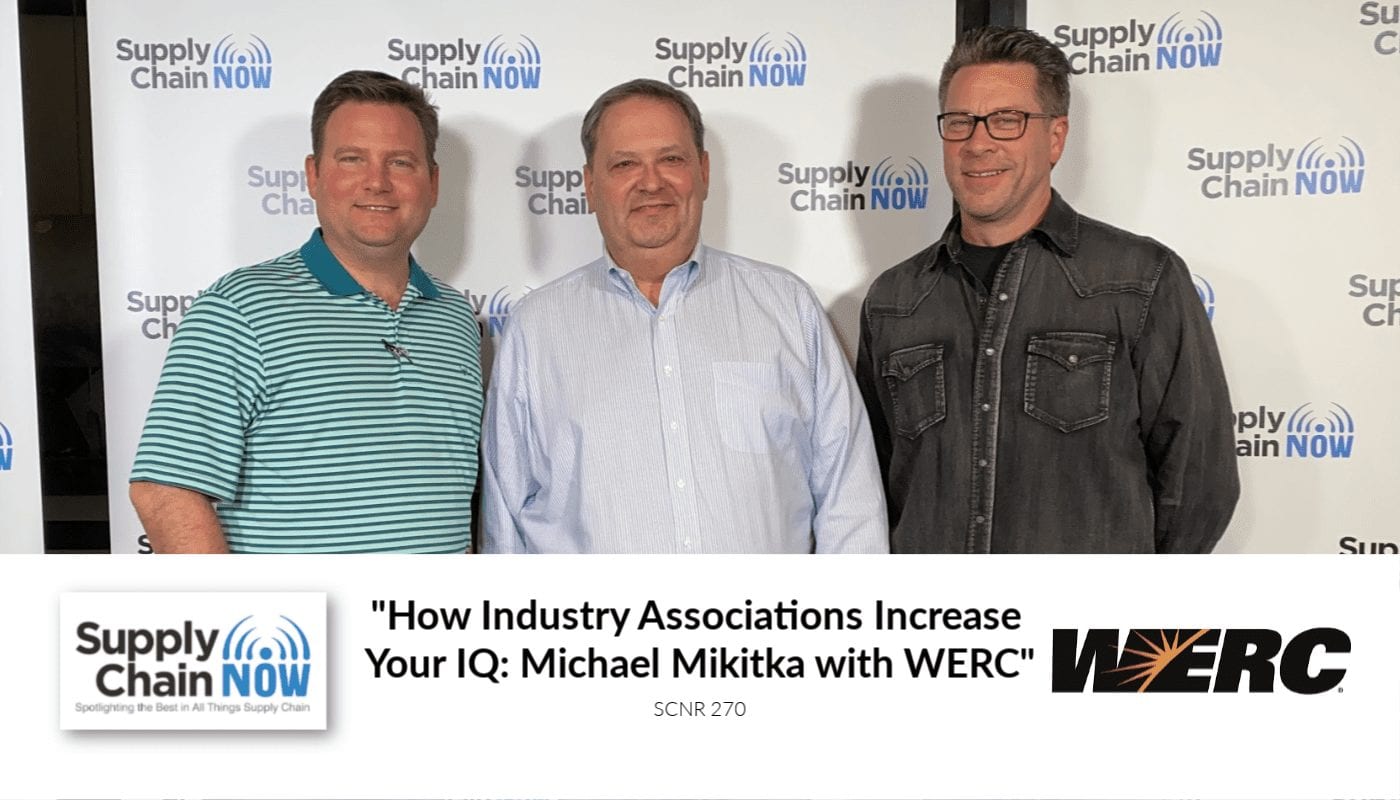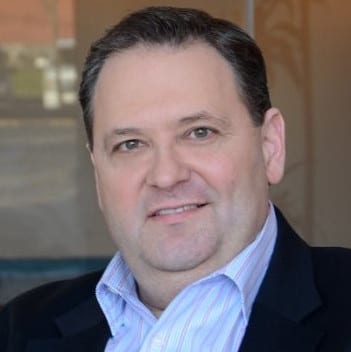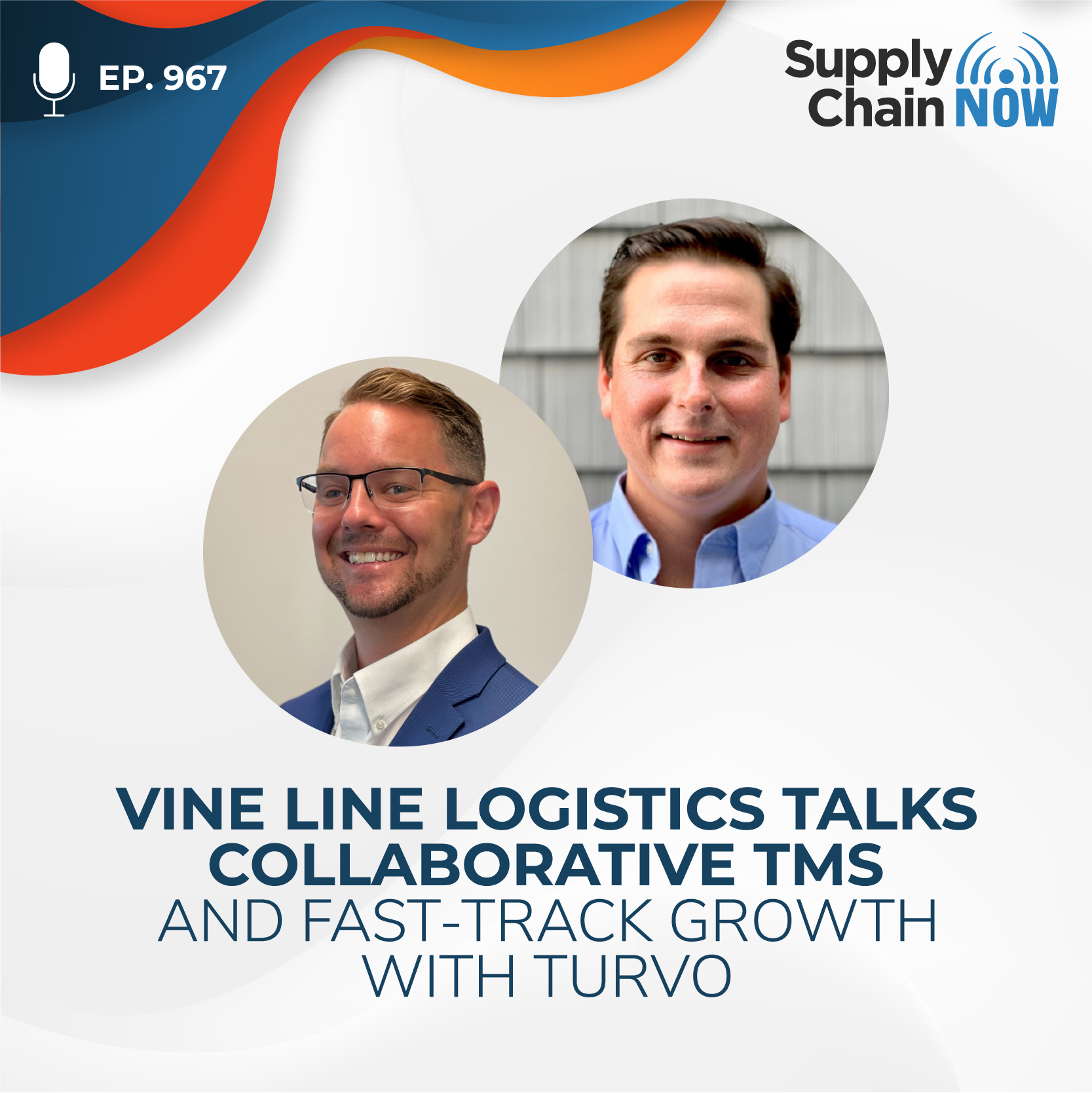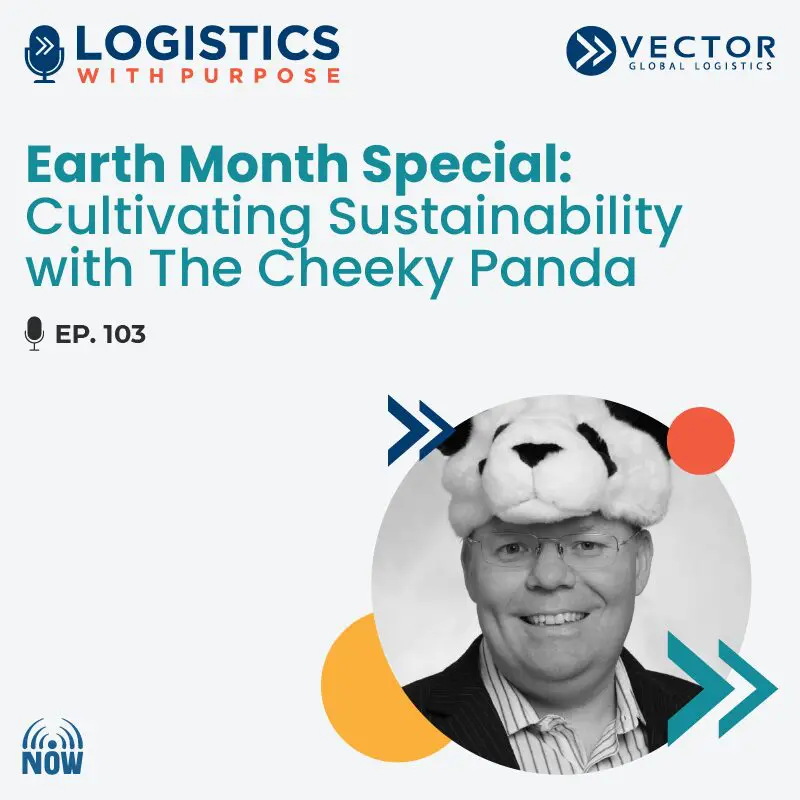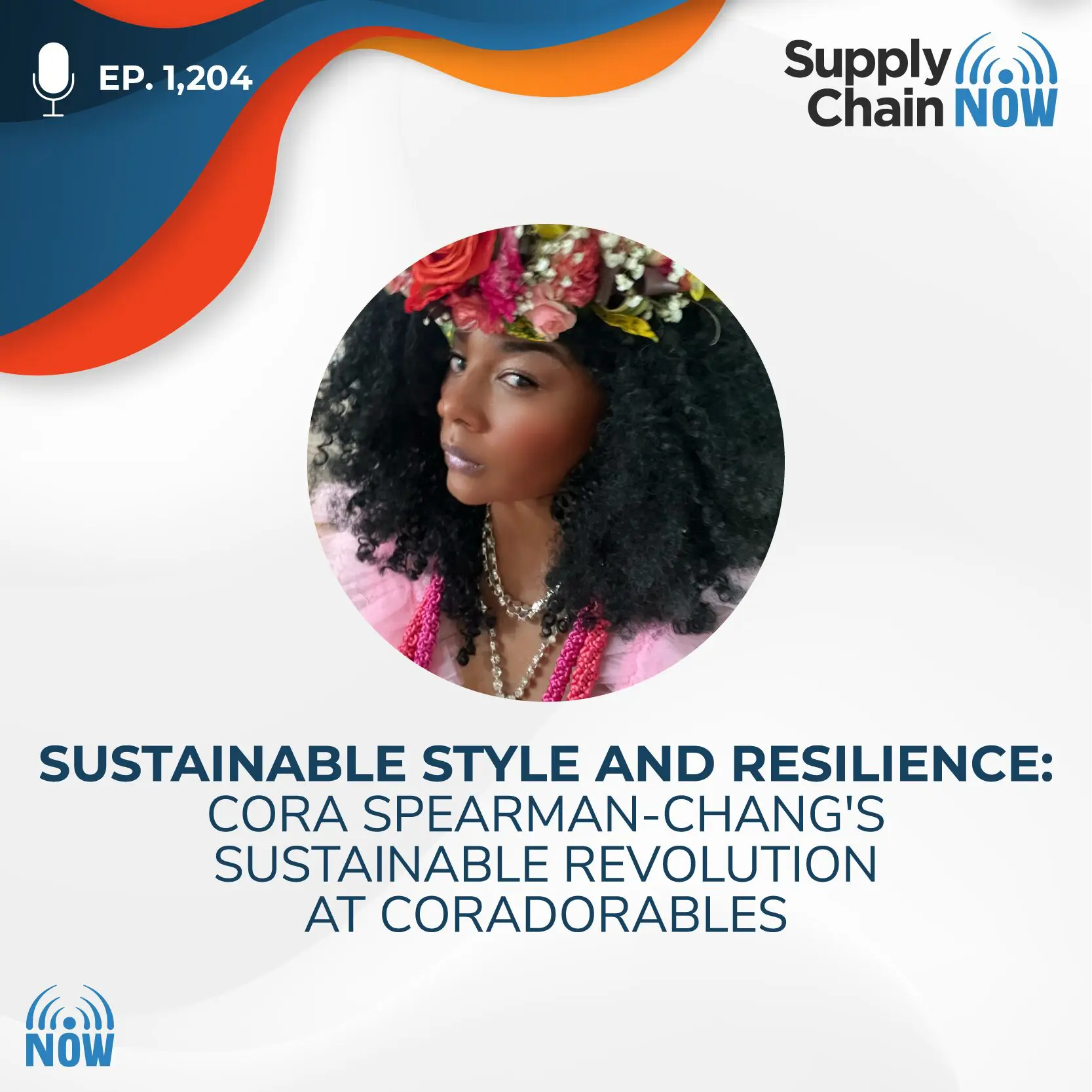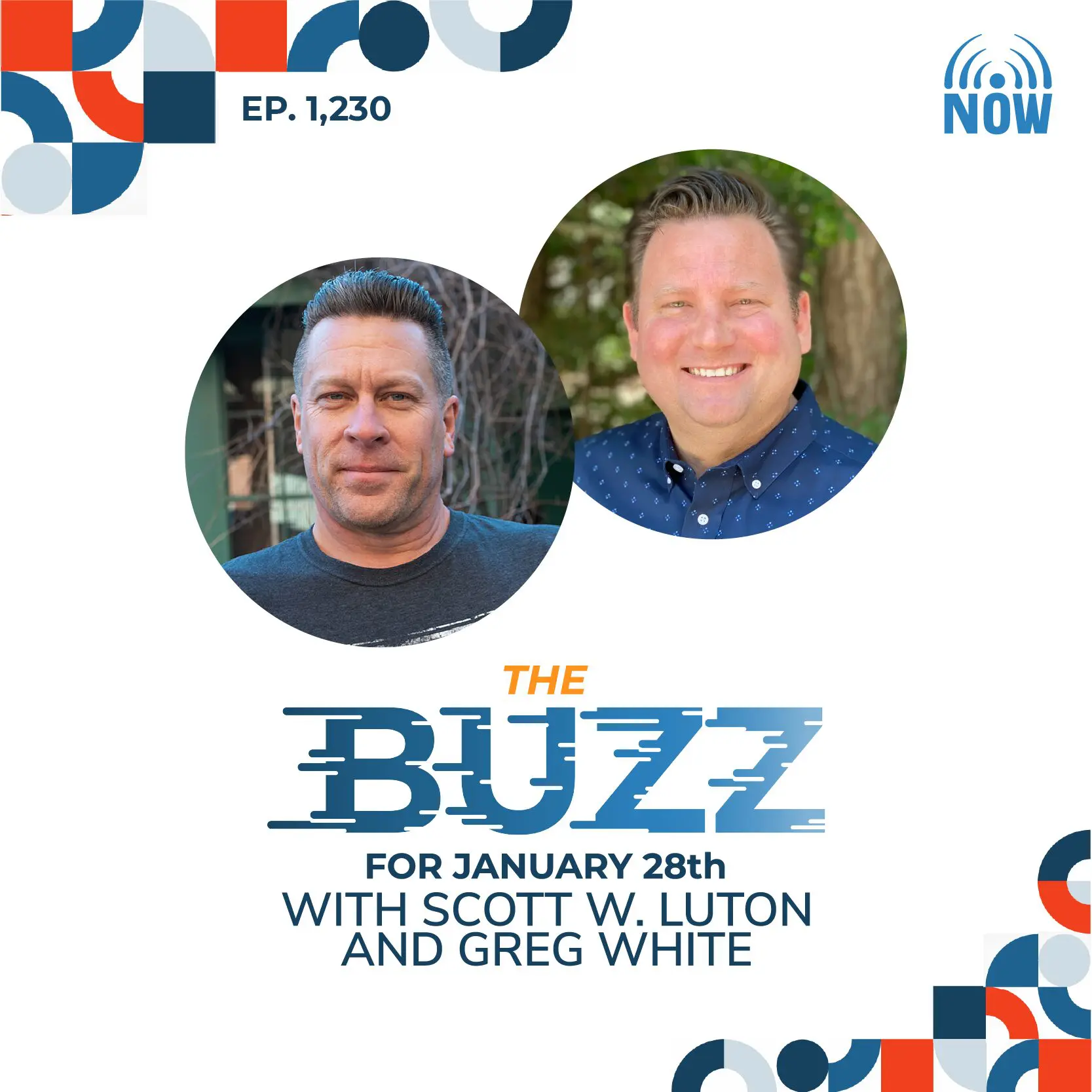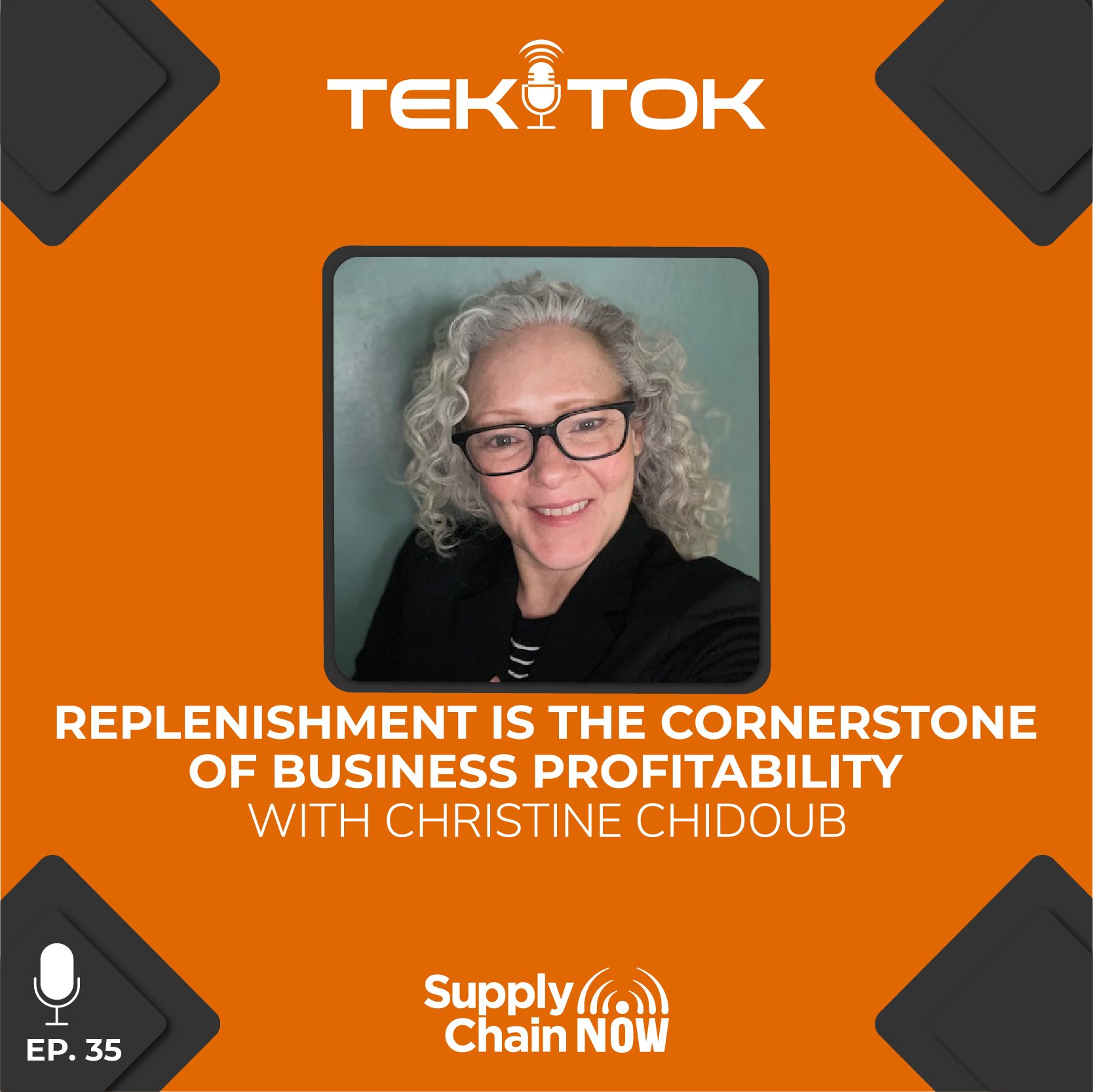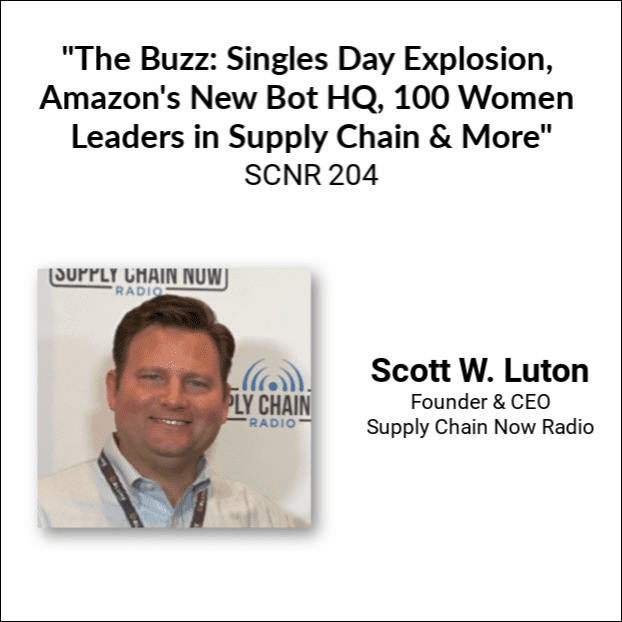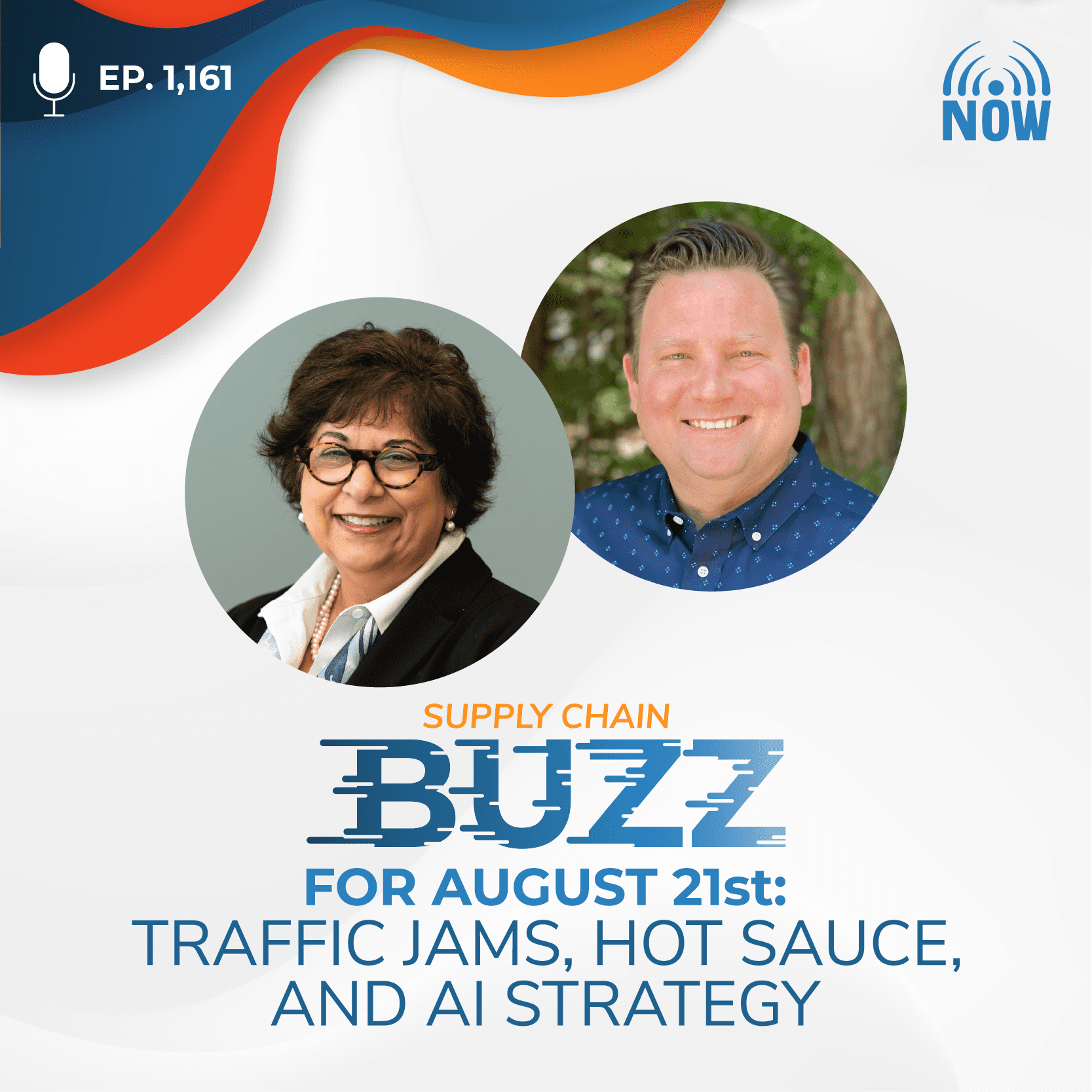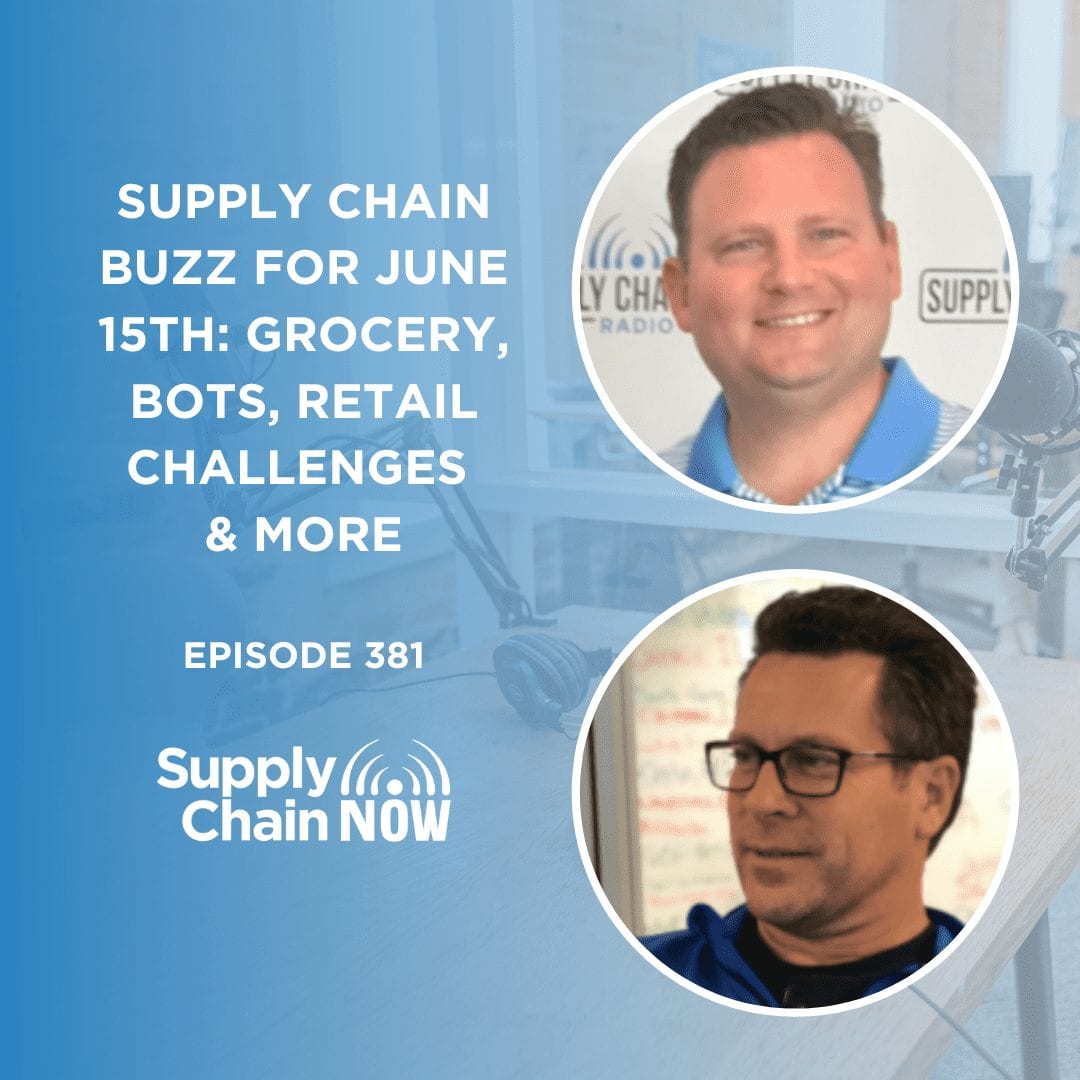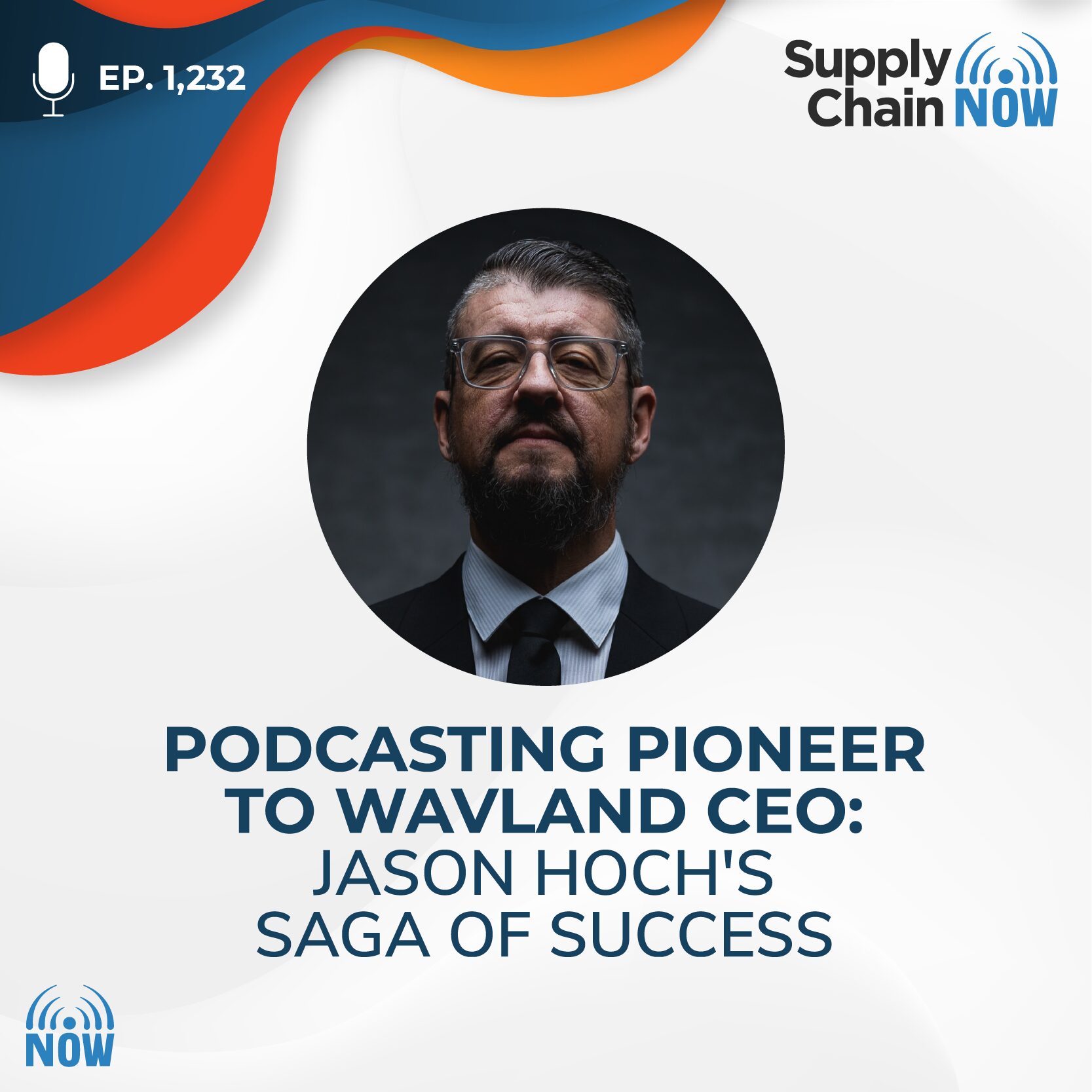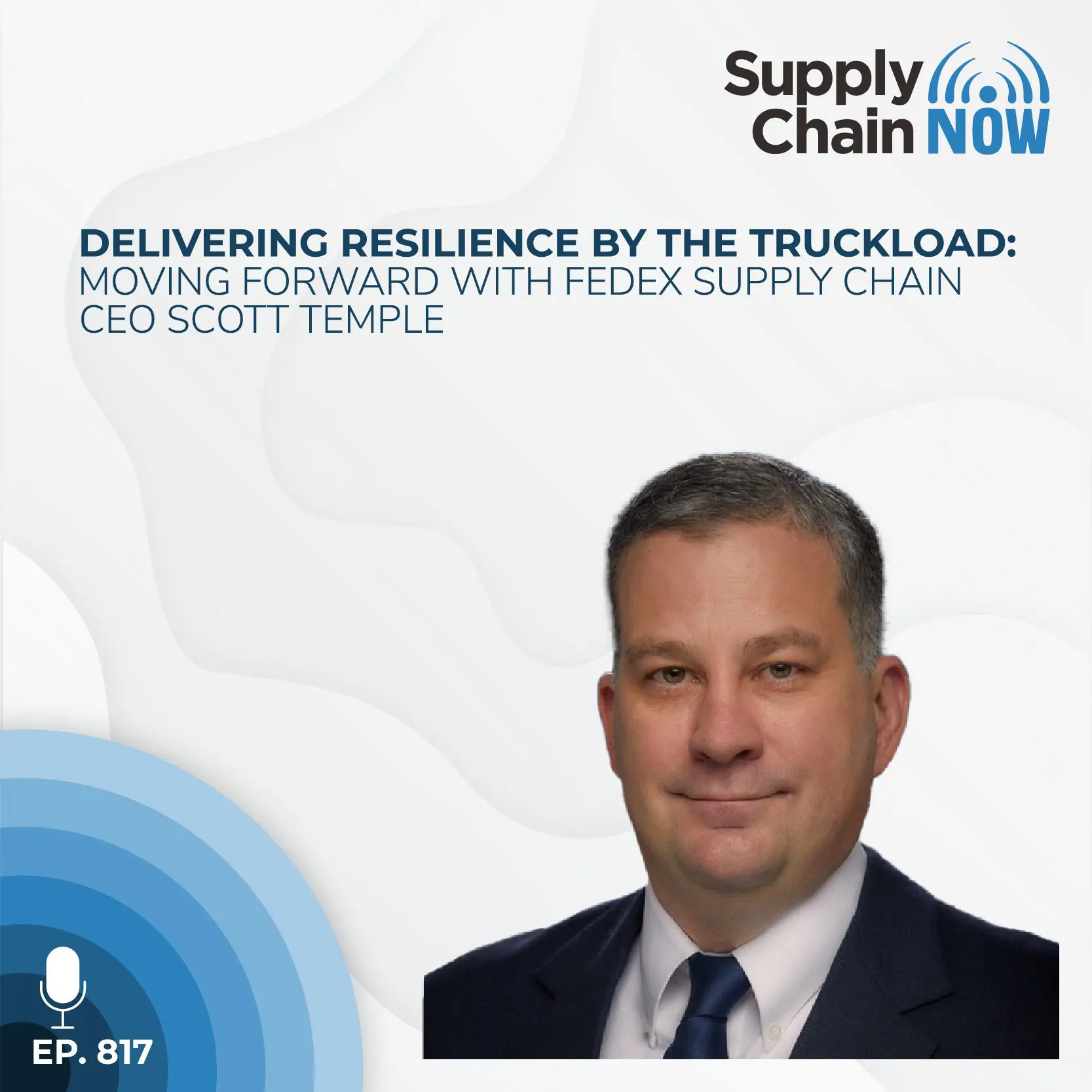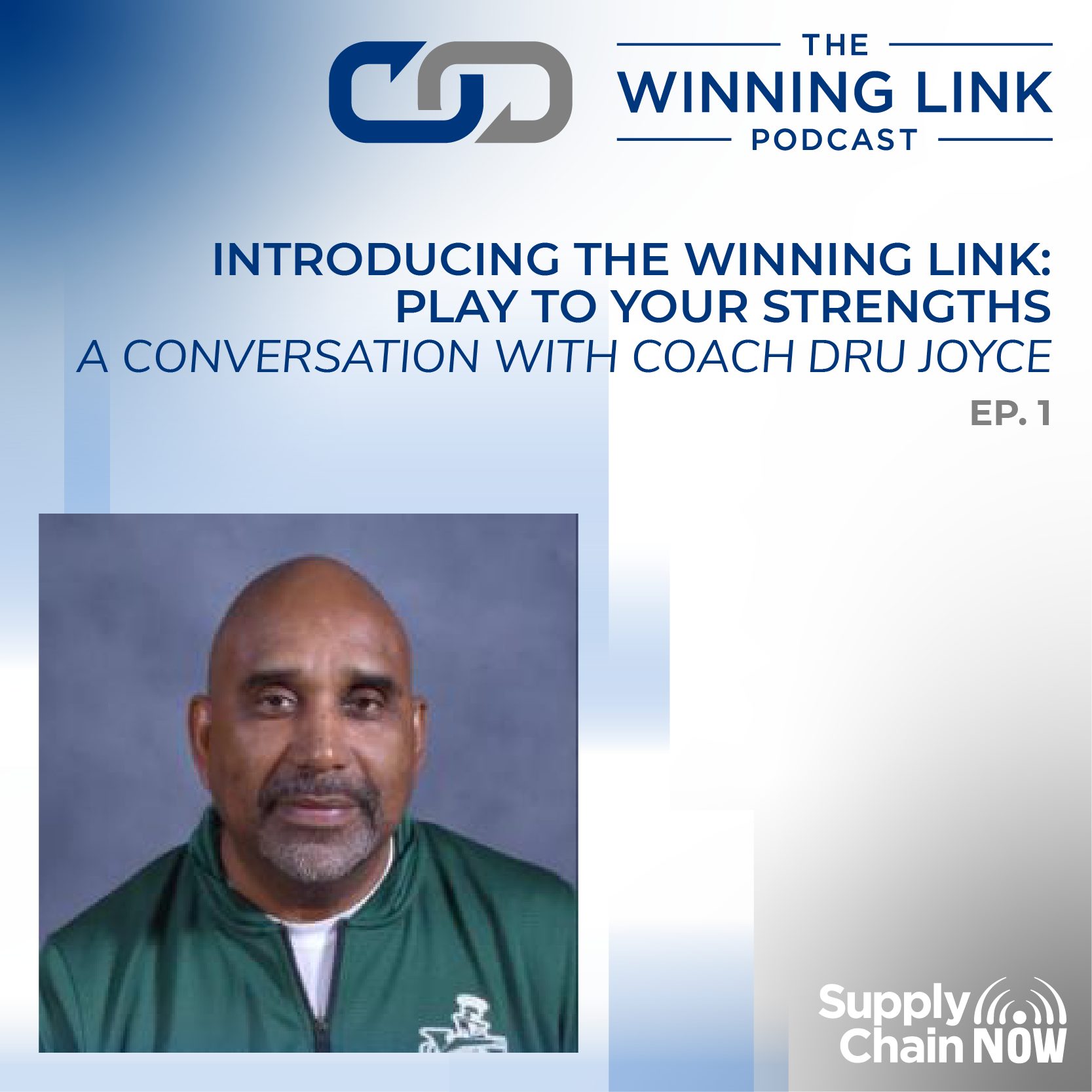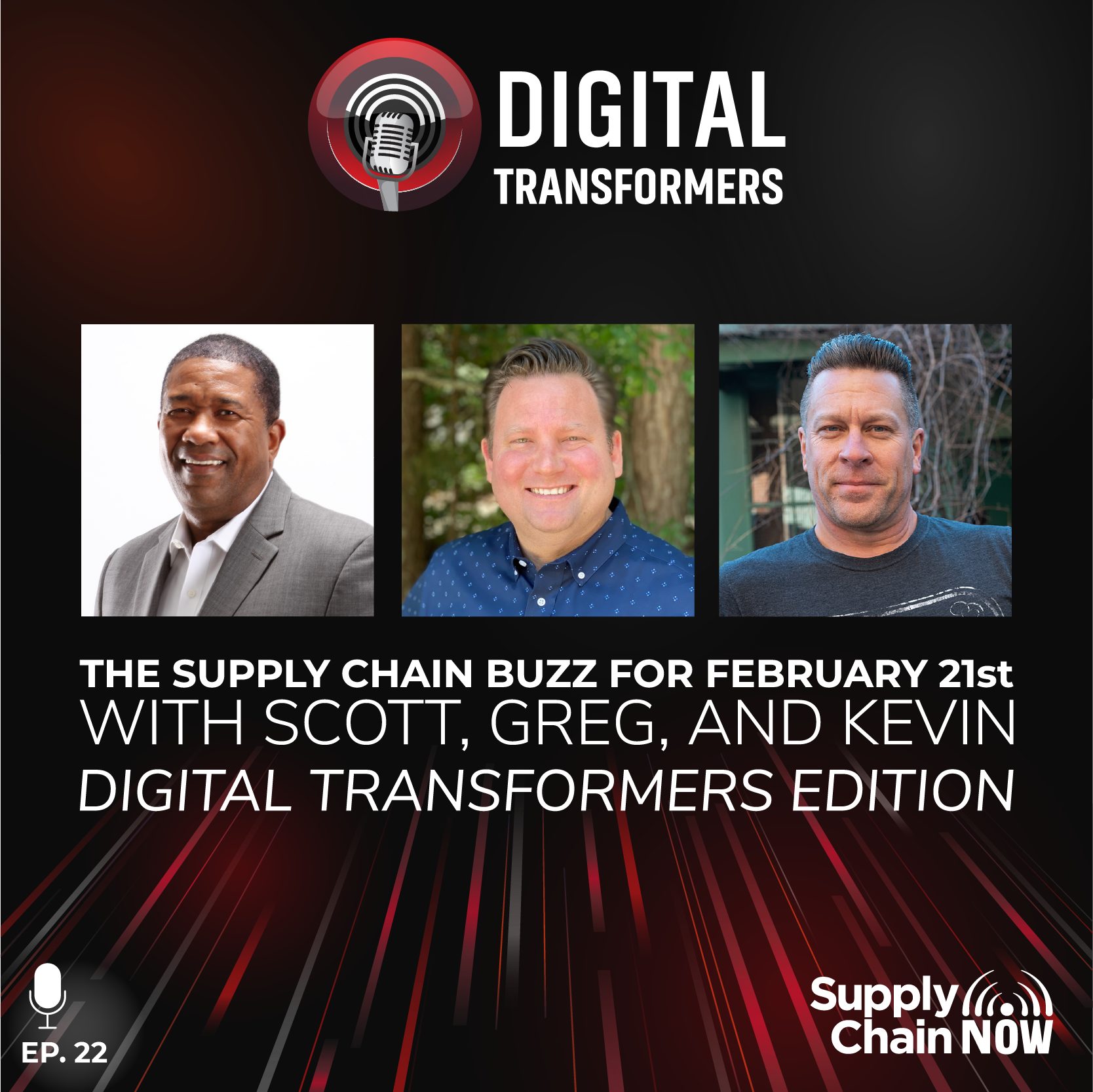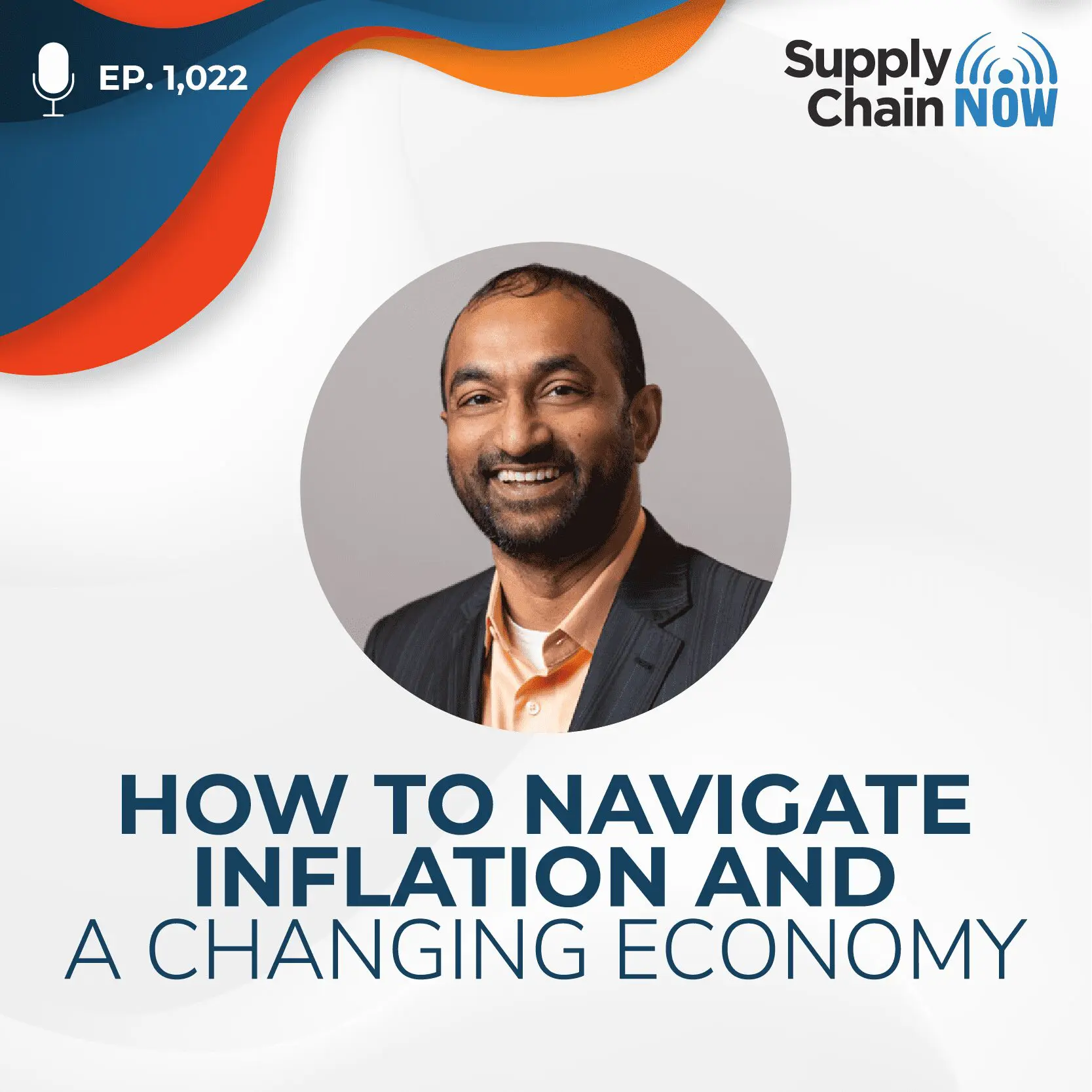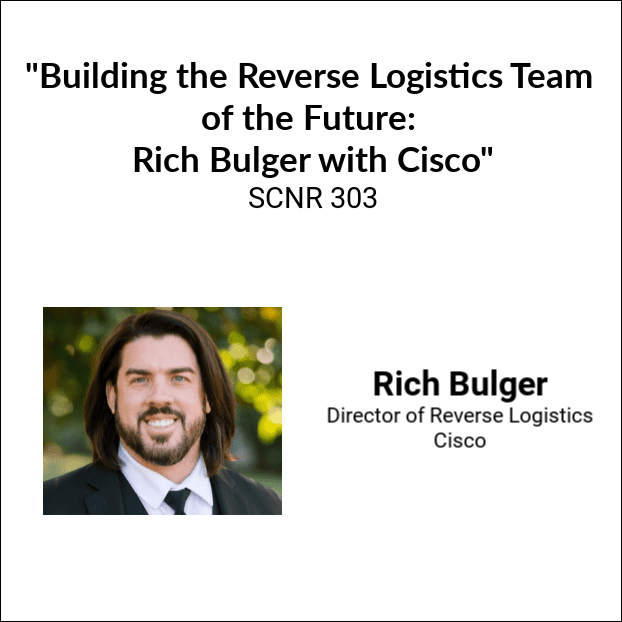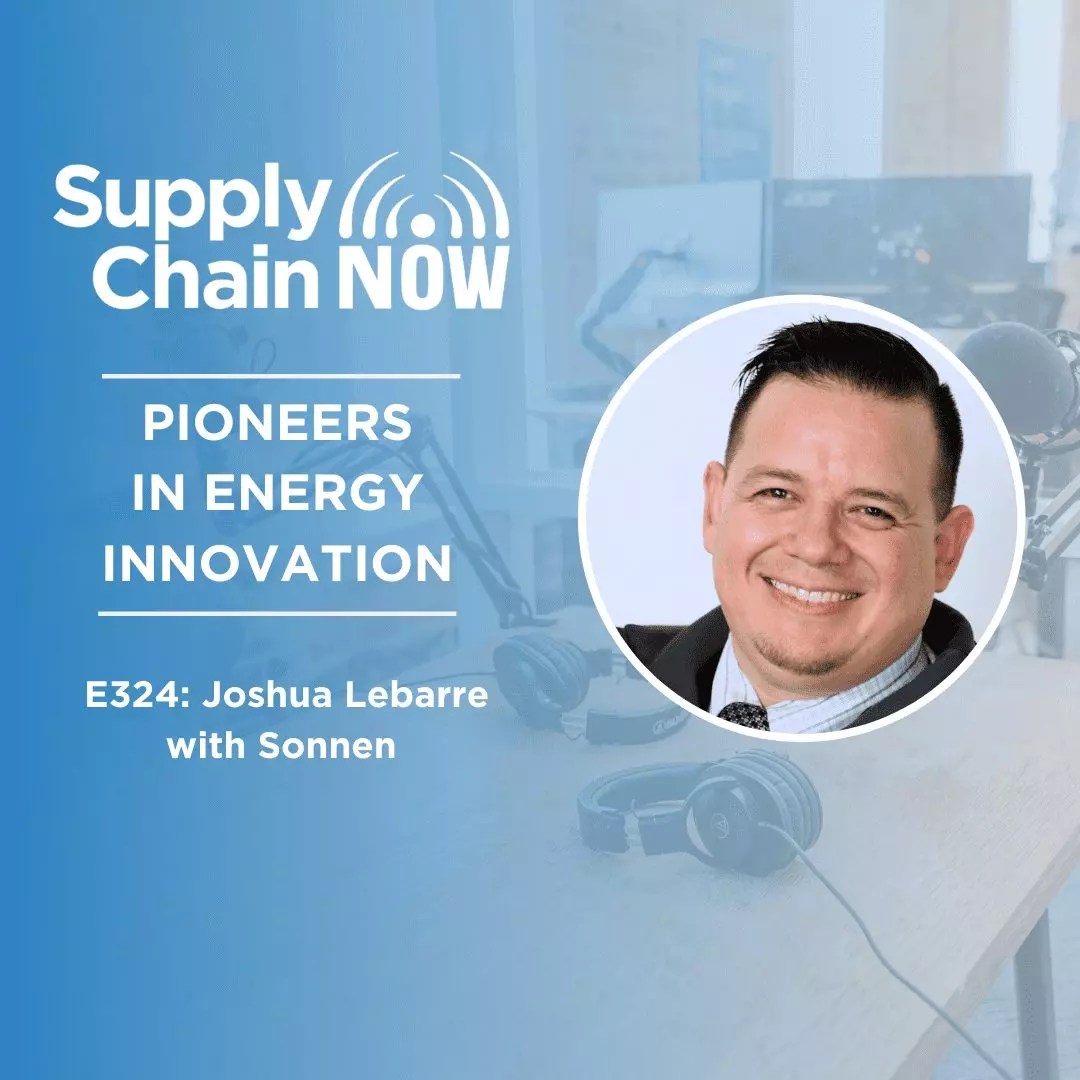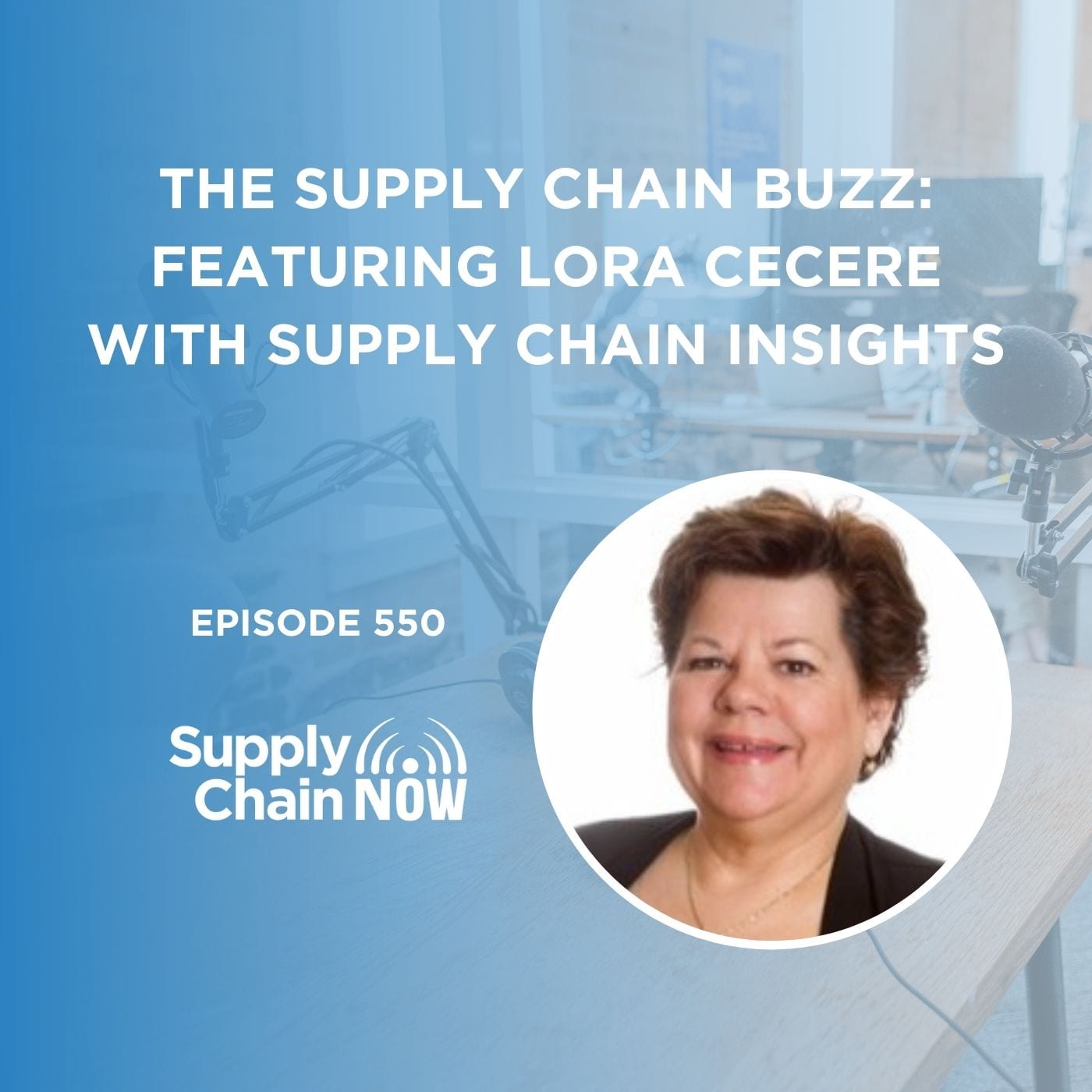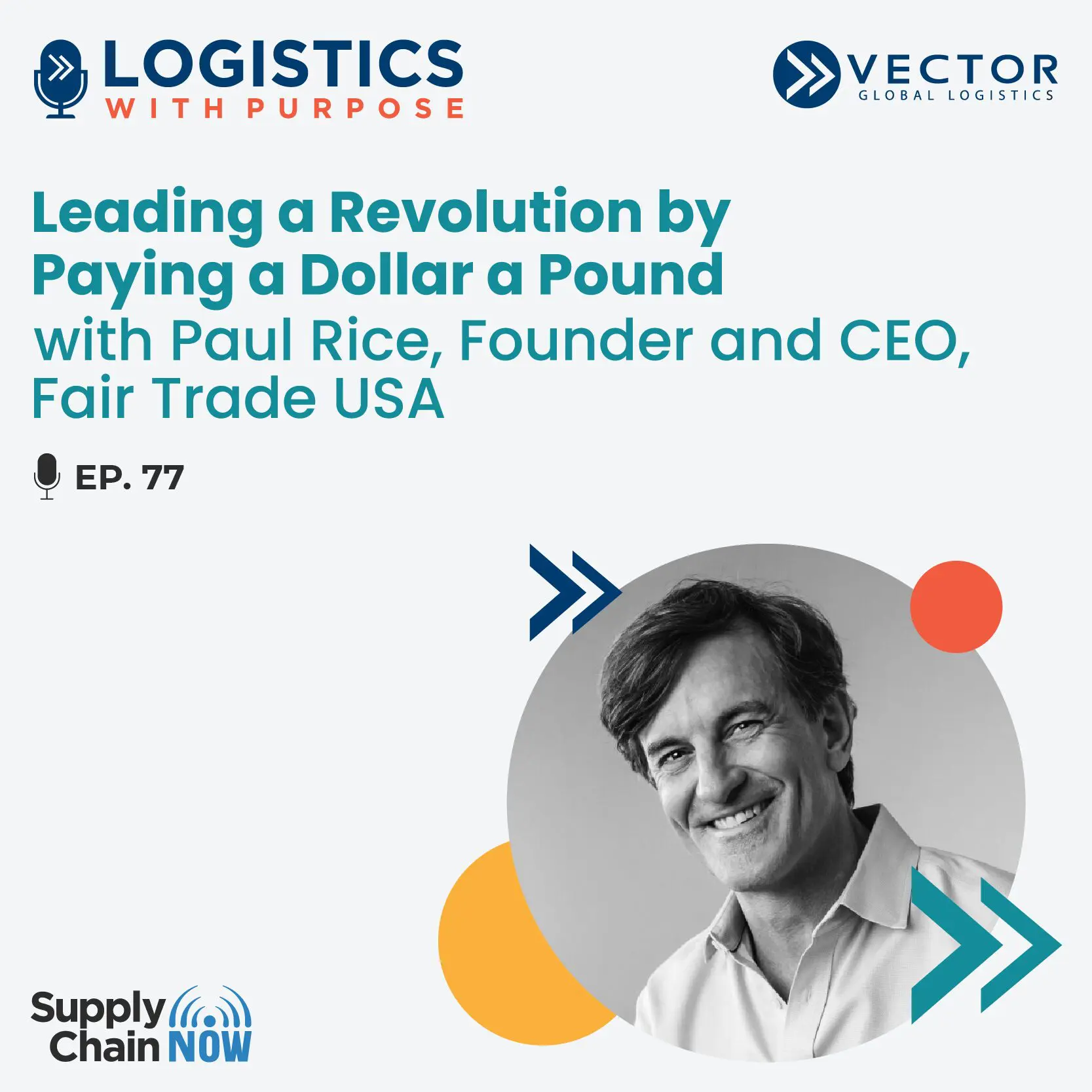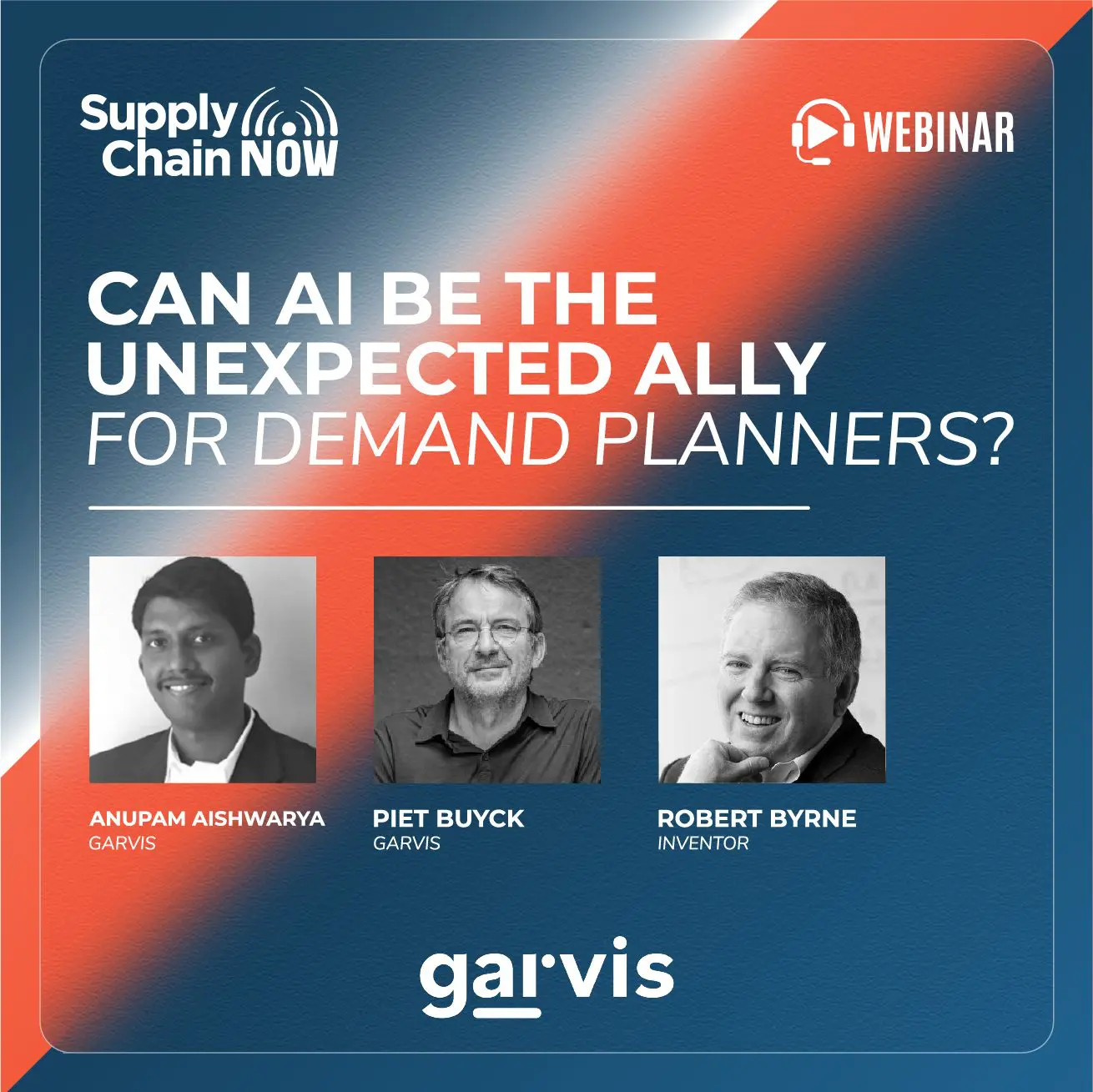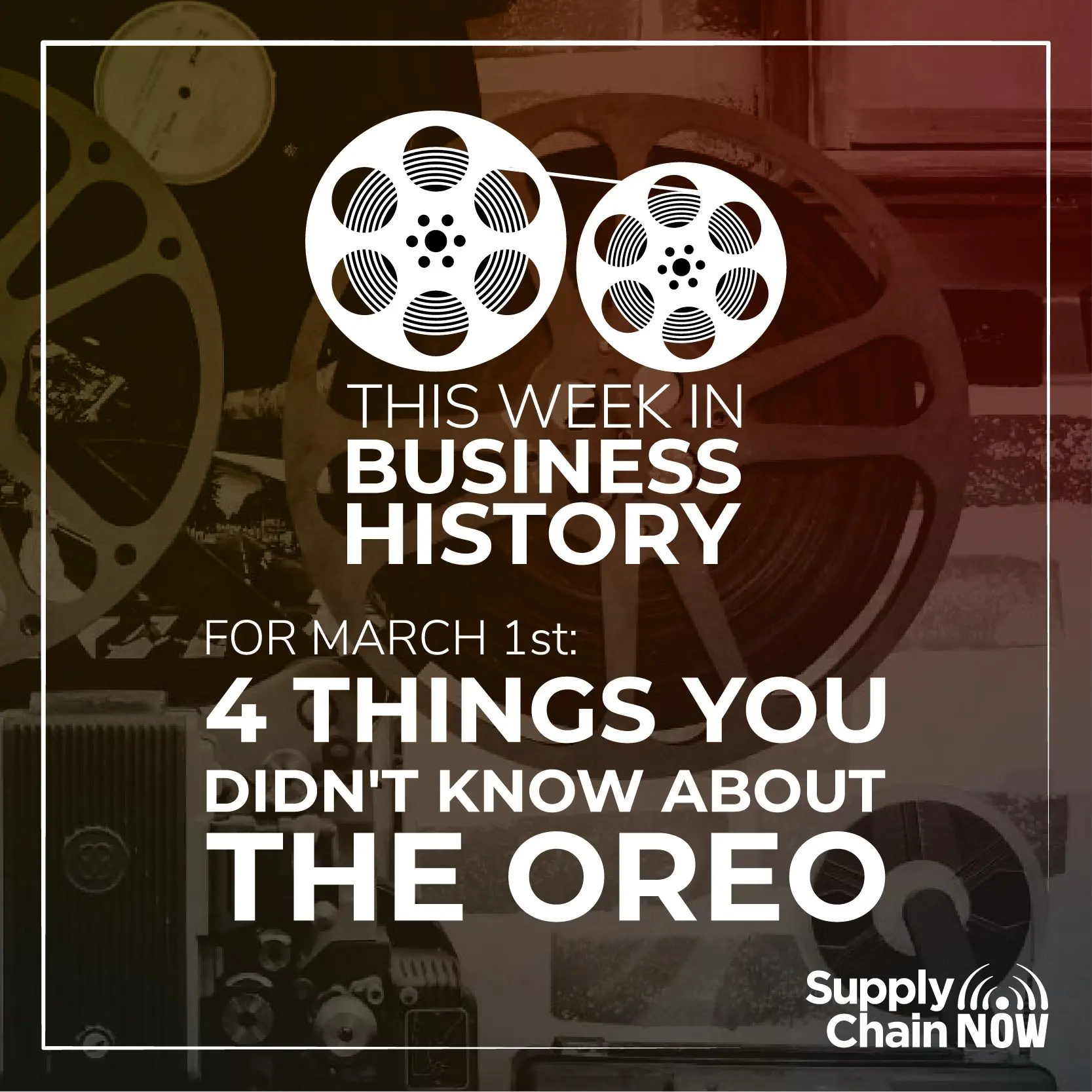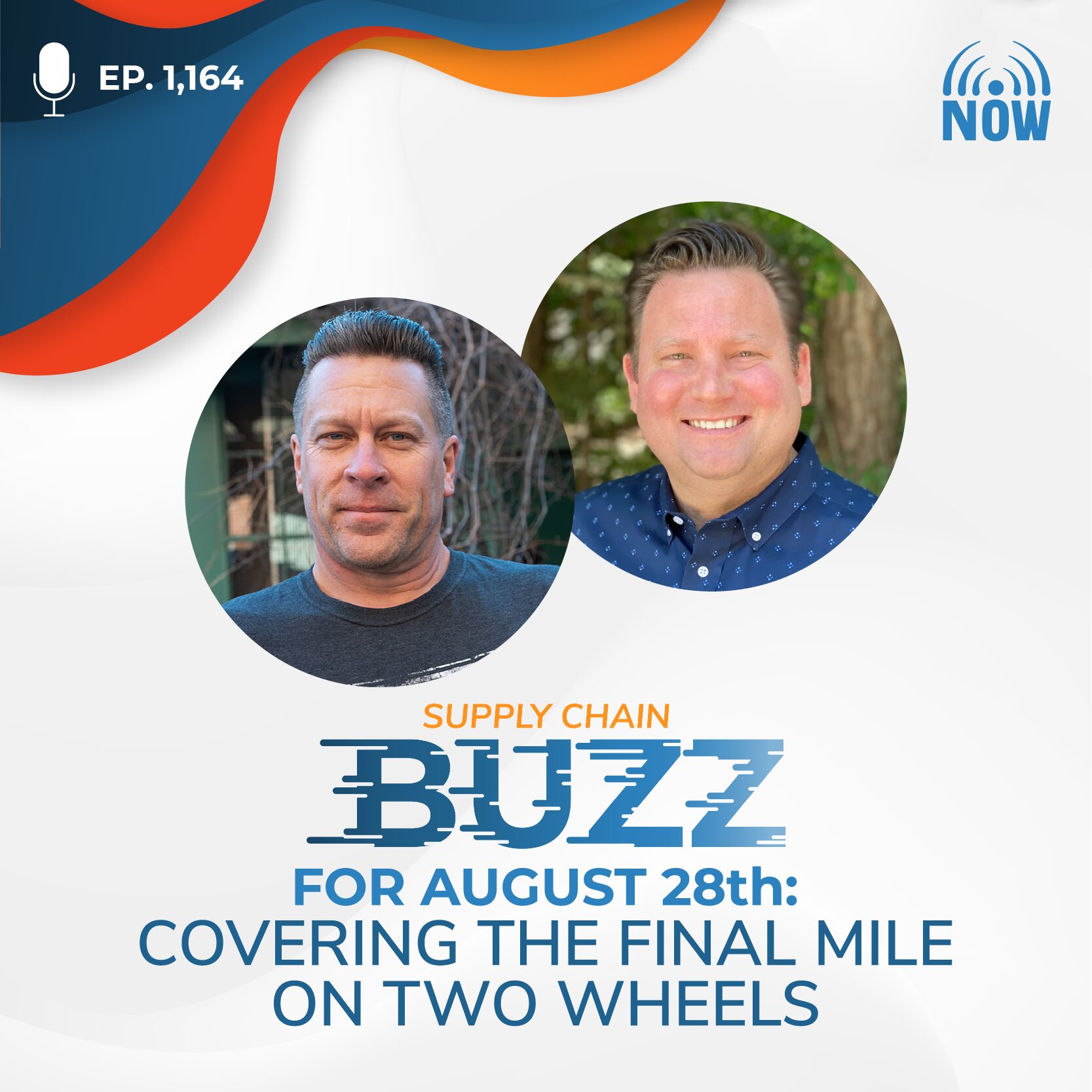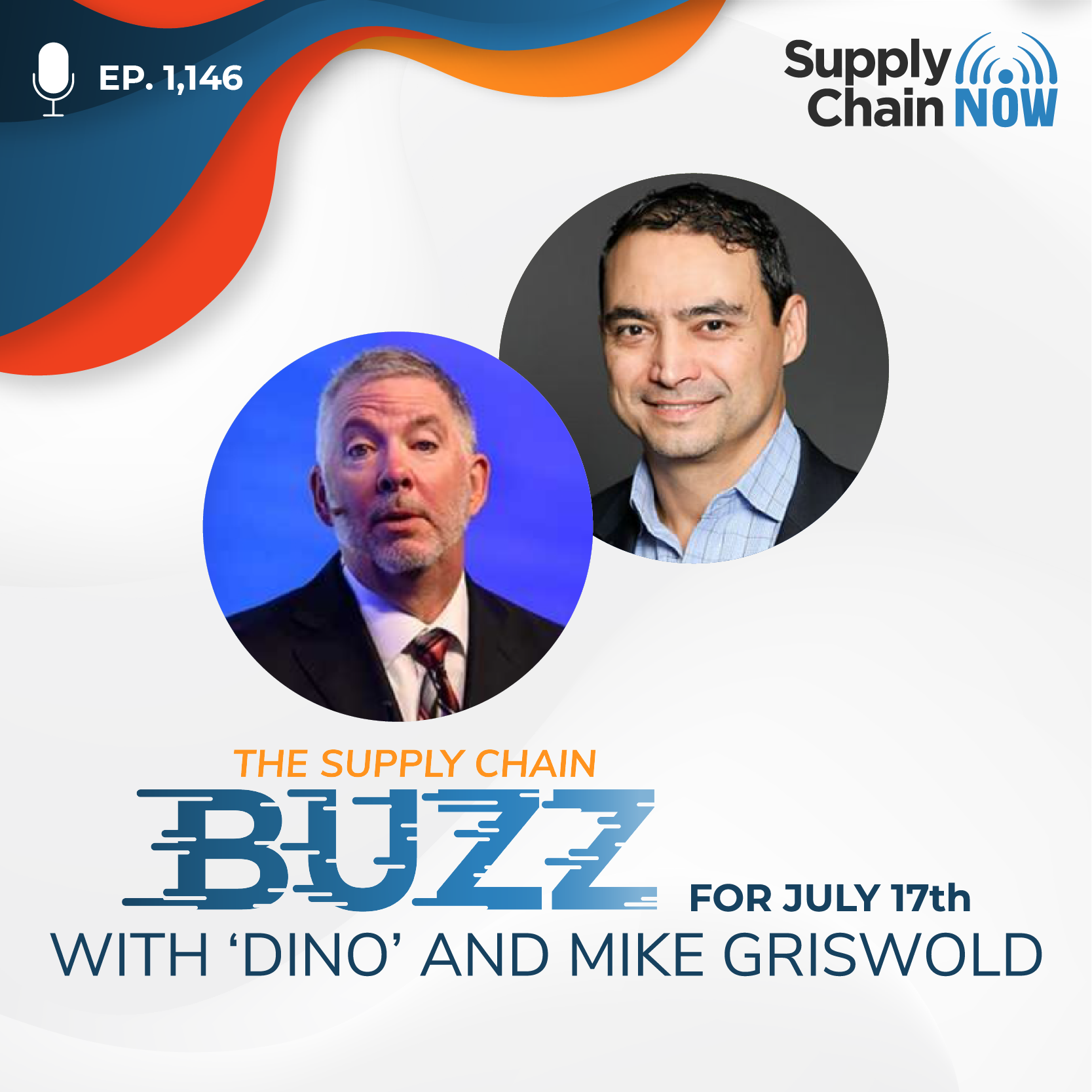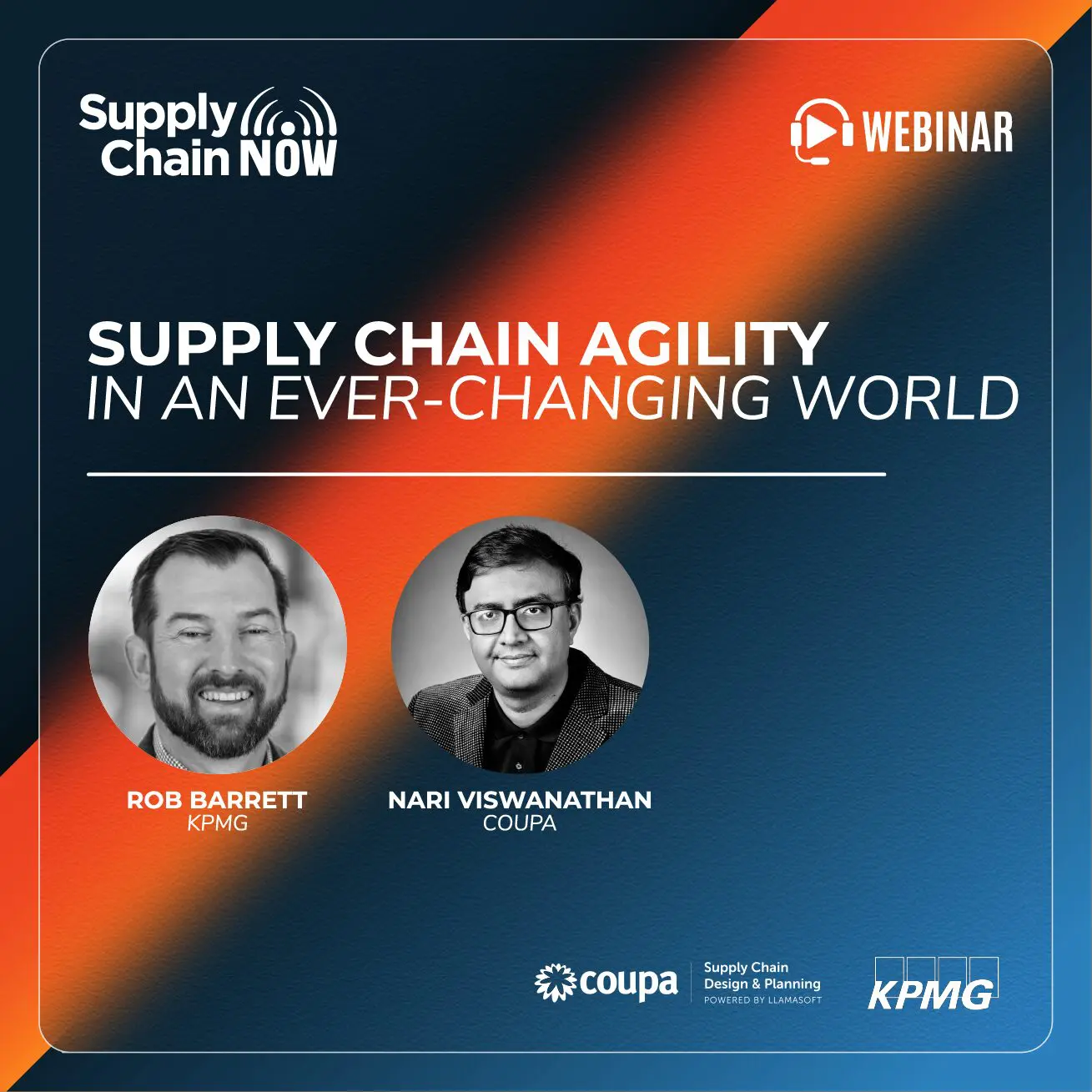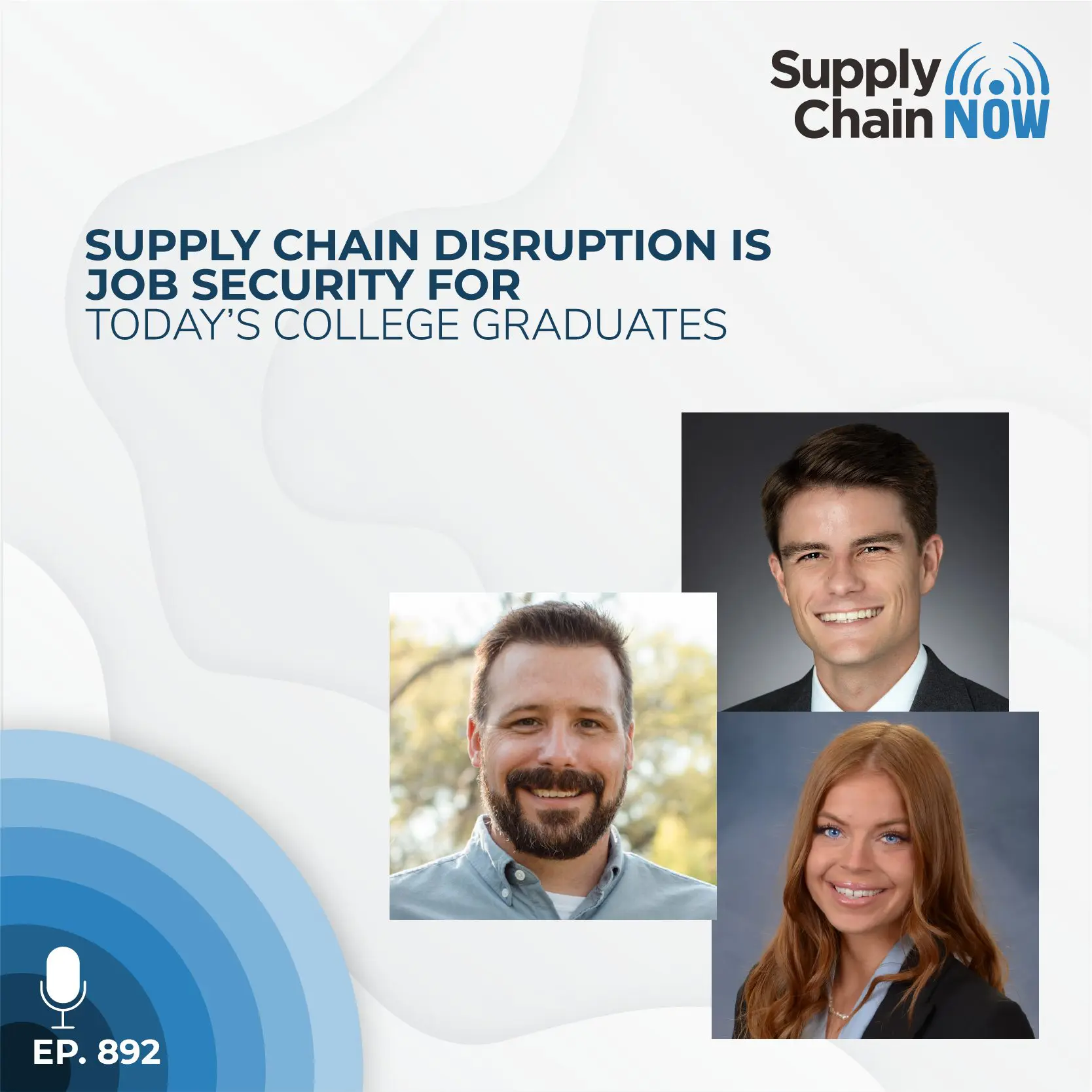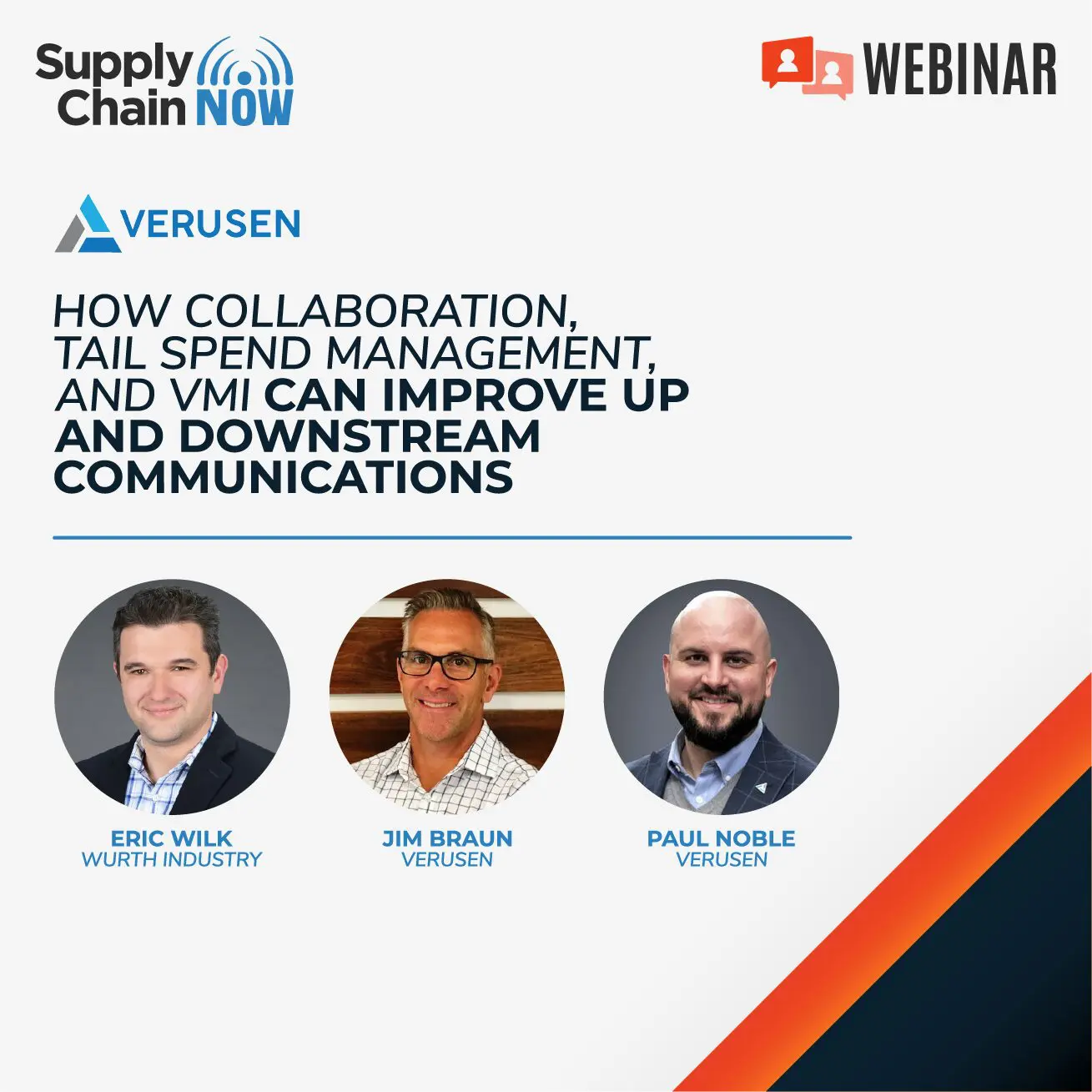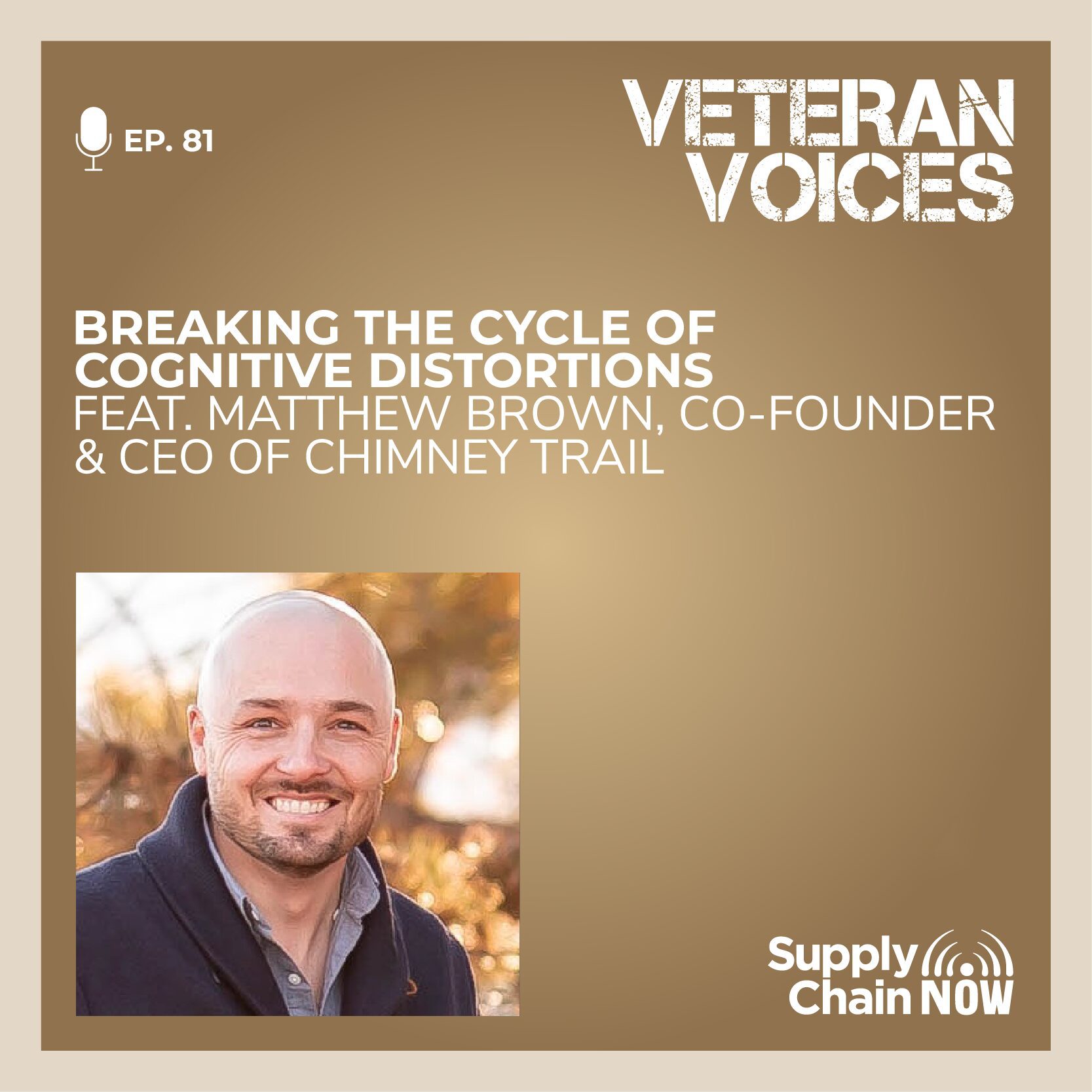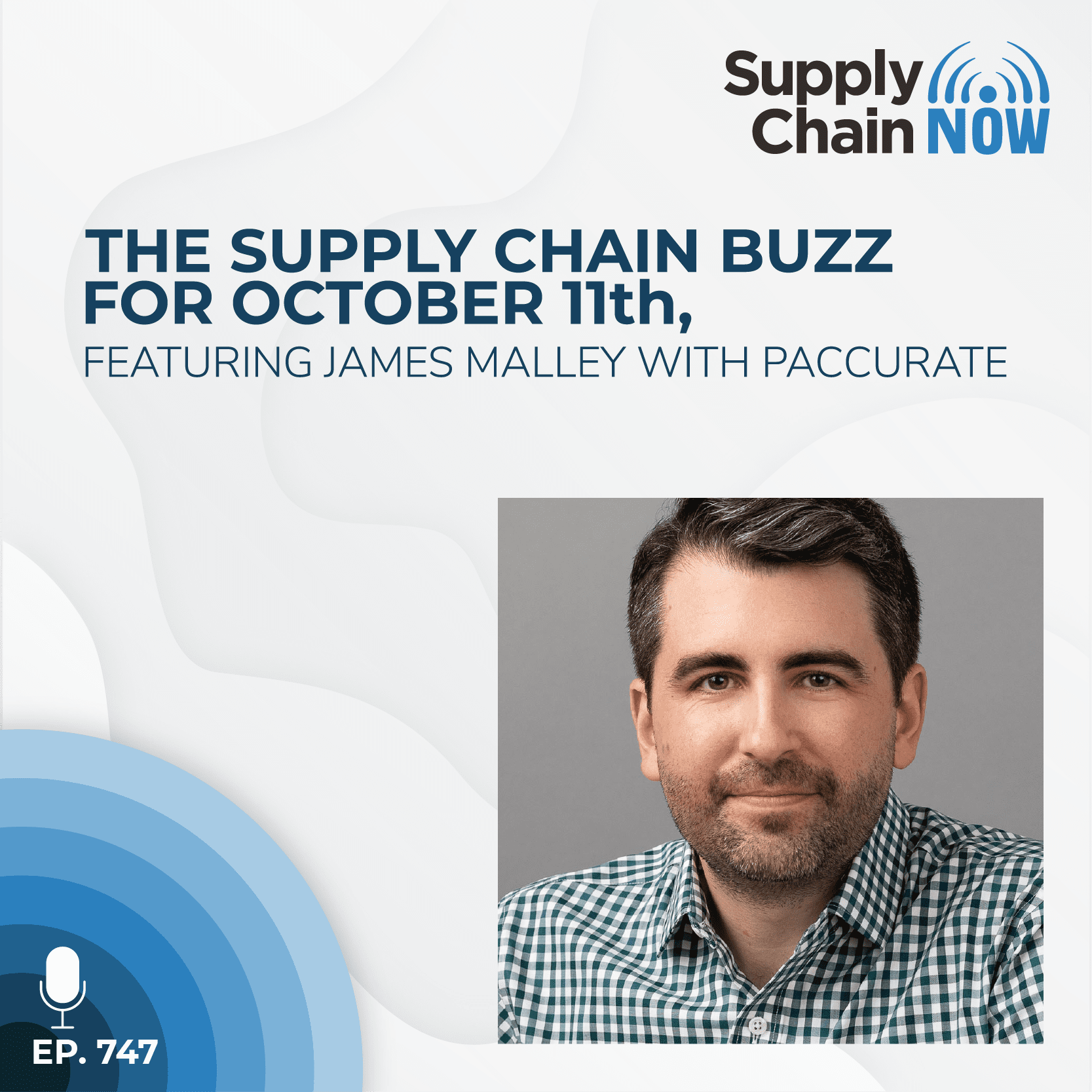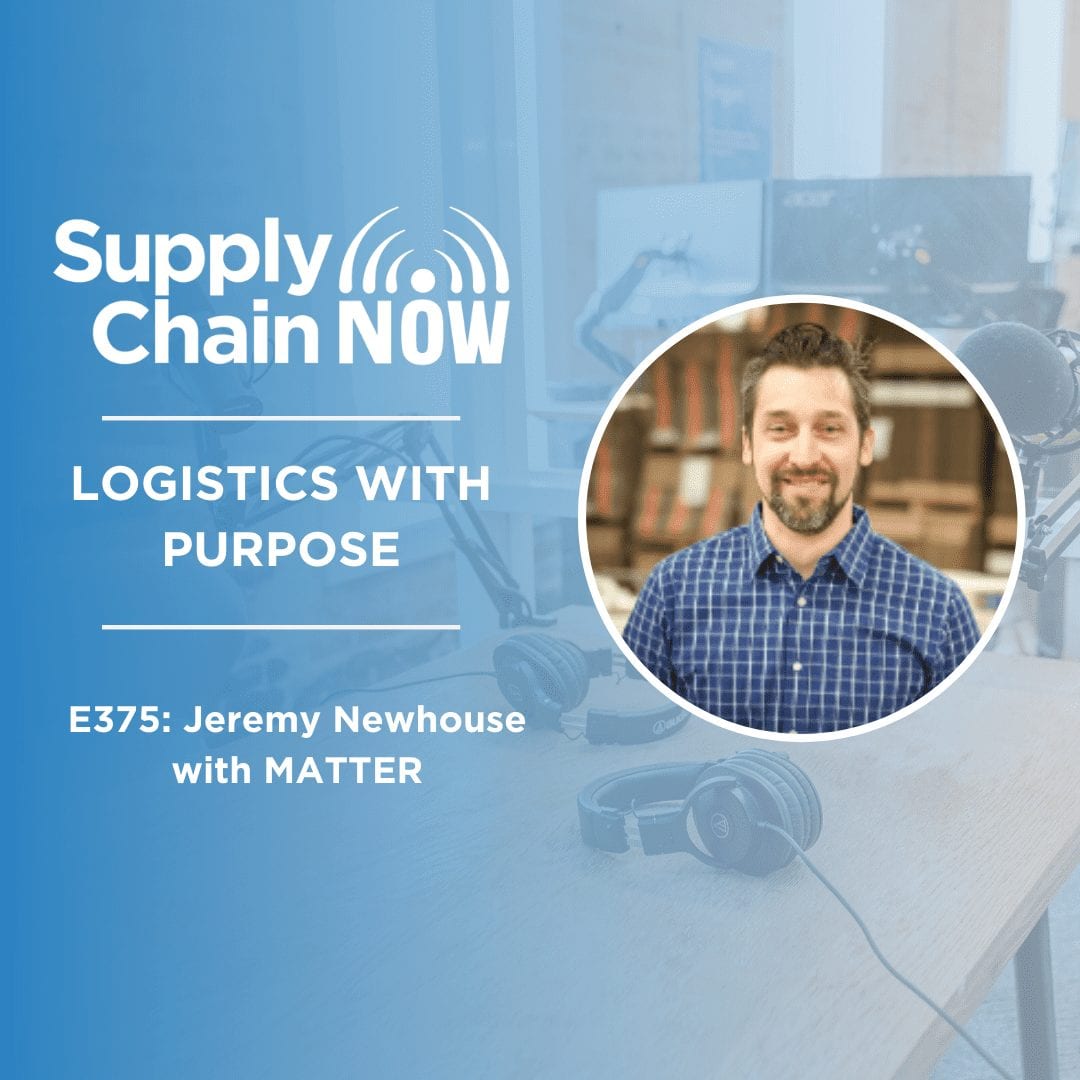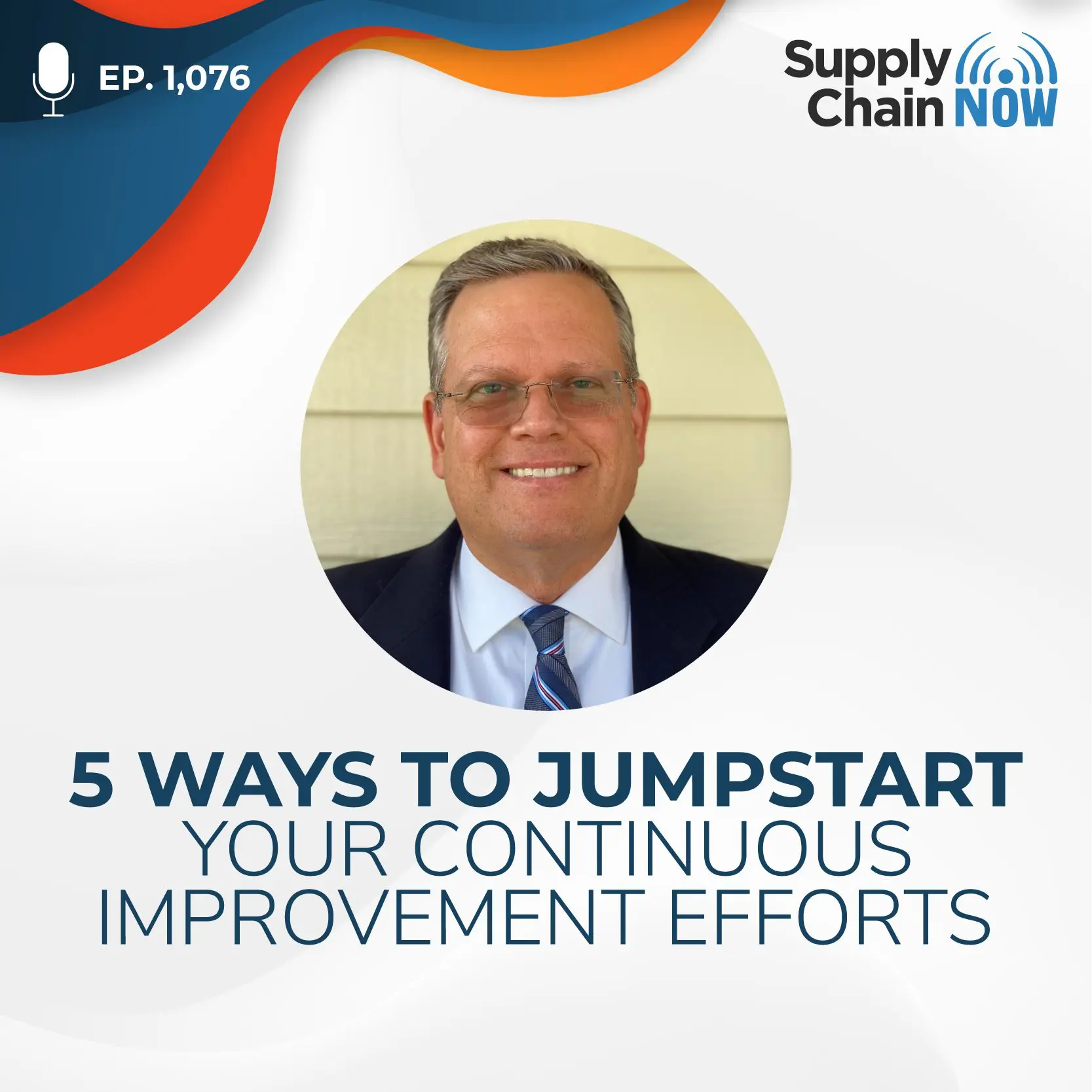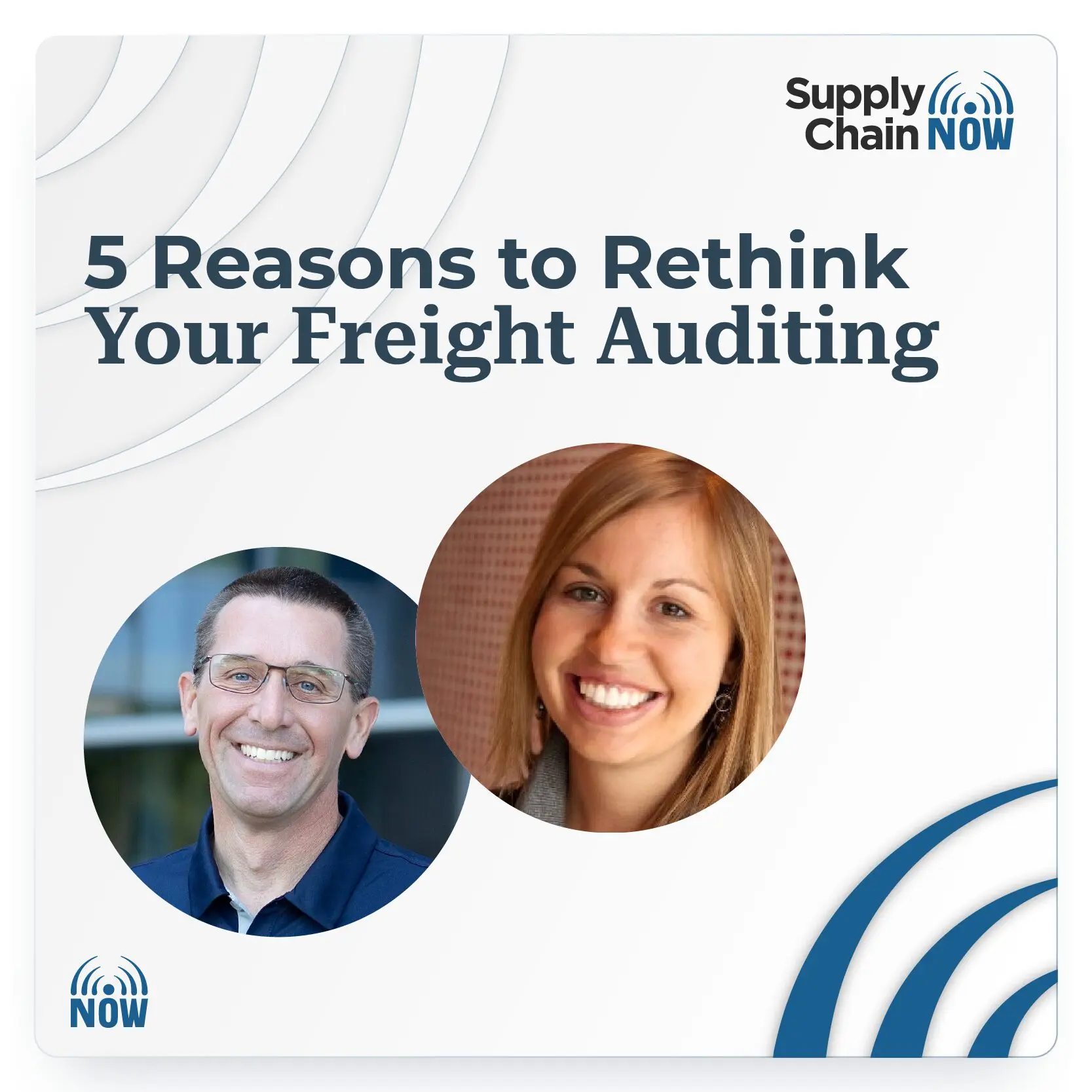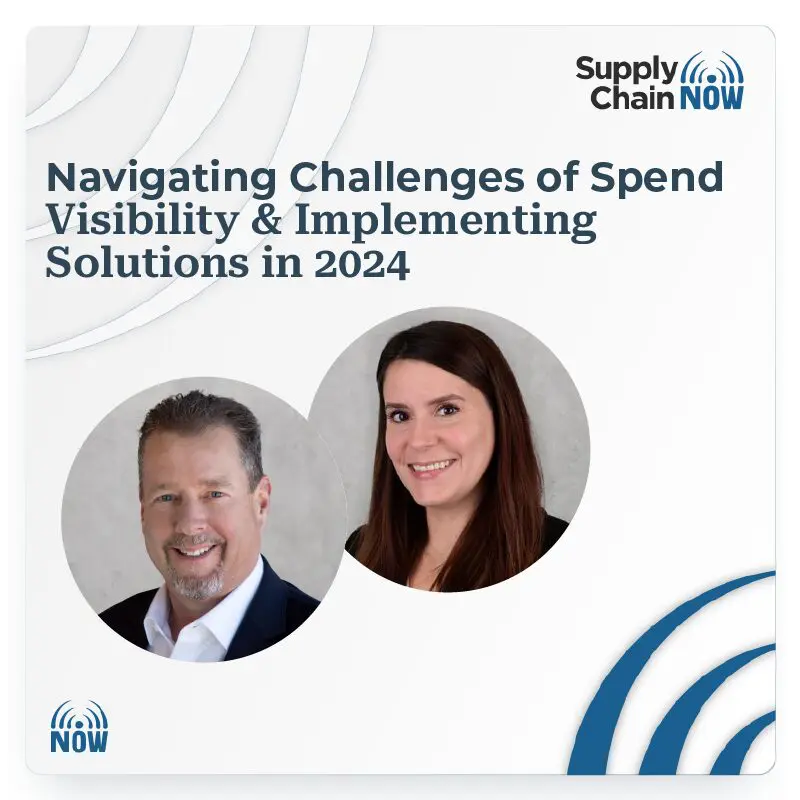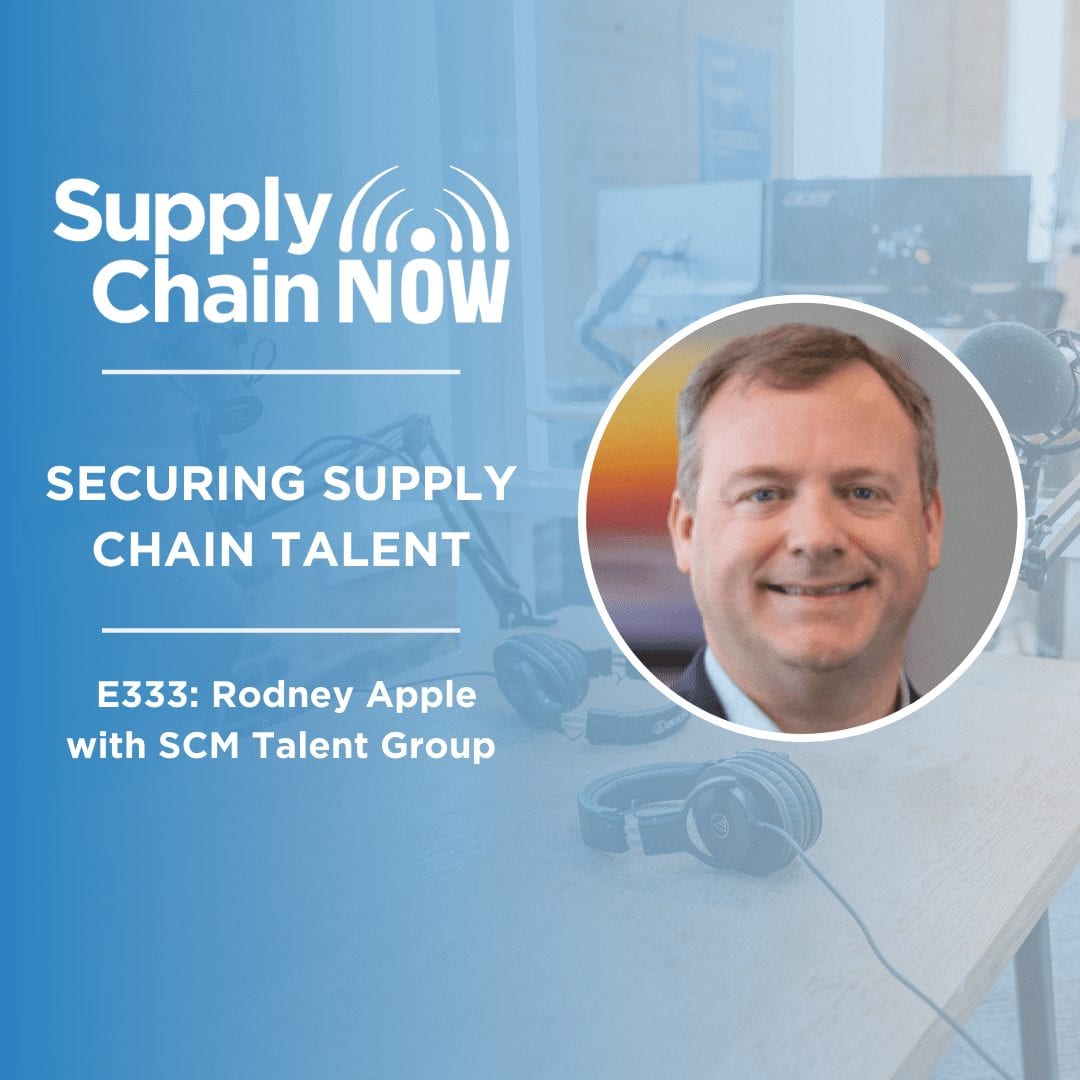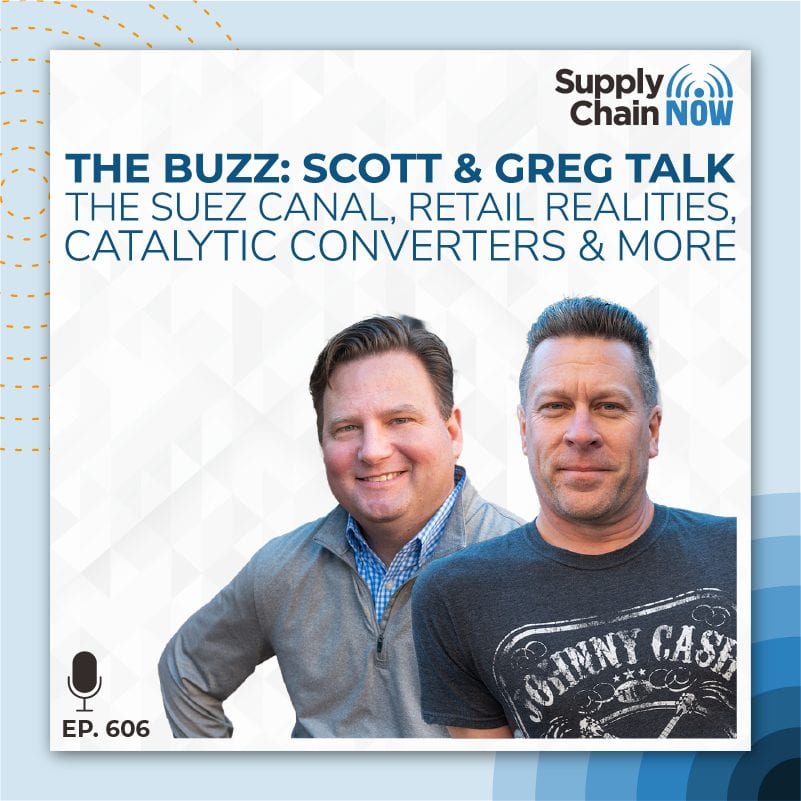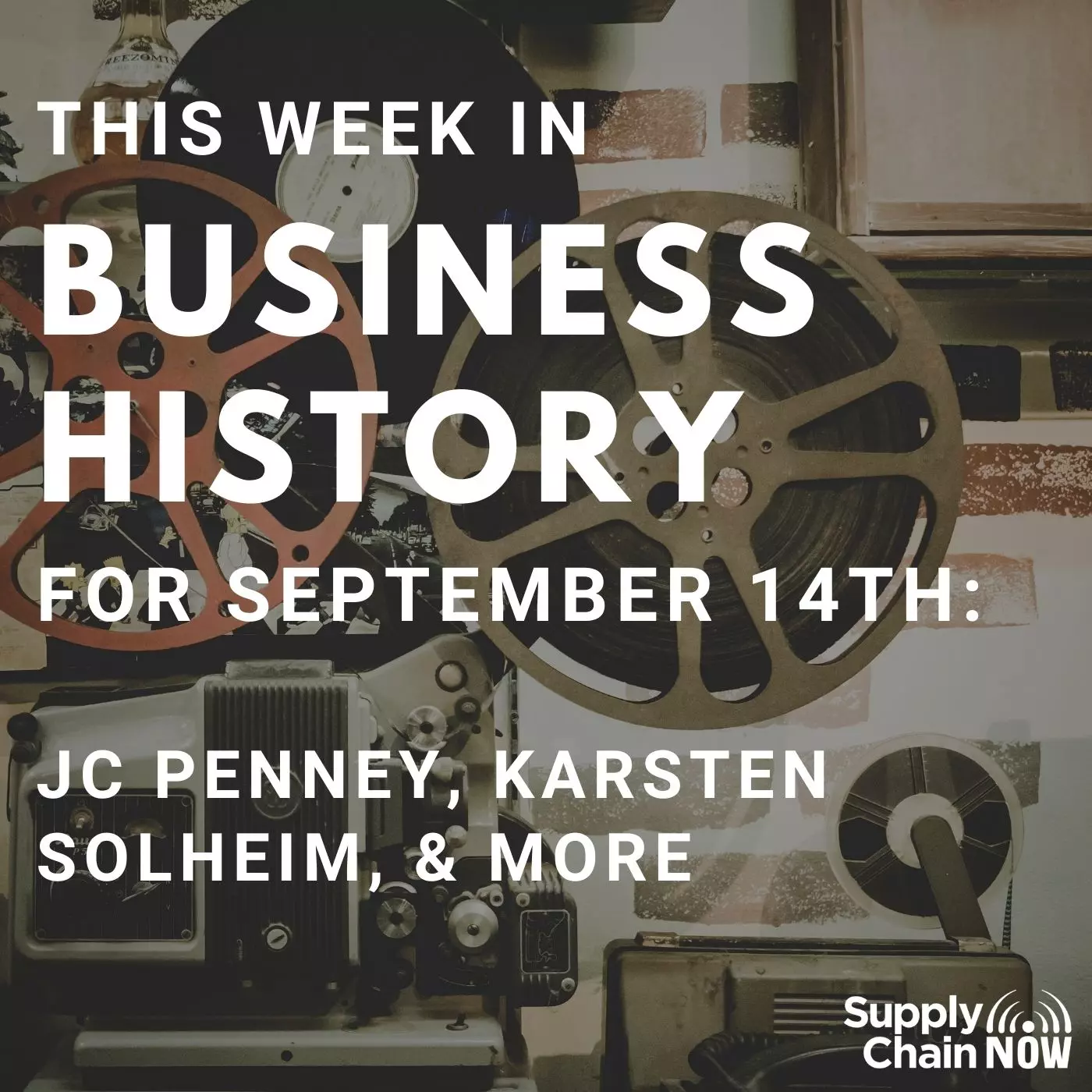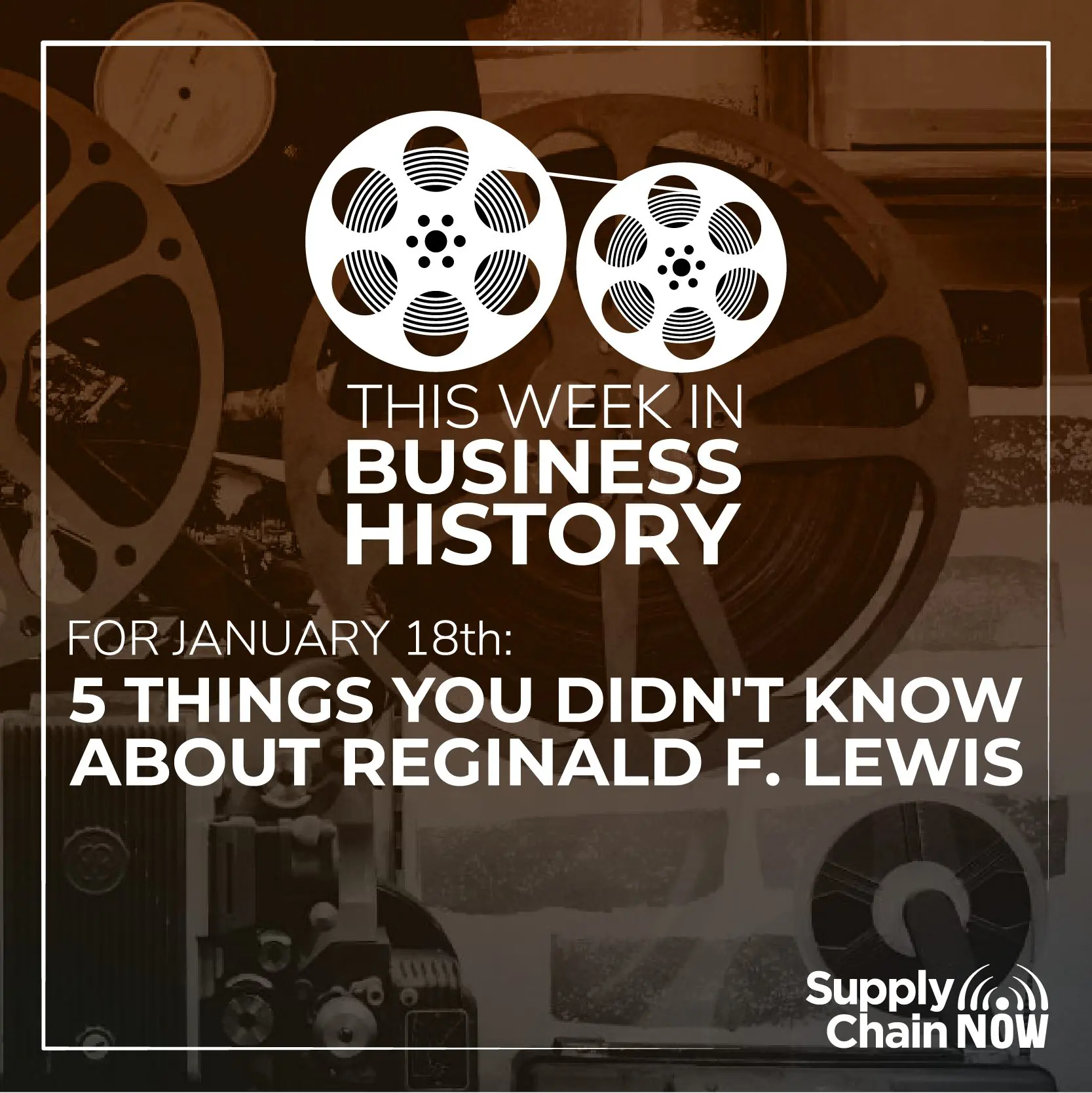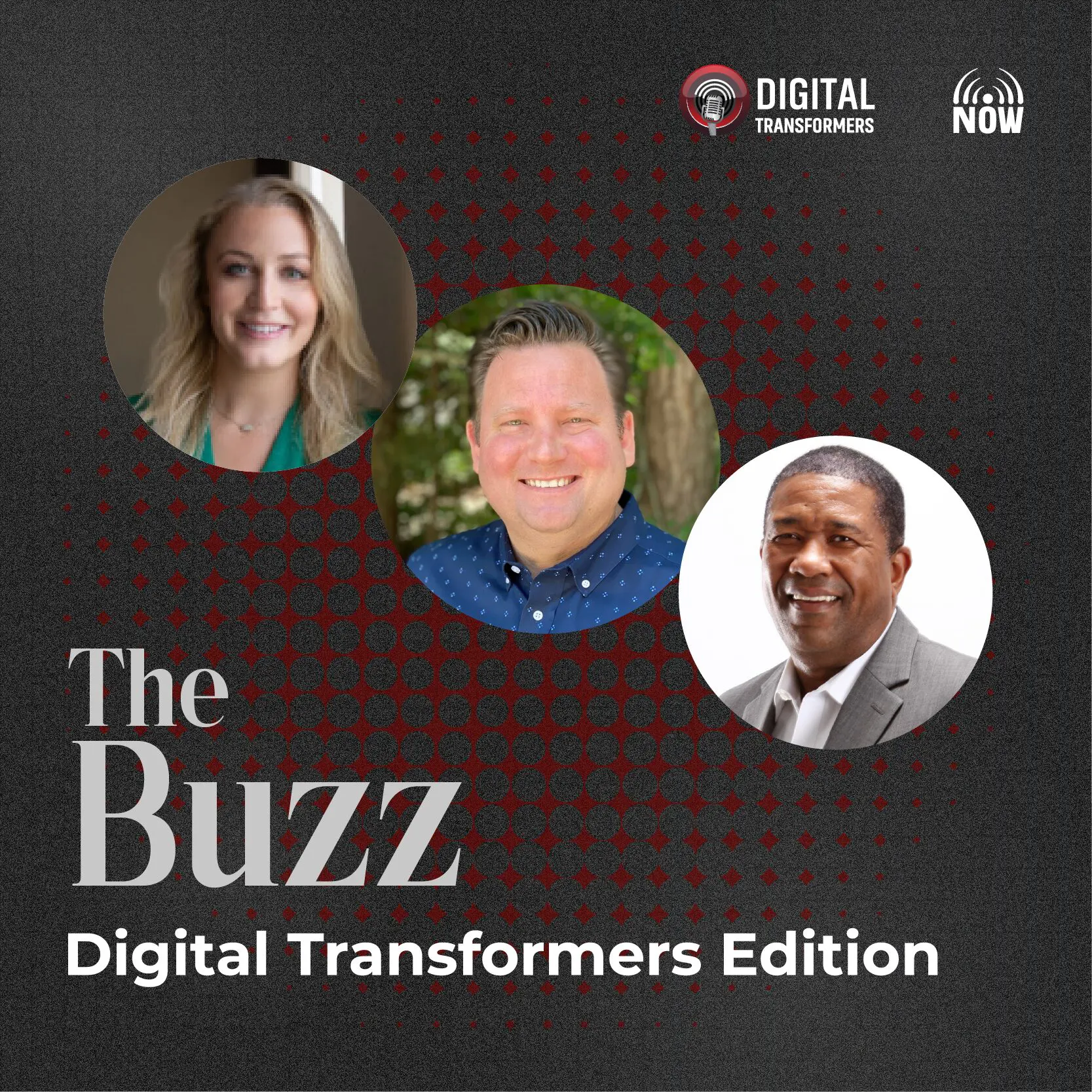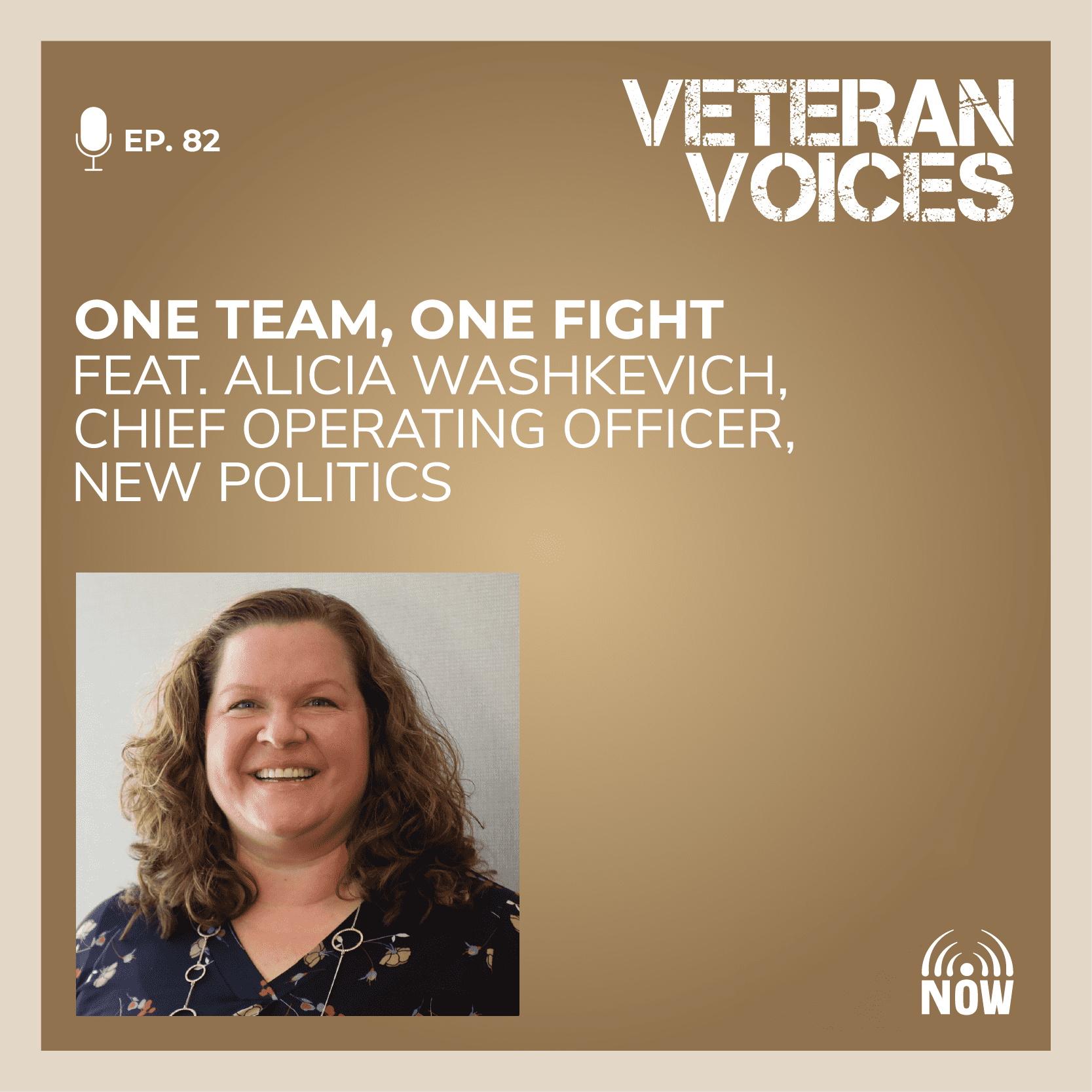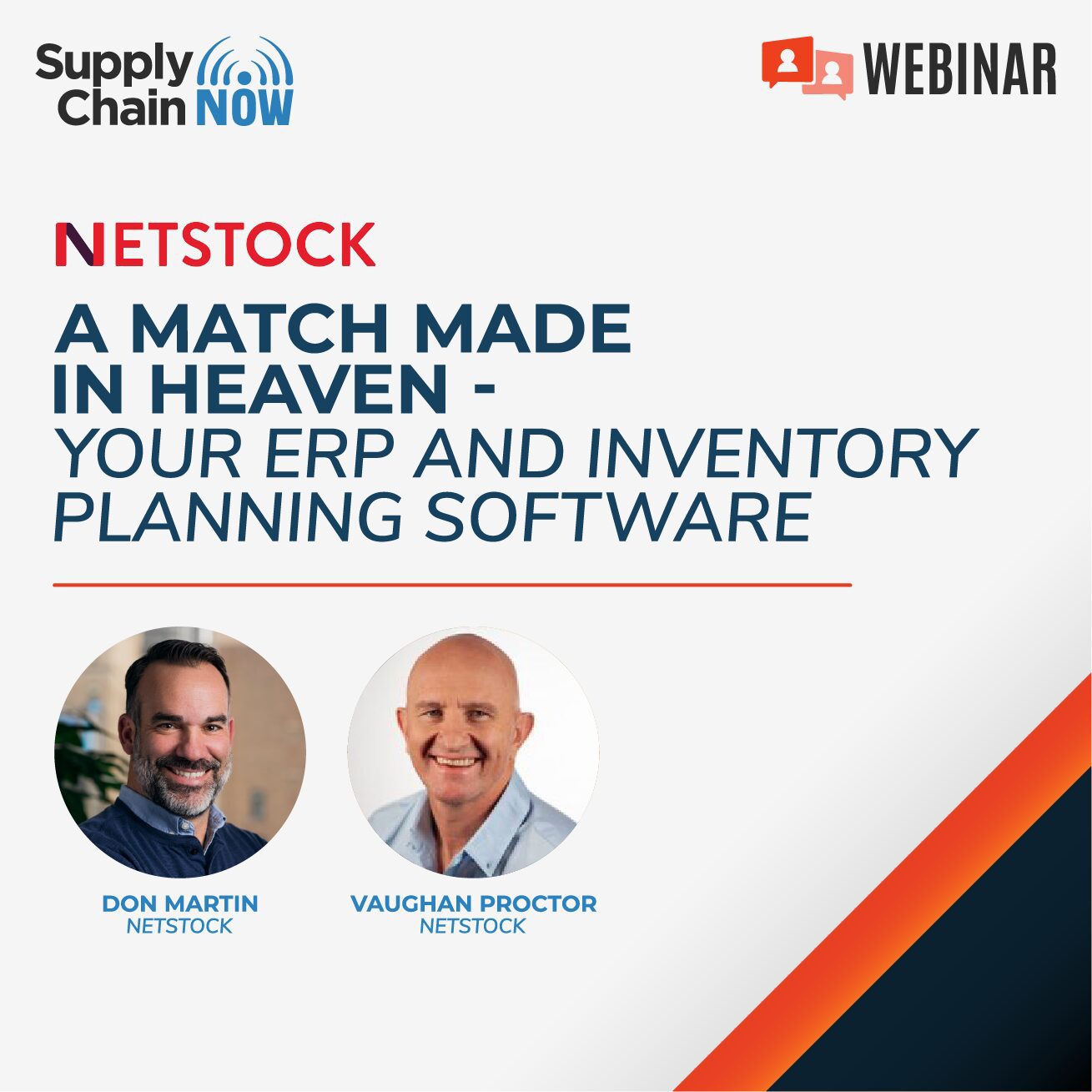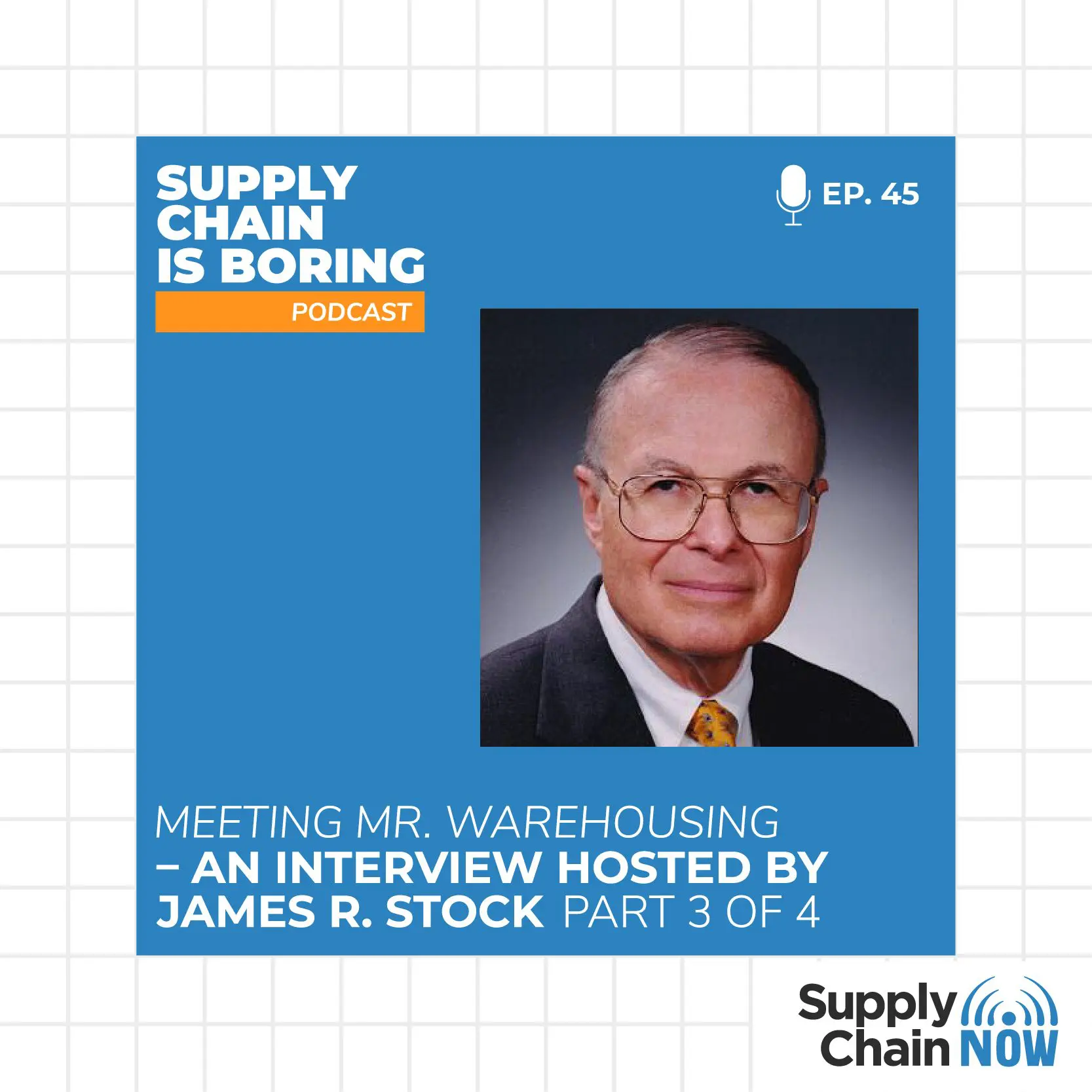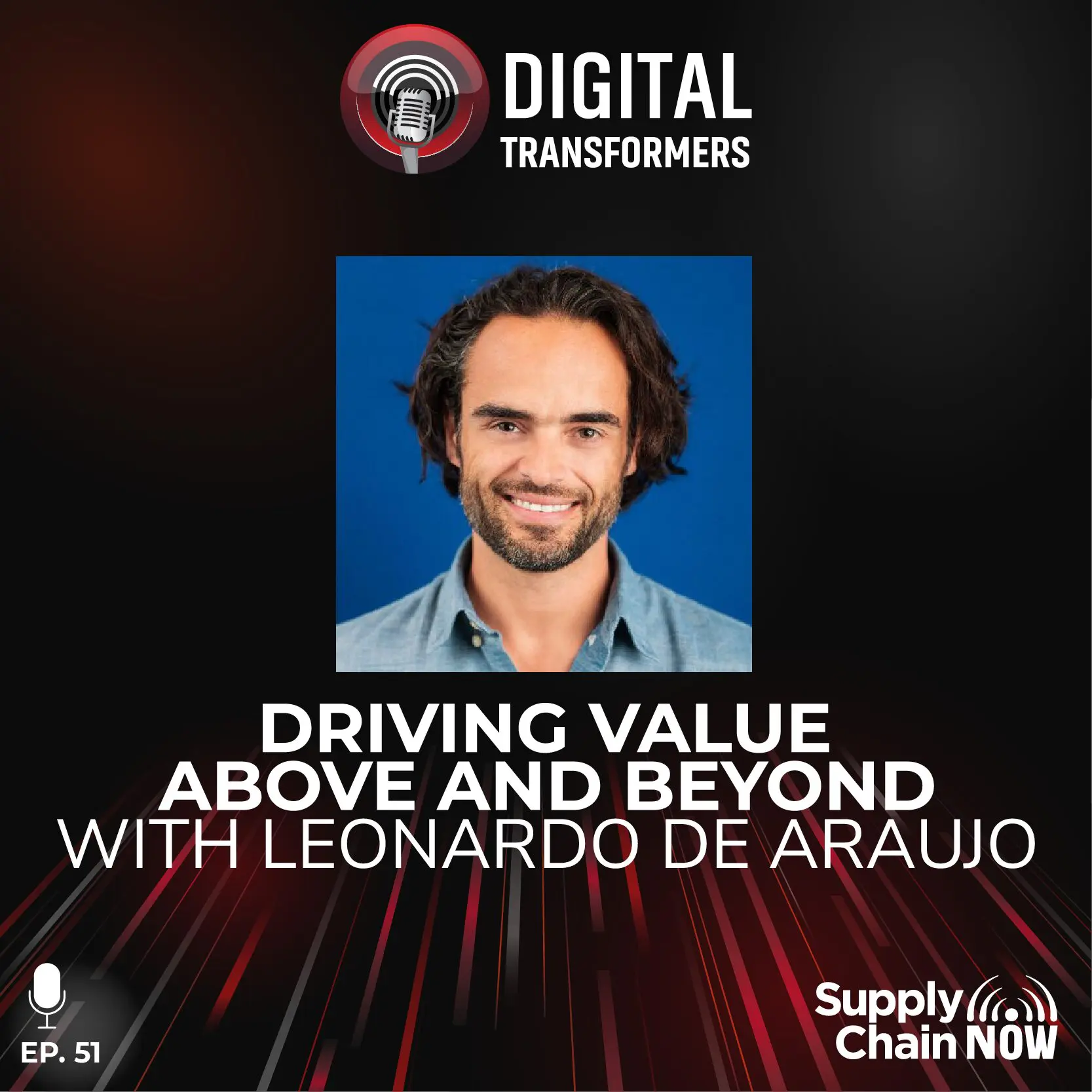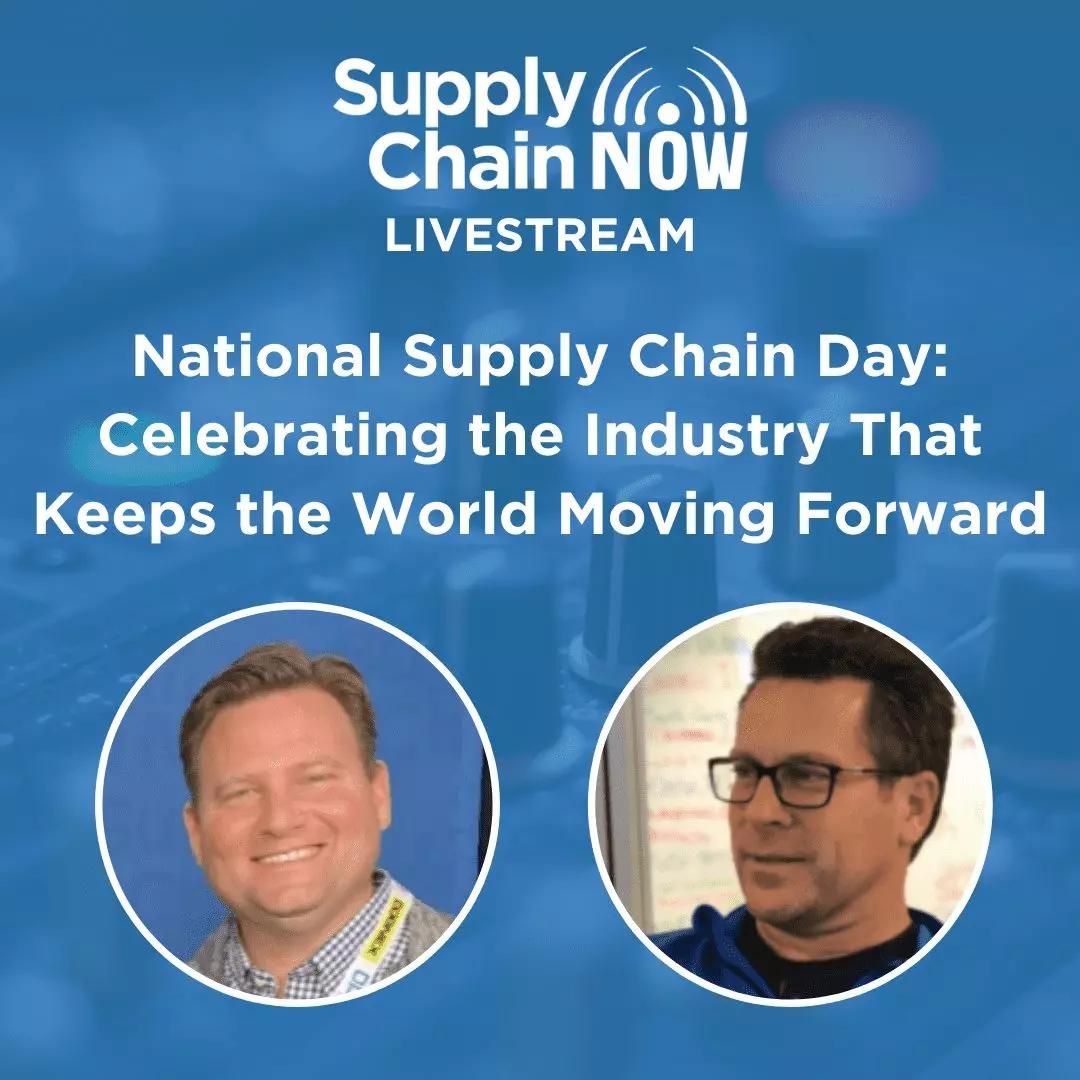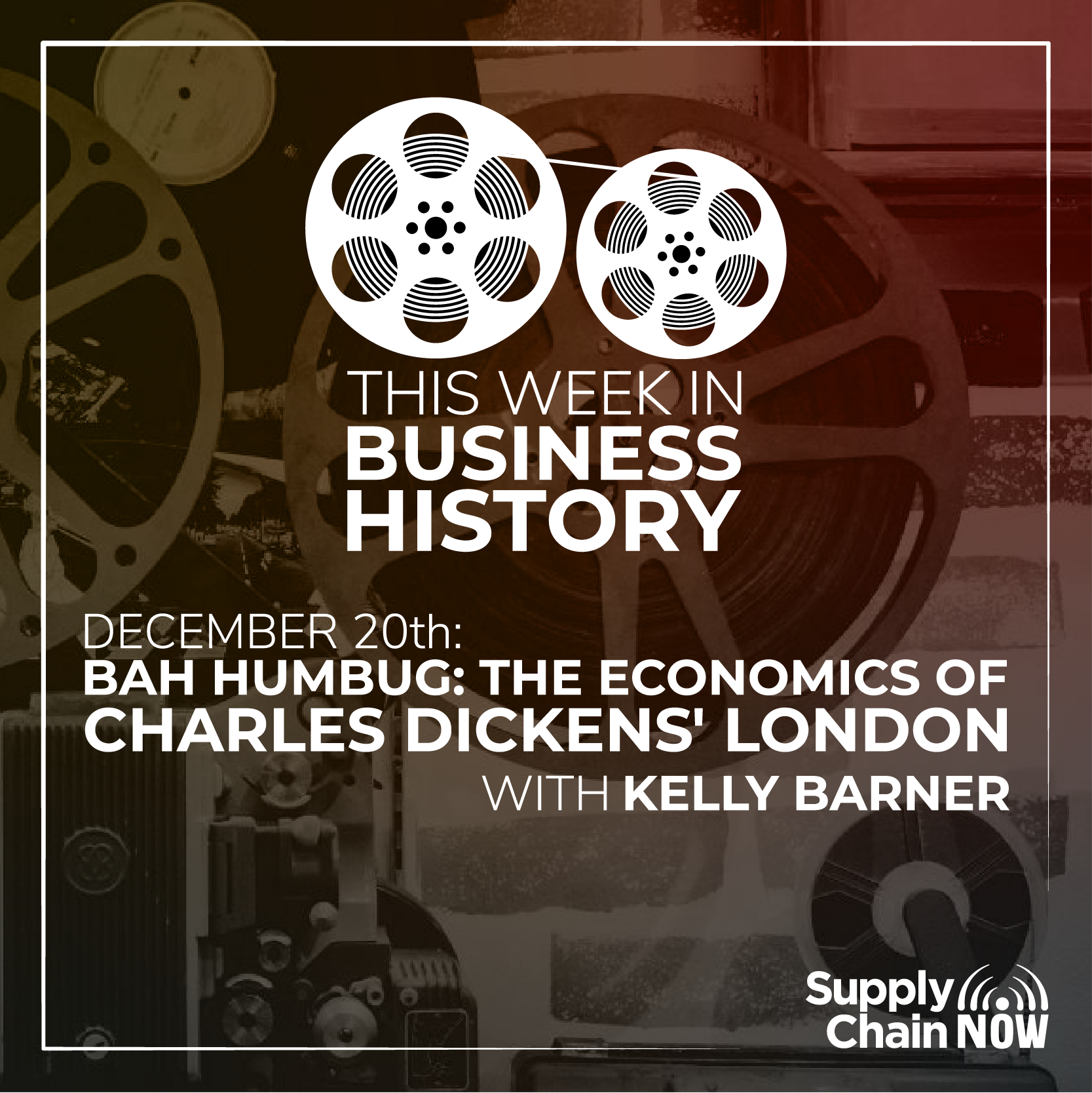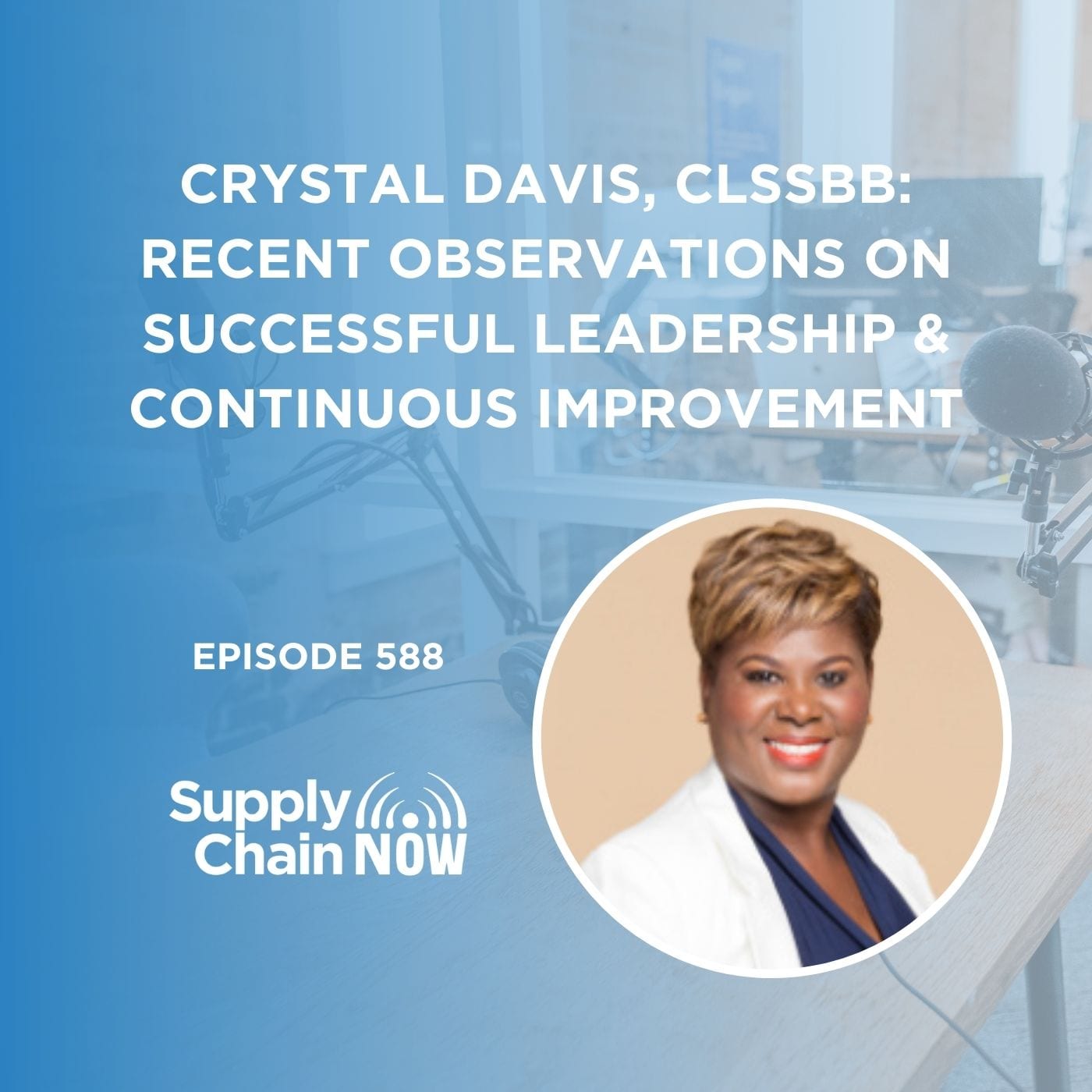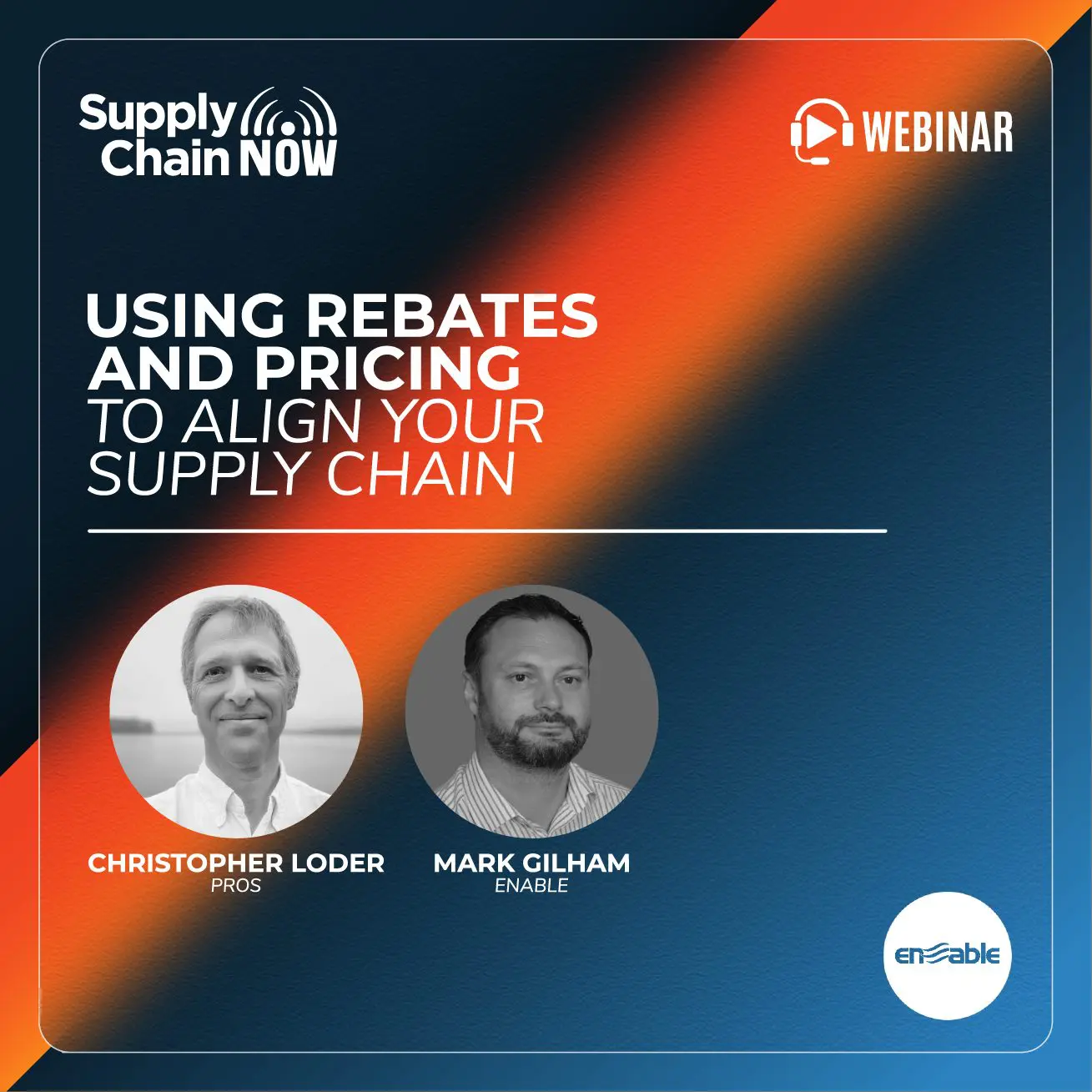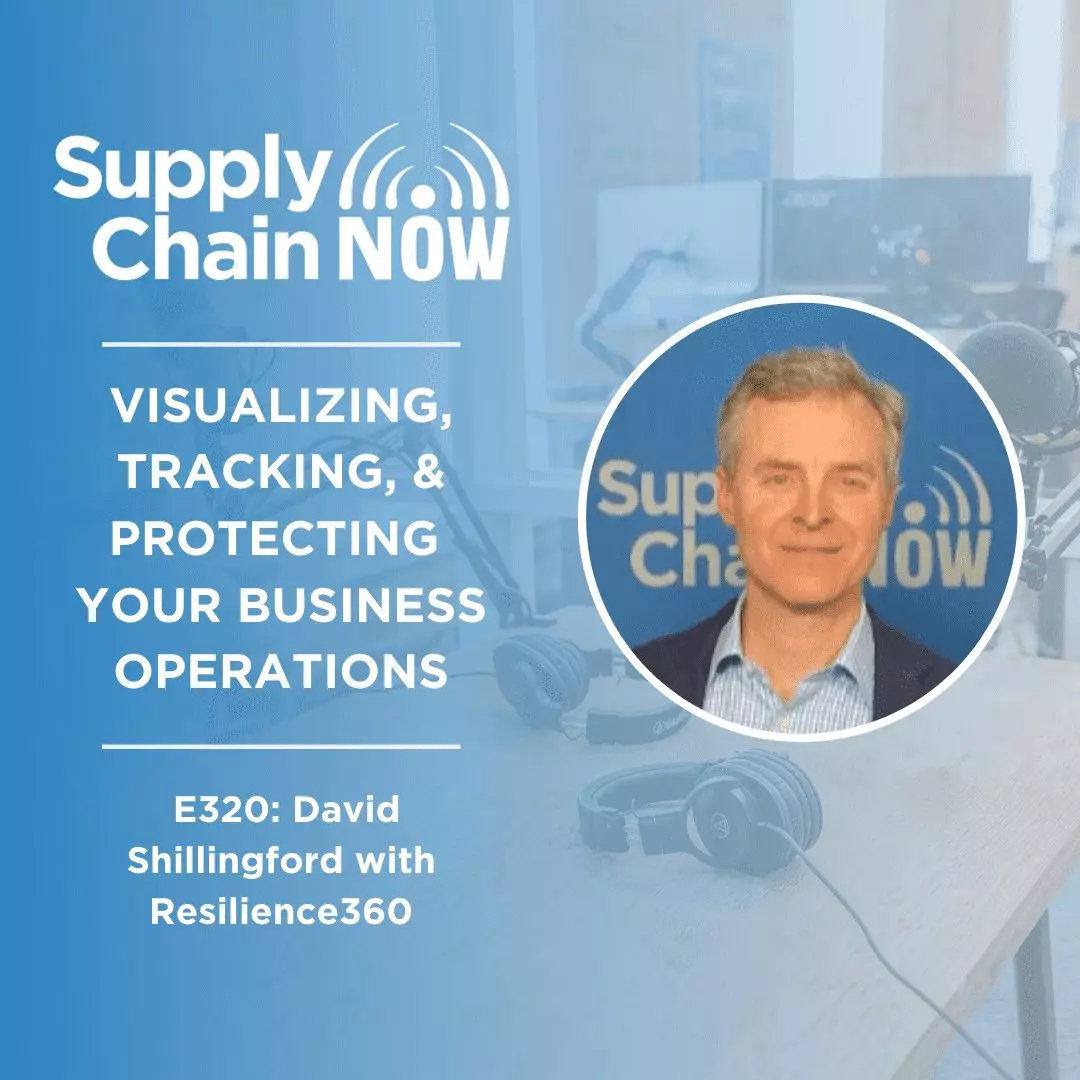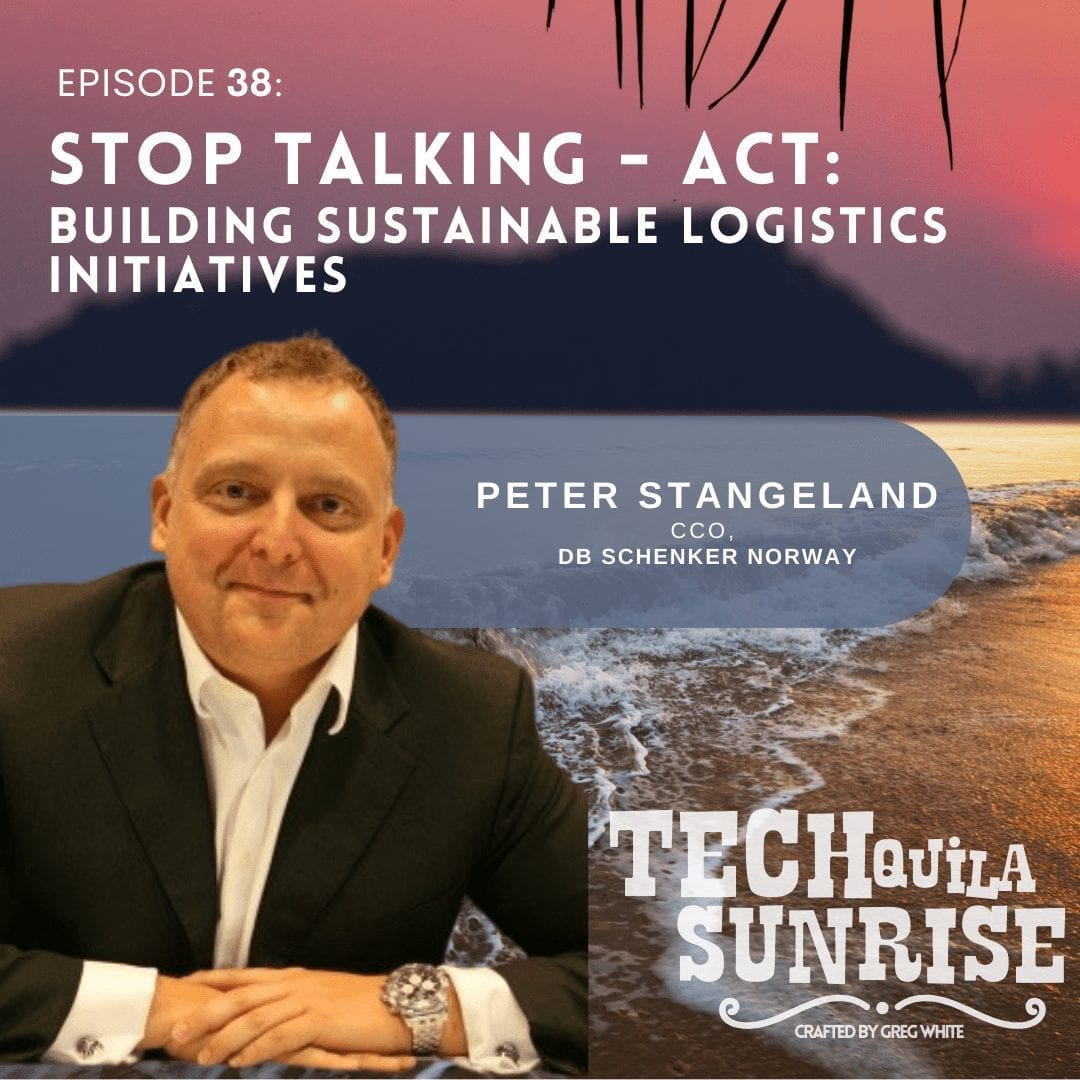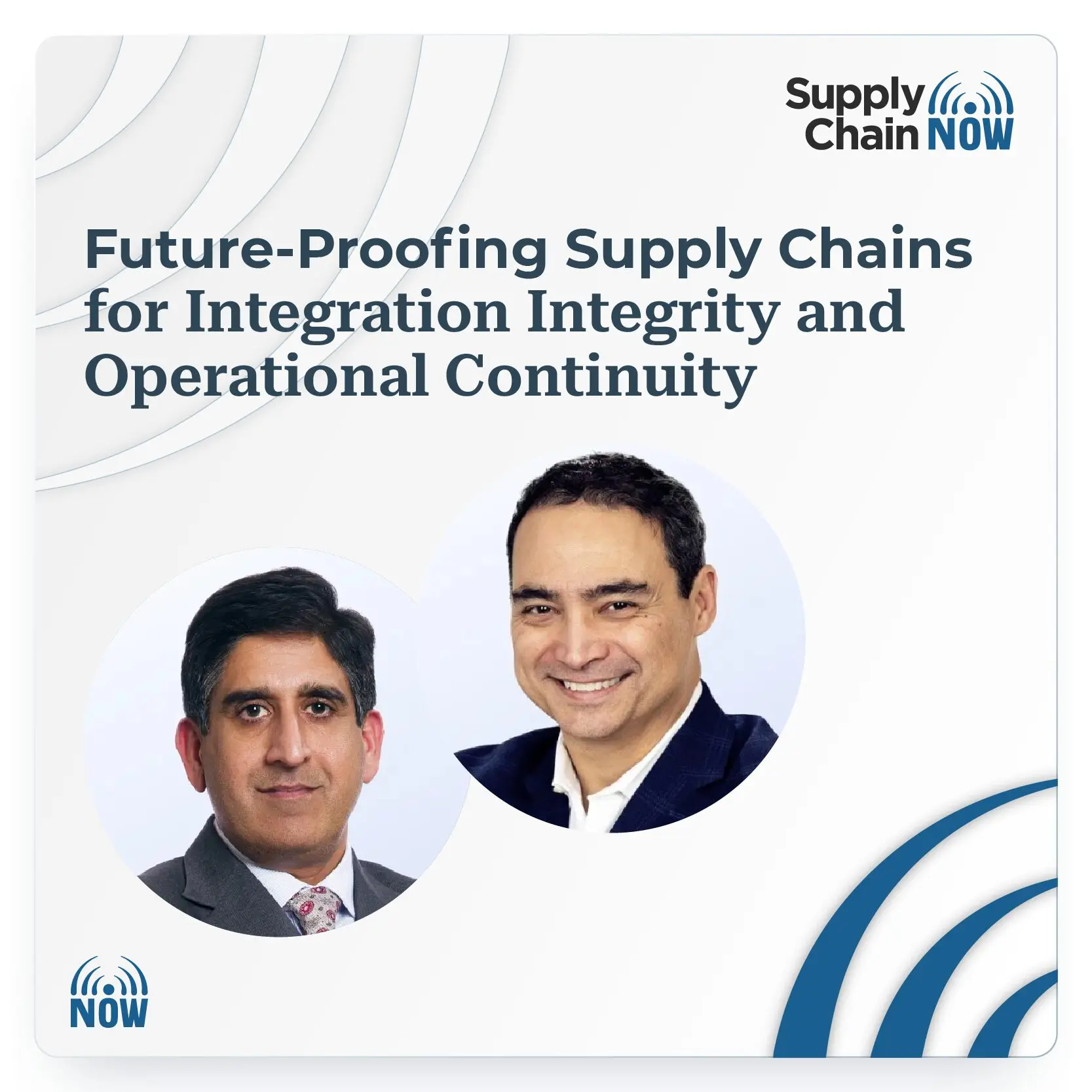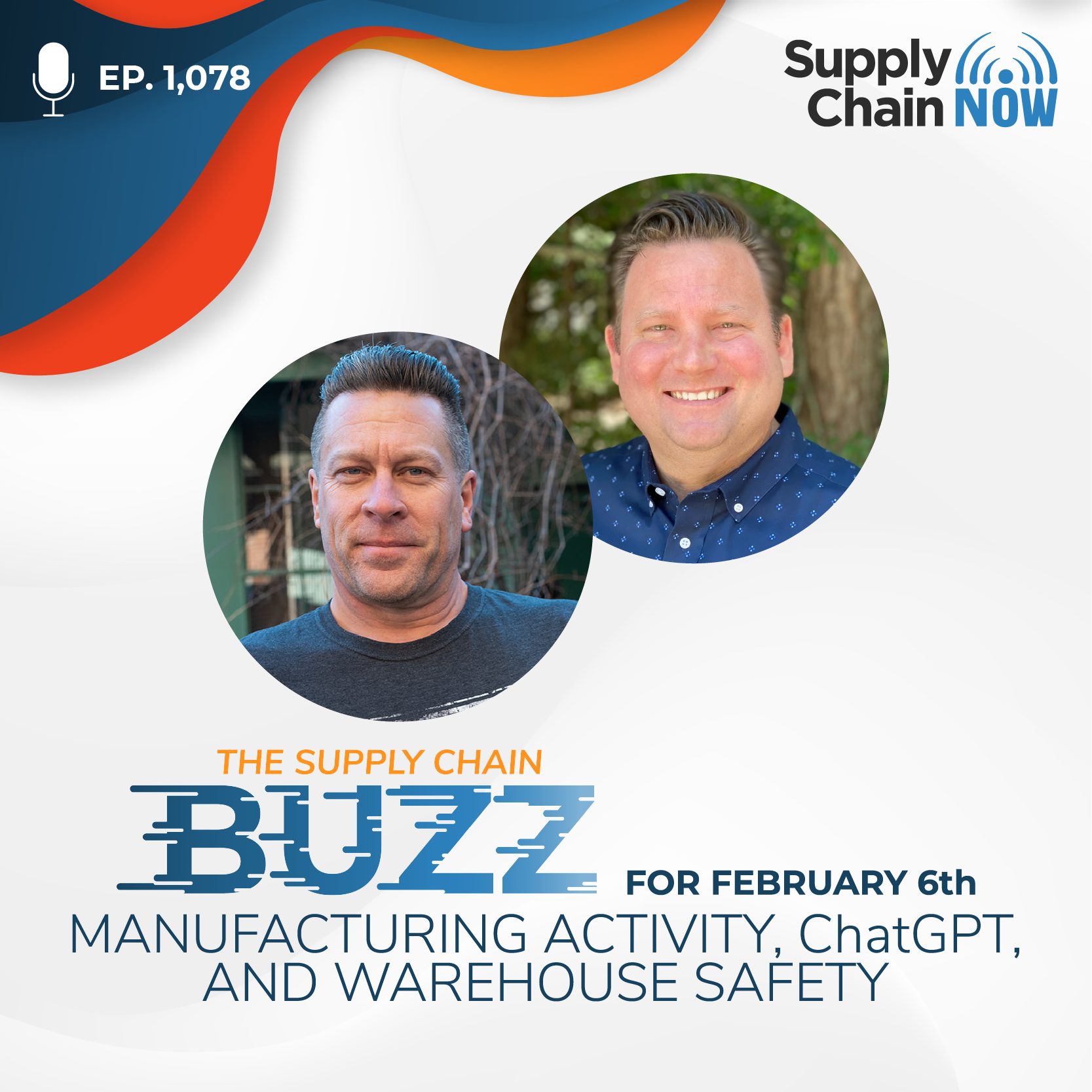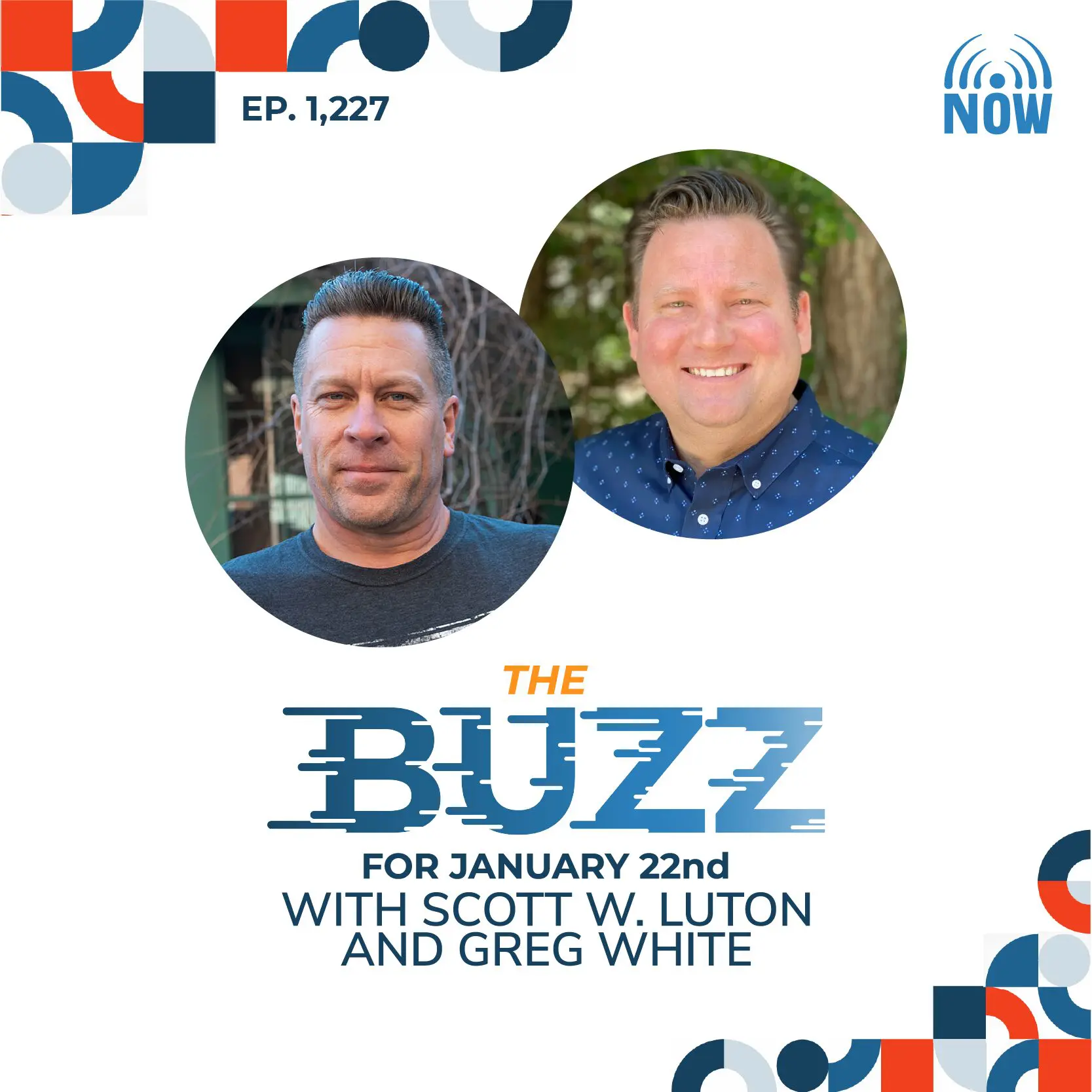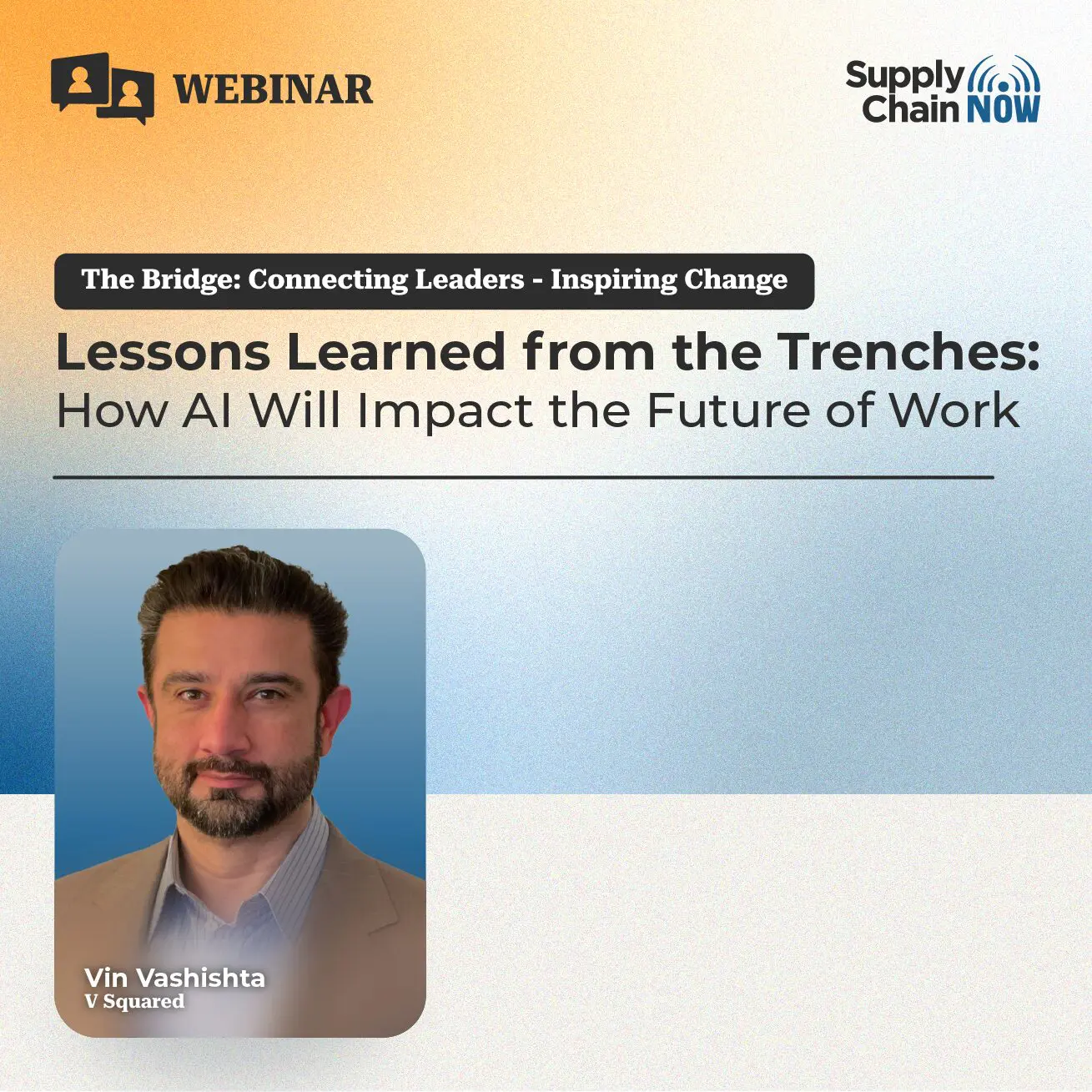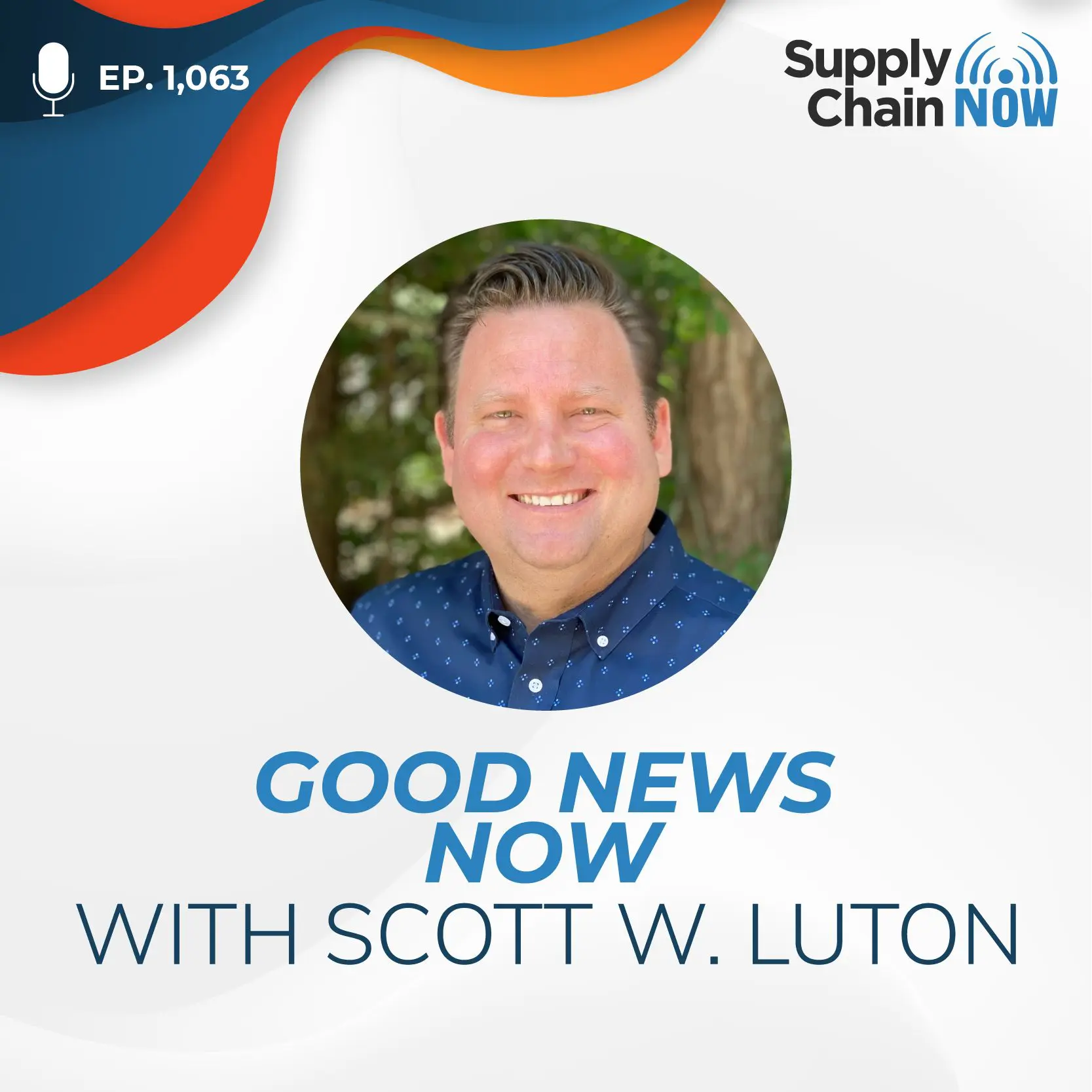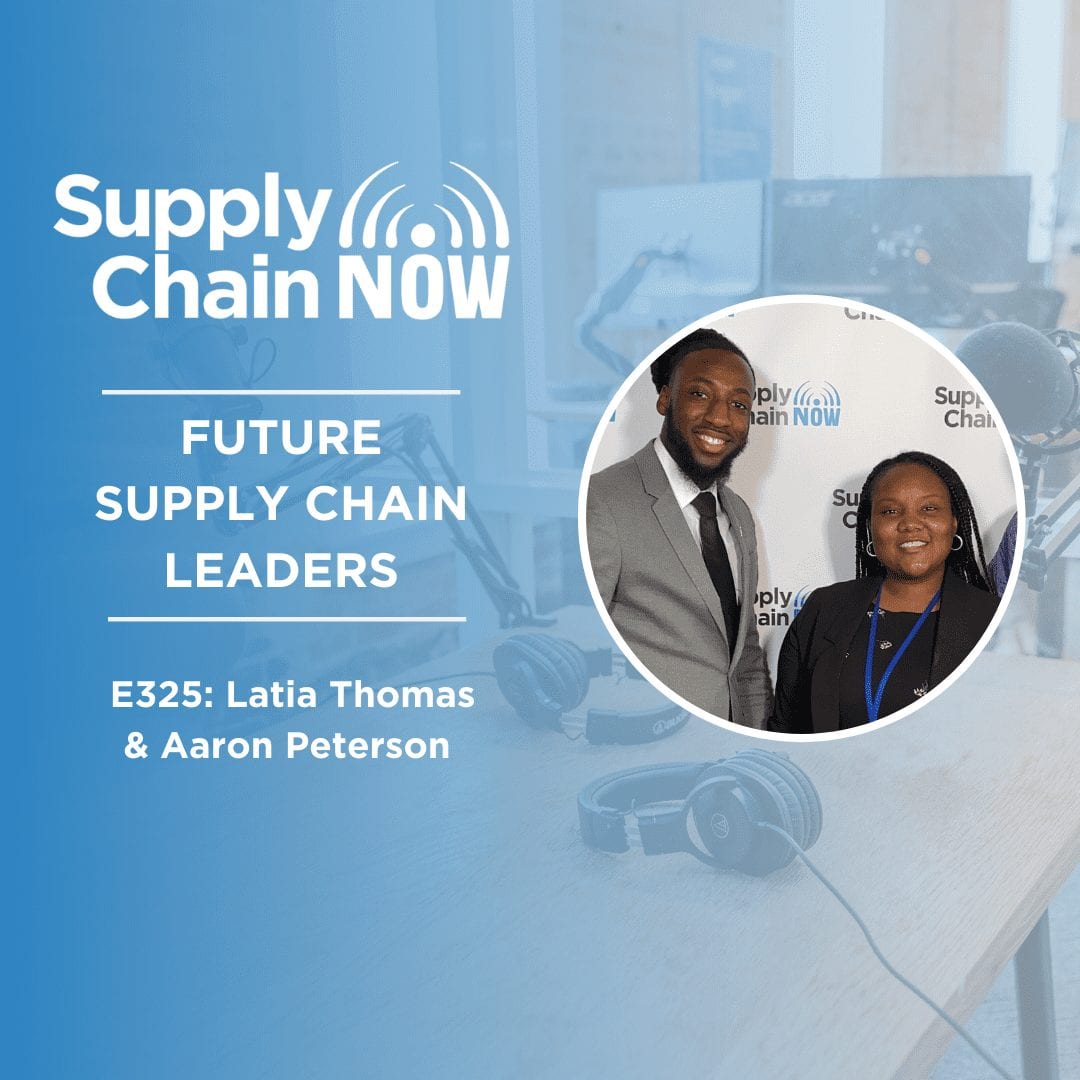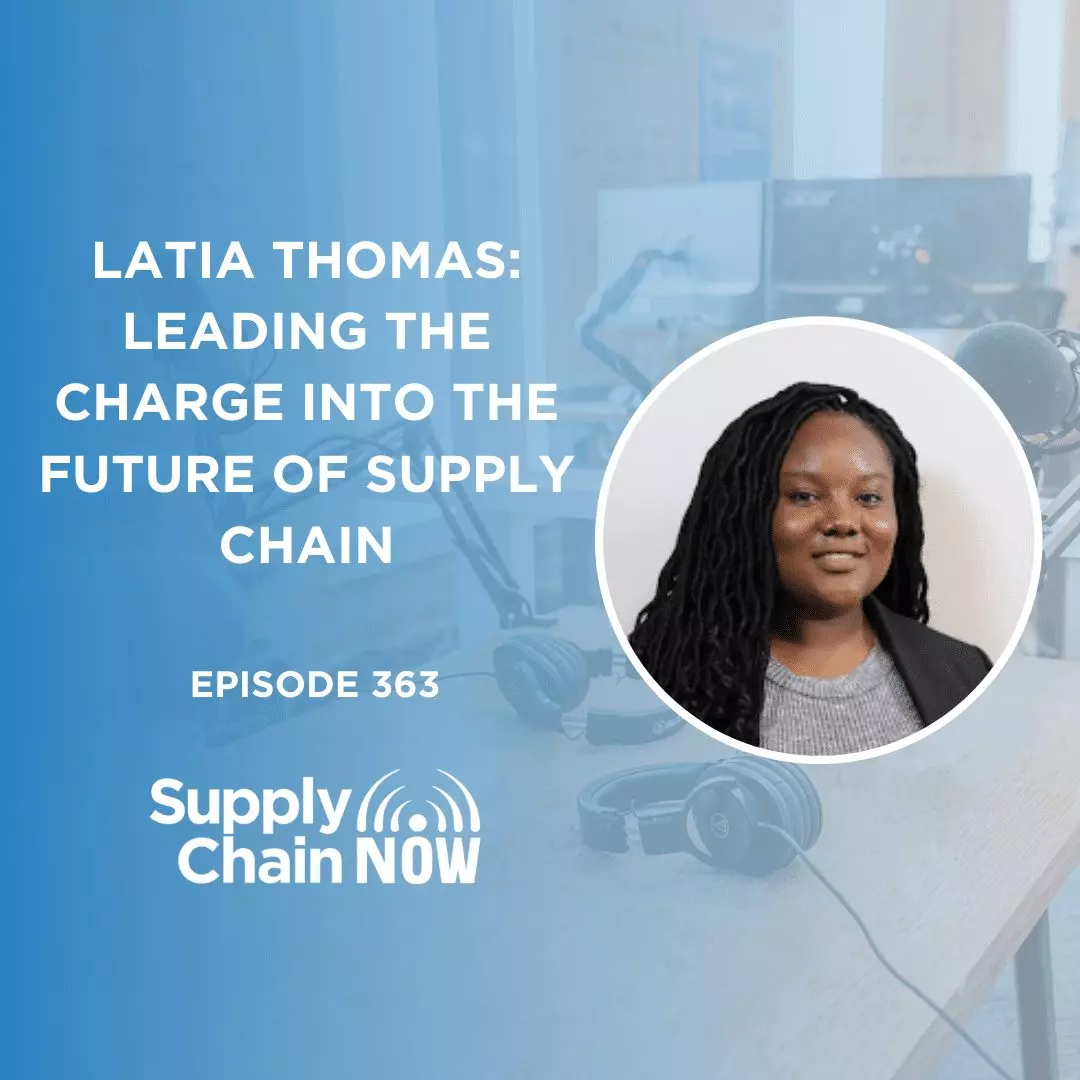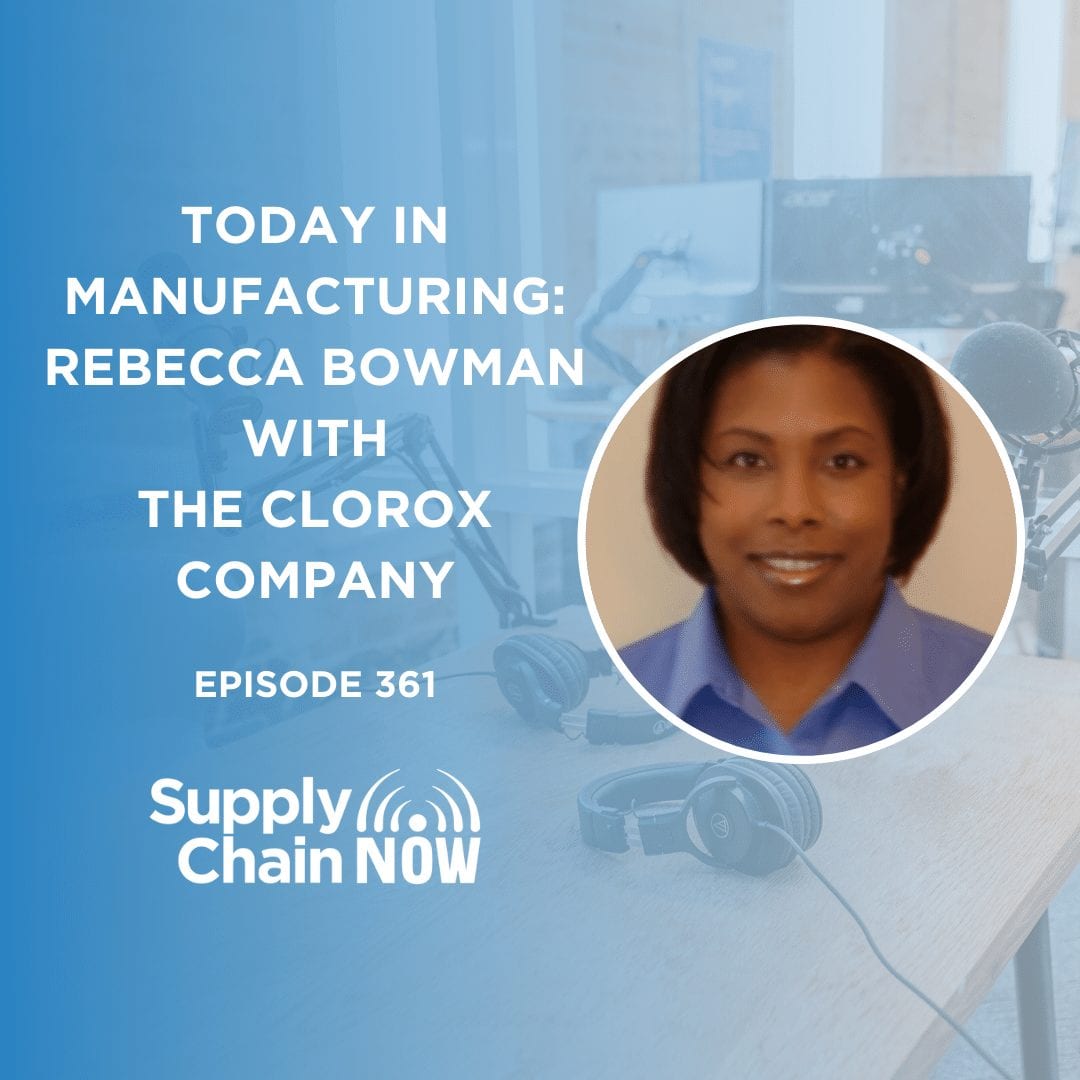[00:00:05] It’s time for Supply Chain Now Radio Broadcasting Life Supply chain capital of the country, Atlanta, Georgia. Supply Chain Now Radio spotlights the best in all things supply chain the people, the technology, the best practices and the critical issues of the day. And now here are your hosts.
[00:00:29] Good morning, Scott Luton here with you live on Supply chain. Now welcome back to the show. So on this episode, we’re gonna be interviewing leadership from one of the leading professional associations serving the global India in Supply chain community. Stay tuned for practical insights, observations and really should be an intriguing and informational discussion. The episode most certainly will be raising your warehousing and Logistics axioms, no doubt from you. Greg, thank you. One quick programing note like all of our series on Supply chain. Now you can find our replays on a variety of channels Apple podcasts, SoundCloud, YouTube, wherever else you get your podcast from is always good to have you subscribe so you don’t miss anything. So let’s welcome in. You may have already hurting me. He’s always breaking in. My fearless co-host for today’s show. Greg White Serial Supply chain tech entrepreneur, chronic disruptor and trusted advisor Greg. How you doing?
[00:01:19] I really have nothing to say, Scott, after that interview. I’ll do great.
[00:01:25] Great. Always good. Yeah. It’s been a good week, hasn’t it? I mean, there’s a lot going on. Everybody’s kind of back in the groove after the holidays. This Ryan won’t go out terribly late after we record it. So that’s cool. Yep.
[00:01:38] Yeah. And we’re breaking new ground that our first live as we did Linked-In live yesterday.
[00:01:43] Hey, look, we haven’t even had a chance to edit it. So if you want to see some only minor not too funny outtakes. Take a look at that saying it’s on our Linked-In. It’s on the Supply chain now LinkedIn page. So take a look at it. That’s right.
[00:01:56] We’ve got a great show lined up here. And this has been one week that’s been in the works for a while, literally. Sigh. It’s rife. Oh, nice. So let’s introduce Michael Makkah, CEO of the Warehousing, Education and Research Council, also known as Work WRC. So, Michael, how you doing? I’m doing great. Great to have you here. I know your work has a great presence here in Atlanta. I think you’re on your way to another market. I know you’ll stay really busy at work. Right. And you’ve got a big event that we’re really we talking more about later in the show. We do. We do. Never a dull moment.
[00:02:29] That’s rock and hard at work. Right. Right. No shortage of pansies. Yeah. Yeah. Delivering that. That’ll bring the comments in won’t it. Can we wrap with that. Yeah. Yeah. I throw a lot in there. Katie. I bet you hear it all the time.
[00:02:44] Well so let’s talk about four. Before we dove into Michael Michael story and what they’re doing at work. What we want to do is get an update from the news desk. Matt Malcolm has been working in overdrive, no doubt. And so what’s what’s on your radar? Greg?
[00:02:59] Well, Davos I mean, Davos is probably on everybody’s radar right now, the World Economic Forum in Davos. And a lot going on. A lot of news coming out of that. And for the first time, a subset that I can recall a substantial about amount of news around supply chain. So so Keith talk. Lim, the secretary general of the International Maritime Organization, said it’s time to get serious about curtailing supply chain emissions, specifically spoke to Supply chain not just business as being aware of their emissions. And he’s challenged companies there to reduce emissions by 50 percent by 2050. So that’s a sea, that’s a reasonable window. It seems like right now that seems to be less aggressive than I would expect.
[00:03:50] Looking at some of the you know, we just talked about Nessler world’s going to end in 10 and P and G and some these other well, some of these other global organizations and some of their goals and sustainability, a lot of that’s built around 2025 and 2030. So even though 50 percent presents a big number. 2050 seems to be. I thought that there’d be more aggressiveness there.
[00:04:11] Well, you know, he’s got some interim goals. One is to to encourage the broad use. This is a broad term, but the broad use of zero carbon fuels by 2030. And if you think about it, there are so many ships out there and there are already some initiatives out there to to curtail commissions, ship and lower emissions with probably also commissions out there for sales people in supply chain emissions. There are already some initiatives there. And I think he realizes that we need some step change. Yeah, but we need to set a target out there to get to real sustainability in the supply chain point. And hopefully people will try to try to overperform. Look, you know, the other thing that he says is collaboration is key, right? We’ve got to have companies work. Together, and we’re just in the stage as an industry where we can expect that, where everyone is even aware of all the participants in their supply chain, people are starting to take responsibility for the members of their supply chain. Right. I think if you’re a retailer or anyone who services the final consumer, you’re now finally aware of the business ethics. The sustainability. Right. And the provenance. There’s a great there’s a word we love to use that at the provenance and and chain of custody. You’re so aware of those things. And also, companies are so aware that every member of their supply chain contributes. Yes. To their brand identity. Right. And that you have to do business with ethical good actors in order to to protect your own brand. Yeah. So now that that awareness is out there, I think now is a good time to expect that we can start to see some real change.
[00:05:55] Love that. Two quick notes. Of course I am, though, 20 20. Yes. The industry is already dealing with that. Yeah. The International Maritime Organization, we’ve talked about that on a couple of shows. Gail witkowsky with Fastrack. Yep. Really loved her perspective. Previously. And then number two, back to collaboration. That is so critical. You know, Mike Griswald, who, of course, comes on the show mangaka once a month, one of the key findings from the last Gartner top 25 Supply chain rankings was that organized eight leading organizations. Folks are doing really well from a bottom line standpoint and then and just overall performance are finding new ways of not just collaborating with their supply chain and other organizations, but but collaborating with other whether it’s academic entities or associations or community groups to achieve sustainability and other other really important initiatives have proven proven. This is not you talking in Polyanna terms about collaboration, but it is. Bottom line is this it’s drive performance.
[00:06:56] I’m a big fan of fair trade. Right. I don’t think anybody should be exploited or you know, or, you know, done wrong. Now we need to start to elevate good actors in commerce. And we need to start to eliminate bad actors in commerce. And this is one aspect of starting to accomplish that. I love the idea. Look, I I was I was a merchant. I used to select the vendors that we did business with. I didn’t want to do business with people. And this was a decade or two ago. I didn’t want to do business with people who were bad people. Right. And it had little to do with even recognizing the impact that it had on our brand, our, you know, our company’s brand. It just had to do with with good business practice and good ethics. But I think whatever it is that motivates people, if it is being having their feet held to the fire as an it and it is a reflection on your brand that motivates you. I don’t care. Kind of like when when you’re working with a philanthropy, you don’t care why someone donates. You just care that they give till it hurts.
[00:08:02] Right. So on that note, let’s let’s get before we dove. You know, we’re gonna dove into it to Michael’s background here. But is there anything that we’ve shared? Kind of we’ve put a lot on the table. Anything you want to weigh in on or anything you agree with or disagree with or. I definitely agree with sustainability is one of those issues in particular that’s easier to collaborate around.
[00:08:22] Because everybody gets it. Everybody feels that everybody has a level of awareness on it. So when you talk about some of the issues out there that require or need more collaboration, some are tougher than others. Sustainability isn’t one of them. Yeah. And so it is it it does create an opportunity for organizations to come together and talk, to share information, to exchange ideas. In the end, it’s a win win for all. Yeah. You know, the advantages, the opportunity it creates is it benefits every. All right.
[00:08:54] Absolutely. Yeah. Yeah. I totally agree. Love that. I don’t care what your perspective is on the various science that’s out there. I was raised I was raised to to limit my footprint on the planet. Right. Simple things turn off the water when you brush your teeth. I mean, if you think about that. Right, turn out the lights when you leave a room. There are lots of. Oh, sure. Lots of sustainability efforts that are really, really easy, that require some that require, you know, collaboration, some that don’t. But, you know, nobody should want to do harm to the planet right now. Right. And and I think if people just take that stance. Yes. Right. Let’s do as little harm as you can. I was a hiker and a rock climber and that sort of thing when my knees were better. We we packed out more than we packed in because we would pick up what was ever left behind on the trail. So I love it. I think everyone can do those kind of little things and have a great impact.
[00:09:50] You have some room on your soapbox for the rest of us that I’m sorry.
[00:09:54] I know I took quite a lot of time. You know, I’m prone to do this. All right. Best of. Yeah. Yeah, we think.
[00:09:59] We admire your passion and we all agree to that. And I think sustainability is such a no, not to your point, a no nonsense concept, regardless where you fall in the ideology and all that stuff. Hey, to your point, just do the right thing. Yeah, OK. Simple. So let’s really. Greg and I really looking for this conversation with Michael mcchicken, CEO of Work. And you know, as always, before we start talking shop and work and whatnot will get understand and know your background live better. So tell us about, you know, where where are you from? Where did you spend your upbringing? And give us some give us some dirt on Mike. Michael mcchicken.
[00:10:38] Now, this might be the most boring part of this.
[00:10:42] I. Families from the south suburbs of Chicago grew up there.
[00:10:51] Family spent a lot of time looking at and being involved in options that gave back. And I think that was was part of what always formed my passion to be in a role where we’re serving others. And. And so, you know, with that, like I said, most of my time was spent growing up for a short stint. I did live out in Colorado for a couple of years. Nice after college, worked for an insurance company. We start talking about career and how the journey began. But it. You know, a small family, one sister and and but we’re Sheer grown up.
[00:11:26] Where would she live? She’s living in the south suburbs of Chicago. But Chicago, it’s a great town, as everybody likes to tell me. Two months out of the year, I live a year round. It is such a you can find so much. We went up there for a conference or so ago. I think Amanda just lived on the L train because of all the different places you could visit. As I was as I was working. But so no wonder. So your sister is still in there. We got a yeah. We live about 50 minutes apart. Really? Wow. Very cool. What do you what can you not get? And pizza always is the obvious answer. But what? From a food standpoint, what can you not get?
[00:12:04] But in Chicago, I have to say, like a hot dog, the Polish, most dogs, the sausages, things like that. They’re just that’s a weakness among many.
[00:12:17] I don’t consider that a weakness. I consider it a sustainability. One, are those delusions get work. I need to work. Yeah, but, you know, it’s a great city.
[00:12:31] Yeah, it’s a great town. And it has everything you want. The museums and and living, you know, about 35, 40 minutes outside of it. It’s not to take the best of that plus with the rest of the state has to offer. Yeah. People think of Illinois. They think of Chicago. But but it’s an incredible state.
[00:12:48] Yeah. And so as you were growing up. Give it any early role models that that, you know, that may have kind of impacted where you spent the rest your career.
[00:12:58] You know, I was thinking about that. And I I think really, from an individual standpoint, I it’s family. You know, I grandfathers who are very, very focused on their family and their faith and served as an inspiration to me. And my my grand one grandfather used to say, what you don’t know, people will teach you. And it’s a lesson that I carry through. And so there’s been a lot of influences and my career has taken different turns. And I couldn’t have written a script to get me to where I’m at now. You know, twenty, twenty, twenty five years ago, I never would have thought that one day I’d be sitting here doing a podcast.
[00:13:35] You also know it got to have dreams, though, right? I still do dreams that are much higher than the nightmares. It’s a fine line.
[00:13:49] You know, it is it it’s an incredible industry. Yes. And and so I’m very fortunate to be part of it. So I think you’re going to kind of get nervous about the whole professional.
[00:14:02] Yeah. So. So we kind of got to transition into that. So tell us a little bit about your your professional journey. I mean, so we can start in Colorado right now. Do you want with your insurance?
[00:14:12] Yeah. No. Do you think makes sense. I I started out wanting to roll it being a role that supportive to an organization. Right. And I thought that would be H.R. training.
[00:14:21] And my father was an insurance agent.
[00:14:25] So insurance was very much part of our world. And in Illinois and in our agent. Who’d have thunk it? Exactly. And and so in order to get into those roles or training and development, you started out either in claims or underwriting.
[00:14:36] And so I started out in claims. I worked for a company that moved me out to Colorado for a couple years and had been doing it for about five years when I saw a job posting in the newspaper when they used to do that back then.
[00:14:50] And it was right. Or I should we should explain to people what newspapers are. Right. Right. These big pieces of paper that a monster. Right. Or indeed. Now. Yeah. Yeah. Before you couldn’t search for job openings online. Yeah. Every week the newspaper would come in and people companies would take out their their ads of their their job postings. And we would. And I saw one for a technical training development. Yeah. For Insurance Trade Association.
[00:15:13] And, you know, it was it was to write educational material for this association.
[00:15:20] And I thought, well, I’m not really a writer, so I kind of let it go. And next week the ad was still there. And again, I. It’s not it’s not it’s not what I expected. Right. I mean, I was supportive. But I’m not a writer. And the third week, it was there. And so I thought, you know, I’m going to apply for it. And that started my foray into association. Wow. There there is an industry of association management.
[00:15:42] There is an association for people in association. Right. Really? There is. And I guess I should have expected it on several levels. And Sarah love GE Digital State. And then, of course, industries. Yeah. It’s amazing. Right. The Industry Association of Industry Associations. Yep.
[00:15:58] Well, that was fate, you know, for you to see that that time and time again. And the course now you lead one of the most recognized, especially from a supply chain industry standpoint. Industries out there with one of the you know, I keep seeing on Twitter and LinkedIn, you know, a lot of the writers in our industry like compiling, you know, some of the top events. Not a miss. Year in, year out work is on that regularly. So that must be rewarding for you and the team, right? It’s a big feat.
[00:16:27] It is. I mean, we we’re very we’re very proud of the industry represent and the segment we represent. Right. We. And we’re and it’s big and it’s growing. And. And so whether it’s retail or pharma or manufacturing, they all have distribution and.
[00:16:45] And so being able to say we look at those industries and we’re looking at the best practices and we’re sharing among them is is really a big part of what what our mission is. Yeah.
[00:16:56] So what? So we’re gonna talk about work and what it does. Just a minute. But before you became CEO of work, what was your previous role? What was a what was that you saw 20 plus years and associations? What what preceded work?
[00:17:14] When I worked for the Insurance Trade Association, part of the Education Department was to manage the conference. Okay. And so I was there a week and my boss came in with three big binders and said, we need to replicate this next year in Atlanta. Atlanta was the first city I ever produced a conference. And so, yeah, down at the Atlanta Marriott marquee. Awesome hotel. Just overwhelming when you walk in. Yeah. Yes. And so that’s where I started focusing on unconference management and production and went to work. But 20 years ago and to work on their annual conference. And that’s how it started.
[00:17:51] So let’s talk more about work, because it’s interesting. You made the point just a second ago. You in this in this e-commerce era, warehousing has always been important. Right. Warehousing, fulfillment, dcl. That’s always been important part of supply chain. But a lot of folks like consumers, it may not be in the industry, don’t realize just how critical that is to getting their products. Now, a day later, used to be two days. You speak two weeks. Now it’s that now maybe two hours later. Yeah. snibbe. Yeah. So let’s talk more about what work the organization, what what’s the mission and what are family activities Yeldon.
[00:18:29] Our mission is really to support our members. I mean, our our members help make sense of things, right? I mean, they’re a very practical group and it was a lesson I learned very early on. They are actually my first conference, but it was very practical. And we look out at our role is how do we support that? How do we make things help them make sense out of the things that make sense out of and better their lives, better their organizations, better their communities. And that’s that’s where our focus is. And we actually began a journey almost a year ago revisiting that mission. And and we’re excited about, you know, what the last year has brought us and the direction that’s gonna be heading us taking us into.
[00:19:12] So mission number one, take care of the members. And I love how you a year, a year or so ago kind of got back to the basics. I think sometimes and especially all the news and social media and emails, everything, it comes with an information overload. A lot of times even the most robust world class of teams can kind of, you know, lose what the war story has. But sounds like a year ago you said, OK, re-emphasizing mission. No job number one is take care of the member.
[00:19:41] Yeah, right. And part of that, you know, you’d mentioned whether it’s the DC or fulfillment center that was that was something we kind of struggled with because having the name warehouse in our name, it’s admittedly a data term. What does that mean anymore? Right. And so that was part of the research that we did over the last year. And what what we’ve come to realize, I think affirmed what a lot of us knew. But whether it’s a DC or fulfillment center, a warehouse. Some companies call a flow center aisle. We’re not so much focused on where things are happening, but what’s happening, the processes receiving is receiving and, you know, put away is put away. Shipping is shipping. And whether it’s happening within the four walls and you call it a warehouse, a D.C. fulfillment center, or what we’re seeing now right out of the back of stores. Right. Those processes that we focus on and it’s it’s really distribution. But Dirk doesn’t have quite the same ring. Korac where? Korac. Right. And we’ve actually kind of we’ve we’ve coined the term distribution Logistics because Logistics is so broad. But you know, it we narrow it down to the areas of distribution. And that’s been an evolution. When I started with the organization, they were we starting to see it then where there was a time when they were formwork were forty two years old. Now what we’re focused on what happens within the four walls. And and that began to evolve in the late 90s. What touches the outside four walls. And you have a manager that a warehouse manager in Des Moines, Iowa, that’s dealing with city pet issues at the Port of Miami. Right. So it’s it’s no longer there, no longer constrained by those four walls.
[00:21:21] So much is changing so fast terminology operation. The markets themselves. It’s tough for companies to keep up stuff. Associations keep UPS. It’s tough for folks in the industry, practitioners included, to keep up. Right.
[00:21:35] Yeah. I mean, it’s a. It’s been a fascinating evolution to watch because, you know, having been in the role I was in, I thought of the distribution centers as those places that took big boxes and broken into small boxes and sent it to my stores so we could sell it on the shelves. Right. And but it’s so much more than that now. And it’s it is the store in a way, in some so many cases. Right. And now it’s about the proximity to the consumer customer. It’s not just a warehouse full. I think fulfillment centers. I think crosstalk and and flow through facilities, whatever you call it, they’re all various types of warehouses. Even the stores, as you said, are arguably warehouses today. Yeah. Right.
[00:22:19] So as C.E.O. Well, my favorite questions to ask folks. It will makes assumptions where the CEO, he or her spends their time. And as we’ve learned through two hundred sixty somewhat shows, there’s so much disparity there. So where where do you spend most of your time leading the organization?
[00:22:37] You know, we I’m fortunate. We have a very lean team. I work with great people and the organization has evolved over the last few years excuse me, where we we partner with different organizations to help us in different way, whether it’s our internal I.T. support, whether it’s marketing, sales, writing, graphic printing, whatever it is. And so all of us, including myself, where a lot of hats within our organization, all of us answer the phone at times. All of us are talking to our members. All of us are working on items around our database. We’re all very familiar with your organization.
[00:23:14] And that’s really to our advantage, I feel, because you call our office a human’s going to answer and they’re going to be aware of the memberships. They’re going to recognize the names of the people who were familiar with whether there are chapter leaders because we’re all involved. And when you have a staff like ours, we all know what’s going on. So where do I spend my time? What day is it?
[00:23:43] Oh, yeah. That’s really kind of where it’s at. Yeah.
[00:23:46] And we have a great supportive board. And but but you know, we’re able to take such advantage of of our flexibility. That is hard to say. Here’s where I am. Here’s where you are and here’s where you are.
[00:23:58] Do you like that aspect of the job? I mean, having a different job every day. Do you like that? I do. Yeah. I think it I think is energizing. I mean, for some people, right?
[00:24:06] It is. And it it it really gives us a sense of what each one of us has to do and what we’re dealing with. Mm hmm. Which is, again, I think speaks to our strength as an organization.
[00:24:18] Well, I like it because I bet it spurs a lot of different ideas, because as you have different folks on the team as a dude made the same role. They do it differently and it might present opportunities to improve where if it was one person doing only doing them one single task, it would be only done the way that their worldview or their approach would have it be done versus when everyone is involved, as you describe. And it kind of decentralized matrix that can really create some innovative ideas.
[00:24:49] It does it add some fresh perspective. We’ll be talking about an issue and somebody I talked to this member the other day and they said this. Well, maybe that’s something we should follow up on. And so it is it, again, I think is is part of what makes us a strong organization.
[00:25:07] So I want to talk about the work conference that that’s coming up. So so just laid out there. So let’s talk Logistics first. When is it? Where is it? And maybe who’s the big keynote that that most members are resonant nerve that are that is resonating with most attendees.
[00:25:24] It is May 3rd to May 6th. And it is in Providence, Rhode Island, where returning there last time we were there was in 2016. The speakers vary. All of our content is peer driven. All of it goes through peer review, graded, scored, et cetera. So and there’s the variety of topics. One of the things we start out each of our planning meetings with is with our committee, which is well represented, the industry of retailers, manufacturers and a variety of suppliers. What keeps you up at night? What’s keeping your clients up at night? And then we start focusing on those topics.
[00:26:00] And so it it’s gotten to a point where it’s a little bit easier because it provides focus and.
[00:26:11] And so I think with that, our changes we’ve made the last few years and everything. It’s been a benefit sense. We are contests go scores very well.
[00:26:22] I kind of believe that your experience having done these kind of events, but I think it has to come into has to be a substantial assistance to the people who are making it happen now. Right. I’m gonna be able to give them some practical guidance. Haven’t done it before.
[00:26:35] I mean, I know that there is we’ve got a great team. Andrew Sobel Horn, who is the V.P. over? She’ll be excited to be mentioned. Wow. Well, she should be. She’s done a lot of great work. Yeah. And and it was an area when I transitioned into this role.
[00:26:49] It was hard to let that go because conference is such a big part of work. Yeah. It’s not hard to let it go when you have somebody confident. Yes. That is able to carry it. Yeah. And so and that’s that’s been the case.
[00:27:01] So, you know, again, it’s not our focus isn’t so limited.
[00:27:06] Yeah. Because everybody’s looking at we’re talking about the big picture all the time. Right. Well, speaking of how varied. So I’m looking at the prelim agenda now and what a bunch I wanted at all. So, you know, 90 days they get a new facility up and running. I saw top hot top the art of moving CBD. We talk about that industry quite yet.
[00:27:25] Point at me when you talk. Because you know about it a lot more YADU. Of course, I’m on the board. I’m on the board of a company is in the CBD industry. That’s right. Yeah. These days it’s legal rights. Supply chain.
[00:27:39] Supply chain. Innovation, what’s working, what isn’t. And this is just a couple of of looks like 30, 40 different sessions. So clearly that not that you are trying to be one or, you know, one size fits all or one stop shop that you clearly you’re recognizing the diversity of challenges and topics and and aspects when it comes to the industry you’re serving.
[00:28:05] Definitely. And that’s where you find again, the content for the most part is agnostic.
[00:28:09] There’s certain areas that focus in on air, on specifics, like when we talk about CB D, but it’s also a lot of courses or general.
[00:28:19] So whether you’re in retail or manufacturer, you’re gonna walk away with something. And that was another lesson early on. There’s a gentleman on our board from Hershey, Ken Moema, and he served a conference chair one year and he said it just has to be practical. It just has to be practical. And and so that that, again, is what drives us when we’re planning at all.
[00:28:39] So and it’s open to the public. Registration is still open. I believe a few months out. And let’s. Can I ask you a silly question? Of course, the Logistics behind a conference like this. So, you know, we were just talking on the way into the studio this morning as we head out to Vegas. I think I said you’re going to be at two believed RLA conference and expo and just get here for our little play part of the show. Just get everything out there in the right place at the right time. Safe like when you bring in several thousand people right. To Providence, Rhode Island and and you’re putting on a three ring circus. And I mean that and very a very complimentary way. What the headaches that P.T. Barnum has. I mean, give us a little little snapshot behind the Logistics behind it like this.
[00:29:31] What we bring about a thousand, but I think there’s a thousand or several thousand. You’re still dealing with the same issues. Right. And so it is you know, planning starts out way ahead of time. But this year, thirty forty third conference rights will be I think are forty third conference. Right.
[00:29:46] So you’ve been there, done that. That helps especially with the planning. But to your point, planning probably starts right after the last show.
[00:29:54] Actually we’re planning for twenty one. Now we’re starting to. Work on concepts because it just doesn’t end. People say a conference is over and all, you’re good for a while.
[00:30:04] Yeah.
[00:30:04] Know in our minds, Conference 2020 is almost done, right? You. Yeah. And so we’re starting to think about the next one. But it is. It starts out years in advance where we’re booked out a few years for our conference and. And we’re looking at, you know, the cities. We’re go into the rotation program. The people who will be chairing the committee are identified a few years out. So it is it. It’s a big deal for our organization. And it and it requires a lot of planning for it to go off in such a way that people think it was something that got, you know, we want them to think this was easy. Right? You want your guests to walk and they’re our guests. Yeah. Now, this is our event. We partner with our hotels, the convention centers. They have an impact. You talked about suppliers having an impact on other suppliers. Right. They represent somebody checked in at that hotel desk. They don’t have a good experience. It was it was a bad experience at the work conference. That’s right. And so we work with the best partners. We communicate with them well. And and hopefully things will go off when and when things are happening. When I first started, somebody said, we know, we know things are happening, but we don’t see you. Yeah. And I’m like, well, and how do you really know? But but they know, right? You know, you. Yeah. To have some speakers not showing up or room wasn’t sad or something crashed. But but again, our group is practical. They’re used to those things that tend to flow with them.
[00:31:28] I want to kind of bring us back as we kind of move towards wrapping here. But I want to bring it back to something you said that just stuck in my mind and you had mentioned what keeps your members awake, so.
[00:31:43] You know, if you could.
[00:31:44] Pin down one or two trends or conditions in the marketplace that are occurring now or, you know that they have concerns that might be occurring in the future. Talk about some of those things that are that are keeping your members awake.
[00:32:01] Labor is probably the number one issue now. It used to be when we go around the room, it wasn’t mentioned as often as it is now. And we’re seeing that and we’re hearing that. And certainly the research bears out. The Bureau of Labor and Stats Gates in the next 10 years, warehousing is to grow by 20 some percent. Warehousing and storage, that’s hard to believe that, considering how fast it’s growing already.
[00:32:23] Right.
[00:32:23] There’s no research in or Nami Nahmias that showing internationally it’s gonna be growing by 5 to 6 percent around the world. So how do we respond to that?
[00:32:31] And I think, again, this awareness of serving the greater good companies our members are struggling with what they feel might be the right thing to do. But but how does Wall Street react to that and how do they find that balance? And there are some companies who will who.
[00:32:50] Who are you talking about? Labor versus automation or labor or automation.
[00:32:55] But but with this workforce that we’re developing, how do we create a professional pathway for them? For them to think about this is as more of a career you’re starting out here. But let’s look at what your potential Miura. And in investing in that in that training and that education. So it is it’s it’s that’s one of the struggles. But then automation comes in. And when you introduce it, how do you introduce it, the risks of introducing it, not from a labor perspective, but the costs and and will it produce what what you expect to. And so it’s finding that balance because you can put technology and you still have to have the people be able to run it. Right. Right. And so it’s it’s a there’s a little bit of a chicken and egg going on in the industry with that regard.
[00:33:42] I think there’s still leadership wants the latest bells and whistles and gadgets and technology even sometimes if there’s not a that’s not a priority. Right. I love we love the phrase practical application. All right. So that you get what you need, you implement it in. Folks know that to your point, folks. And I use it. Right. Because what’s the latest? Google. What’s the value, the latest and greatest technology and haven’t just possession or ownership of it? No, no one knows how to use it. Right. Effectively. So that’s probably an ongoing that. Is that a common theme that’s baked into a lot of the workshops and conferences?
[00:34:25] You know, again, our audience tend to be pretty practical. I think they’re getting some of that pressure from others within their organization. But they they know enough to say, you know, there was a time when RFID was it. Right? I mean, exactly. To the retailer that said there’s the top 100, you’re gonna be compliant with RFID policies by this date or you’re out. And and yet while RFID has its place, it hasn’t solved our problem. Right. All of our problems. So so I think that’s where those that are in the industry have been in the industry are saying, yeah, that’s interesting. I see a possibility here.
[00:34:58] But, you know, I’m I’m going to take a little bit more of a of a careful approach to.
[00:35:05] Yeah, let’s not get over our skis. Exactly. Don’t be a hammer looking for a nail.
[00:35:09] I heard a lot of people say, right, but go like that.
[00:35:12] Go back to this labor. So that’s something that you heard a lot about. Your members are talking about, do you? You know, we had two talent leaders own with this the last week or two. We just released the episode I just released episode one focuses, one firm focused more on the direct harm side. Right. And placing managers and director level folks and engineering talent, stuff like that. And the other firm, a well-regarded firm, placed a lot of the more contingent labor. Right? Hourly labor. A lot of labor in two d.c’s and fulfillment centers and warehouses and even some manufacturing plants. And they both spoke to the notion out there there are still some companies that are that are true laggards in pay. Right. And and in fact, we were talking before it like the that webinar by one, your board members that that kind of was track and hourly pay. And it seemed like there was a point on there in the last 25 years where there all of a sudden you had the plurality of firms finally got it. They finally got that. A lot of the folks, they were paying nine, ten, eleven dollars for or having to work two jobs to make ends meet. Right. Any any initial thoughts? What, Harry, are you seeing the the industry now that you’ve got one D.C. in the same market competing for some of the same hourly talent that make fulfillment, that either they’re competing, you know, a quarter or a dollar more here or a swap. And what’s your take? Do you think? He’s really kind of understanding now how empowered the the the hourly workforces.
[00:36:50] I believe they are. I mean, whether some are responding to it or not is another question. But I think they see it. You know, we have a company presented at our conference last year and they talk. They don’t have a labor issue. They’ve they’ve invested in their culture. They’ve invested in the flexibility they’re offering. So they’re offsetting that. And so somebody isn’t going to jump ship for a dollar. Because they have some flexibility. They can they they have graduation time. Exactly. I can take time off to go to my kid’s school or my kid’s sick. I’m not worried about whether I’ll have my job or not. And so there’s the tradeoff with it. Pay still important, right? You want that person to have one job and not be working 80 hours a week.
[00:37:32] But but companies are looking. How can we balance that?
[00:37:37] Yeah, well, that that awareness that you talked about before, the intentionality of recognizing that, hey, somebody is not going to be a dock worker forever. Right. They’re not going to be a picker forever in the warehouse creating a path for them. I think helps allay that concern, you know, substantially as well. Right. Because they can see a path to a greater tomorrow. Right now might be. I might even be nine or ten dollars an hour today, but I know I can work to 12 or 15 or 20 or 30 or 40 or whatever it is. Right.
[00:38:08] Right. And that’s actually something we’re working. I told you. The initiative we started last year is can we create a program for those supervisors, for those young managers, so that they see that there is a professional pathway and. And for companies to be able to measure, you know, their employees skillsets and affirm their skill sets. So somebody has something that might be transferable, whether it’s a certificate or credential of some kind. And, you know, that’s that’s actually an initiative that that we’re in the midst of right now to respond to that need outside of labor.
[00:38:41] What else are you seeing out there either happening now or that you see could or maybe even should happen in the future in your industry?
[00:38:50] So much of our focus has been on labor right now, the adoption of I.T. is one that’s a big question and of course, big data, how to make data useful in the warehouse exac.
[00:38:59] There’s so much information and and there’s those companies that want to measure everything, but there’s gonna be even more rather good with 5G is already you know, I think our phone right here is on 5G here in the Atlanta market. I read something in Industry magazine last week. They were talking about kind of the three big ways that Texans shape manufacturing in 2020. And the very first one is, is there’s going to be more machine customers or users of 5G than humans. And it’s already starting. Right. Because to your point, we’re equipping everything with a sensor work or collecting so much data. But how do we use it? You know, just because you’ve got it, that’s that’s not even half the battle.
[00:39:40] Right. But all 5G does make it come at a faster rate than all it does. It just in more data, right. Water through a firehose. Fire hose. Right.
[00:39:48] So along these lines is kind of second cousin, the big data. And in I.T. automation right now, we’re talking to a lot of other conferences and associations where automation is the number one thing folks are talking about. You’ve met with some of the Atlanta area firms that are up that are providing robotics in the plants and warehouses. Well, any any observations? Is that part of the buzz you’re hearing from your members and whatnot? It is.
[00:40:17] And I think, again, as this cautious optimism towards it. Will it make a difference? How how can we use it? When and at what time do we introduce it? You know, there’s there’s a lot of sensitivities, right, with the economy’s doing well now you’ve got low unemployment. Is now the time or am I going to push this off a few years until it’s more refined? And until I understand it better? Some Dabbs is the case, too. So it is. I think timing is kind of is an issue when it’s not a matter of will it rise matter when.
[00:40:48] That’s right. OK, so before we kind of start to close here, we’re going to make sure our listeners know where to learn more information about work in the conference and all. You have been part of all the work conferences, but you’ve been you’ve seen a lot of them during your time. What’s your favorite thing if you if we weren’t if we didn’t have a microphone in front of you and you’re talking with your family or your team and it’s something you look forward to each year. What is that about the work conference?
[00:41:16] Wow.
[00:41:20] We have great general session speakers. I thought it was going to say the drinks I thought was good, say the networking are the people that come back each year. There’s some things I look forward to it. I mean, so many parts of it.
[00:41:32] But I focused on no microphone.
[00:41:36] You know, I am fortunate I get to sit in that room when we have these people up on our stage and we bring in some incredible speakers. They have some credible stories to tell. It is seeing people year after year. There is a following. There is the group that come every year because of their network of really now friends. And this might be the only time they see them in a year. Yeah. And. But it’s always changing. And that’s that’s kind of interesting. It’s it’s a bit of a laboratory in that we can we try different things of what might work. One year we may or may not repeat or will tweak and that type of thing. So we really work very hard to keep it fresh. And so it’s always kind of stepping back to see how are those changes being met. Love it.
[00:42:18] Look, the dynamic of of an event like this is such that you can present all sorts of information. But what I’ve experienced and we had we’ve at various companies I’ve had we’ve had customer events as well. And what I’ve recognized is that what people take away might be one thing, but it can be an extremely impactful thing. And it you have to expose yourself to the opportunity and you have to be aware of what your current pain’s your current concerns are and and have your mind open to that when you’re when you’re at an event like this, because you might go to an event where you’re talking about real estate in regard to, you know, how to position your warehouse. But you might actually hear that, you know, somebody is using this fire extinguisher system in their in their difficultly placed warehouses. And that’s a problem you’ve got and you’ve solved that problem by doing that. You just have to recognize that you can’t try to learn everything. You’ve got to try and learn the most important things. That’s the guidance that I would give anybody that goes to any one of these conferences.
[00:43:27] And it’s all around. Right. So we have suppliers that come to our conference and they want to present their products and services. And that’s great. But what we tell them, too, is you’re going to find greater opportunity to engage with people. If you sit in on a session, go on a facility tour, join a discussion group, come to the general session, break bread with them. And that’s you know, if you stand in one area for four, six hours and you think that’s how you’re going to make your connections, yeah, you’re missing the boat.
[00:43:51] Yeah, I bet there’s a lot of peripatetic that are leading those facility tours. Folks like to move other talking in their eyes.
[00:43:59] They’re very good, Scott. I would use that vocabulary. So audience that we as we uncovered before with love.
[00:44:06] Greg is a well-known peripatetic, which is someone that loves to communicate while they’re moving. So pardon the dad’s job. But we challenge each other if we can weave that into the converse.
[00:44:15] Welldone. And I think I got bingo. Yeah, that’s right. We didn’t say blockchain. Let’s say blockchain. Now you got bingo. Well we’ll leave it. We will leave it diverted. Let’s not.
[00:44:26] But we’ll really enjoyed it. It’s been a long time coming. Great to meet you in person. And love works. Doing there is such a you know, while there’s been a ton of change in evolution in in the association side of things, and we we’ve certainly spent a lot of time as volunteers here locally, it still remains that it is to your point and to what both y’all were speaking to. It is a wonderful place to develop a network to to learn new ideas, fresh ways of looking at things. That is like the hallmark. That’s like one of the timeless advantages of get involved in groups like work. So good luck on your conference coming up around the corner. I know you’re already kind of. You’re one. I own twenty twenty one. I own twenty twenty one, Jack. But clearly there’s a lot of buzz. And with what you are doing and with the May event in Providence, Rhode Island, and maybe you have to have you back talking key takeaways after the conference. Appreciate it. Thank you very much. All right. Oh, you know what? We didn’t ask you. Let’s make sure folks know where to go, where to go, where to go, to learn more about work and the conference. Nolan No. WRC dot org. Well, it’s easy to keep an eye simple. Well done, right? Absolutely. Well, we have been talking with Michael mcchicken, CEO of the Warehousing, Education and Research Council, also known as Work. As we talked about, they’ve got a big their year big yearly annual conference coming up in Providence, Rhode Island, May 3rd through the 6th. And you can learn more at work. Dot org. Okay. Good stuff. So, Michael, sit tight for a second. Greg Allen, we’ve got a couple of things coming up. We always like they encourage, you know, there’s value in in person and develop into rapport and and learning more. And we invite all of our audience members come out and and check us out in person. We’ve got a couple things we’re gonna be at.
[00:46:13] We’re gonna hit on very briefly, not all of our audience members.
[00:46:17] And you know who you are. Many of them, yes.
[00:46:22] But if there’s something you heard that you cannot find via Google, where you can’t find on one of our past episodes or the show notes will include a couple whose links and show notes shooter note to our CMO Amanda at Supply Chain Now Radio BCom. That is not a bot. That is our chief marketing officer. She does exist. That’s right. We’ll see if we can help you out. But Greg, what’s so here in the new year? What’s the first thing now that we’re beyond the CSC MP, Atlanta?
[00:46:49] Yeah, we talked about it. Our next opportunity to see Mike, right? That’s right. At the Retail Logistics Association Conference and Expo. Reverse reversal.
[00:46:57] Just what I say. We know we’re on the heels of in our EFT retail. Yeah. All right.
[00:47:02] Reverse Logistics, a big topic for retailers. Let’s go with that. In Vegas, baby. All right. February 4th through the 6th RLJ dot org. Our friend Tony Sciarrotta.
[00:47:14] Michael, friends. Well, we’re all friends. Everybody’s friend. That’s right. So looking forward to that. We are not just because it’s in Vegas.
[00:47:22] I mean, it you know, we just talked about sustainability in Supply chain and reverse Logistics is a significant part of that. Yes. Most great. The best way to eliminate returns is to work from this from before the sale. Try to eliminate returns. That’s the best philosophy that Tony has has promoted. I love that.
[00:47:39] Yes, I did, too. It’s all about the consumer. We’ve got it. We’ve got educate ourselves as consumers not to order the wrong things. You know, and I’m guilty as charged numerous times, but that’s where the problem starts.
[00:47:51] We could show people are a little sign. Yeah, you’ve got to represent your product appropriately. All right.
[00:47:57] So RLJ. And then, of course, Mode X, huge show. Come back to Atlanta. Yeah.
[00:48:03] You know, our listeners may know ever even year in Atlanta. That’s right. The Motor Show this year and March 9th to the 12th at the Georgia World Congress Center. I can’t even tell you how many square feet of conveyor systems and small warehouses. I mean, they are essentially building entire warehouses in this facility. Is that something you guys will be at or. Well, you might start because of.
[00:48:26] Yes, what we’re doing together. But I attend that conference, and you’re right. Incredible. Yeah. Every medal and whistle is there.
[00:48:34] Yes. Like Tonka toys for 4. Supply chain Gates. It really is.
[00:48:39] Well, what’s cool and what Michael’s alluded to, which we we always touch on ratter mutex is mutex is hosting our 2020 Atlanta so that you’re in your second year. Really excited about that. We just had a team, a meeting with the executive advisory board yesterday. Nominations look great. Registration’s look great. We just last week we gained Home Depot joined us as as a sponsor, Georgia-Pacific. And the point, a center of innovation for Center of Supply chain innovation came on to join us. And the world’s best airport, Hartsfield Jackson Hartsfield Jackson, Atlanta International Airport, AIRGOOD. So we have got a lot of tailwinds as we look to celebrate the end in Supply chain that takes place here in metro Atlanta. Of course, a lot of the companies that are that are involved have operations elsewhere. So we’re really celebrating industry. Ellmore now is sponsoring, yes, a an award warehousing and fulfillment excellence. So yes, they’ll be here in person. Might be Michael might be another member of his team to present the present co-presenter award.
[00:49:40] Just depends on the weather in Chicago. Let’s get out. Right.
[00:49:45] So we couldn’t appreciate works involvement more. It’s a great thing to have. If you’re gonna have a warehousing related award or a Flo’s that are related award or what have whatever the term is, it’s good to have work on board. You appreciate the opportunity part of it. You bet.
[00:50:00] So the good news is it’s free to attend mutex MDX show. Dot com for more information. Of course, those links will be on the show notes. The Vetlanta supply chain awards. That is a sub event of Moad X. Other small fee there to join us for that lunch event. But Atlanta Supply chain awards wsj.com free to nominate. Come out and join us for the event or sponsor the event or you can come out and hear our keynote Christian Fisher, President and CEO of Georgia-Pacific, which will be an excellent keynote. And then one more. One more.
[00:50:33] Yes. So the Association for Manufacturing Excellence there, 20 20 lean summit here in the 80 well, right. May 4th through the 7th. That’s right. We’re gonna be there just the first day. That’s right. Right. So while everyone else is sipping drinks and networking, we’ll be working our cocktails.
[00:50:52] I love it. Yeah. Talking with the people to put microphones in their faces after they pour a couple beers down her neck. Well, great group.
[00:50:59] You know that group at the Association for Manufacturing Excellence dedicated to that? Well, obviously that sector. But continuous improvement. Continuous improvement. And that while that’s a regional bill coming up in May, they’re bringing their their biggest have been at the year to Atlantan in twenty twenty one. All right. So looking forward to that. A.M.E. dot. Org and of course, it’ll be on the show notes as well. So big thanks to not only our audience for tuning in today, but our guest speaker. Hopefully I’ll enjoy it as much as we did. Michael Mixteca CEO of Work, which stands for the Warehousing, Education and Research Council, learn more at work. Dot org. And in on that note, Greg. Anything else on your end before we sign off?
[00:51:42] Once more, I feel like I’ve said enough, don’t you? This has been. Well, I think.
[00:51:49] You know, I think there’s a lot of kindred spirits here. Right. And I loved you know, we could have made the news story on the front in several episodes. So but really, I’ve enjoyed it. To our audience, be sure to check out other upcoming events, replays of our interviews, other resources at supply chain. Now radio dot com. You’ll find us, Greg.
[00:52:07] Where can they find an Apple podcast or Google podcasts, a Spotify, SoundCloud and YouTube? Don’t forget to check us out so you get to see us, not just hear us. So because we look alike, he’s like, you don’t want to see us, but we do. No, but what’s funny, Michael, is typically I’ll get Greg on that question. He’ll he’ll already be crowned the next show. Or checking something here. He was ready. I was ready, man. I knew you’re going to throw down the gantlet today. Oh, Sombat, on behalf of the entire team, Scott Luton here wishing you a wonderful week ahead. And we will see you next time on Supply chain now. Thanks everybody.
